An Orwellian Nightmare
rj.cookofnorthbucks@btinternet.com
February 20th 2024
Anglo – U.S War Crimes Hypocrisy – R J Cook
Mid June 2012, with London Olympics imminent, the WikiLeaks publisher had exhausted every legal avenue in his attempts to avoid extradition to Sweden so Julian Assange, disguised as a motorcycle courier, walked up the steps of Ecuador’s small London embassy behind Harrods in central London and asked for asylum. Two women had, conveniently for the Anglo U.S Establishment, made allegations of rape and sexual assault against him during a visit his visit to Stockholm in 2010.
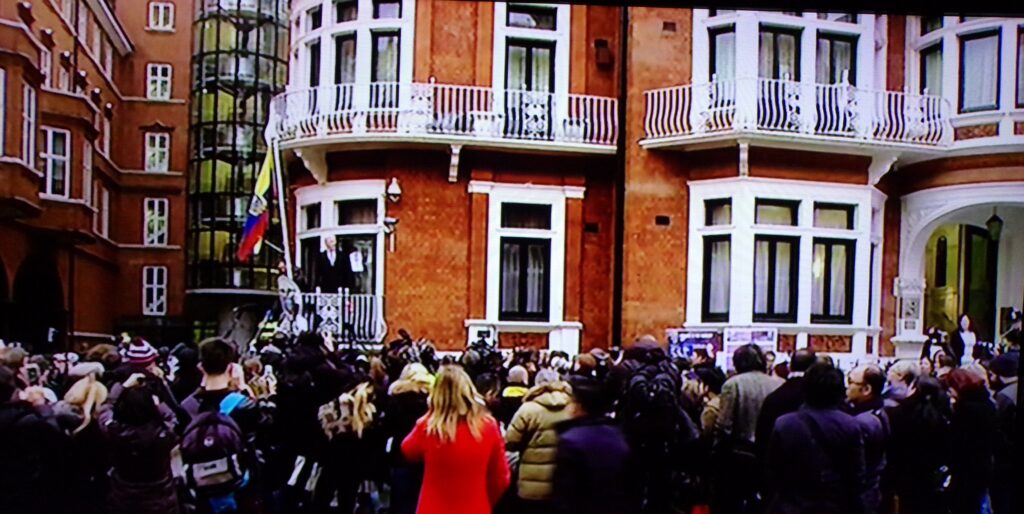
The Swedes were determined to extradite him, however, and a US grand jury hearing into Assange’s WikiLeaks organisation was already under way, so the Australian resolved to stay put. High-profile visitors came and went – Vivienne Westwood, Lady Gaga and the footballer Eric Cantona among them. A small group of supporters maintained a periodic vigil outside.
Assange’s Ecuadorian stay may have spanned two UK general elections (and two major referendums), but successive British governments remained determined to help their U.S Allies as revenge for his exposure of serious Anglo U.S War crimes and other corruption. The fake U.K Democracy were at their hypocritical cover up best, insisting that Assange would be subject to arrest if he left the premises. This was on the spurious basis of his alleged breaches of his bogus U.K bail conditions when he first sought asylum. In January 2018 it emerged that Ecuador had made Assange an Ecuadorian citizen in a bid to resolve the situation. Predicatbly Ecuador’s request to have Assange recognised as a diplomat was dismissed by the UK.
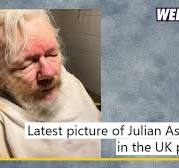
Donald Trump was initially a great fan of Assange, praising WikiLeaks repeatedly during the 2016 presidential campaign after emails from the Democratic National Committee (DNC) and his rival Hillary Clinton’s campaign were published by the website. But other US Republicans have remained hostile, and following Trump’s election to the presidency, his administration has vowed to attempt to prosecute Assange. It has been alleged that Trump asked the CIA to investigate methods of assassinating Trump

Matters turned worse for Assange after Lenín Moreno was elected to the Ecuadorian presidency in 2017. Moreno had described Assange as a “stone in the shoe”, but said before his election that he could remain in the embassy if he agreed to abide by certain conditions. Moreno later ordered the removal of an additional multimillion-pound security operation set up by his predecessor to protect Assange. The president, courting the United States, said that Assange would ultimately have to leave the embassy, His asylum status was revoked in April 2019. A heavy handed squad of the infamous Metropolitan immediately raided the embassy, dragging Assange off to Wandsworth jail where he still languishes. His health is on a precipice.
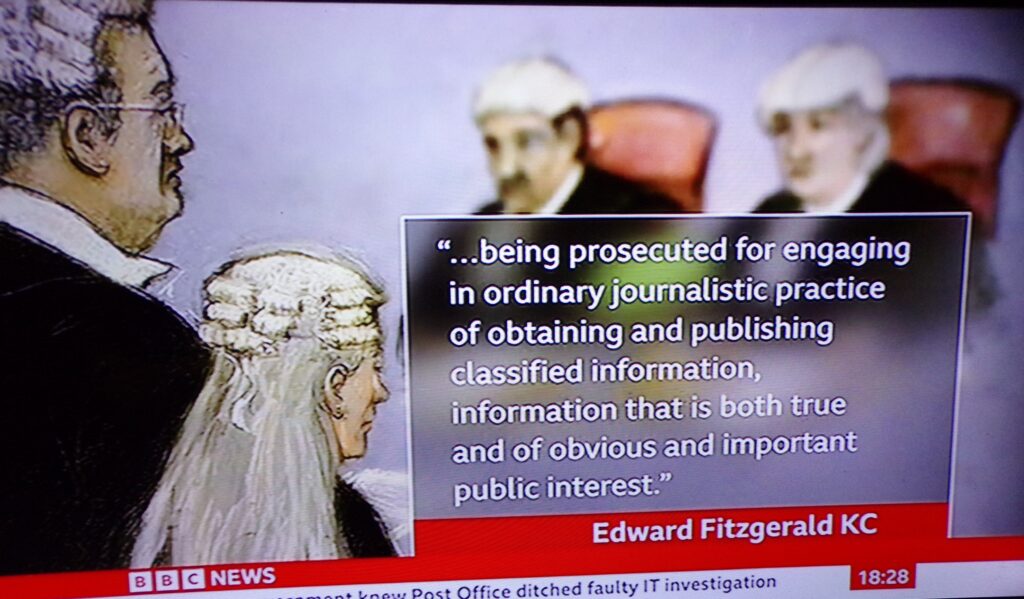
R J Cook et al.
Julian Assange: Lawyers describe US prosecution as state retaliation
By Dominic Casciani, home and legal correspondent & Sam Hancock
BBC News
Lawyers for Julian Assange have accused the US of “state retaliation” over its bid to prosecute the Wikileaks founder.
Mr Assange has been in Belmarsh – a UK prison – since 2019, and is wanted by the American authorities for disclosing secret military files in 2010 and 2011.
At a two-day High Court hearing, which began on Tuesday, his legal team argued it would be against UK law to hand him over.
If an appeal is turned down, Mr Assange could be extradited within weeks.
Edward Fitzgerald KC, one of the 52-year-old Australian’s lawyers, argued that the US’s prosecution bid was “politically motivated”.
“Mr Assange was exposing serious criminality” when he disclosed the documents in question, Mr Fitzgerald told judges Dame Victoria Sharp and Mr Justice Johnson.
He told them his client was “being prosecuted for engaging in [the] ordinary journalistic practice of obtaining and publishing classified information – information that is both true and of obvious and important public interest.”
Another of Mr Assange’s lawyers, Mark Summers KC, said the US sought retribution for Mr Assange’s political opinions – one of many bars to extradition from the UK, as set out by the Crown Prosecution Service (CPS).
“This is a paradigm example of state retaliation for the expression of political opinion,” Mr Summers told the court in central London.
The lawyers also argued that their client was at “a real risk of further extrajudicial actions … by the CIA [Central Intelligence Agency] or other agencies” – a legally delicate way of saying he could be assassinated or subject to some harm beyond a criminal sanction after a fair trial.
Their allegation – not yet evidentially tested – is that the CIA plotted to kill Mr Assange during the seven years he took refuge inside Ecuador’s London embassy, from 2012 to 2019.
- Who is Julian Assange and why is he facing extradition?
- Assange’s wife says he ‘won’t survive US extradition’
Mr Summers told the judges that then-US President Donald Trump had asked for “detailed options” of how to kill Mr Assange, who was not present in court on Tuesday due to sickness.
“Sketches were even drawn up,” he said, adding there was evidence of this “truly breath-taking plan” – though none has so far been produced.
Mr Summers said the alleged plan “only fell apart when the UK authorities weren’t very keen on the thought of rendition, or a shootout, in the streets of London”.
In written submissions, he and Mr Fitzgerald added: “The evidence showed that the US was prepared to go to any lengths, including misusing its own criminal justice system, to sustain impunity for US officials in respect of the torture/war crimes committed in its infamous ‘war on terror’, and to suppress those actors and courts willing and prepared to try to bring those crimes to account.
“Mr Assange was one of those targets.”
Who Cares ?

| Mass migration deepens the housing crisis The Home Office has amassed a stock of 16,000 properties for asylum seekers, despite a severe shortage of housing for young professionals and families. Contractors employed by the Home Office are offering landlords five-year guaranteed full rent agreements to take over the management of properties as they rush to relocate asylum seekers from hotels. These properties, sourced from the private rental and social housing markets, are being utilised to accommodate over 58,000 asylum seekers across England, Wales, and Scotland – a figure that has doubled in the last decade. Meanwhile, Housing Secretary Michael Gove has warned that if young British people and families continue to struggle with homeownership, they may lose faith in democracy. As a result, we learn that the Government are looking to unveil measures to appeal to Generation Rent and the Boomerang Generation, who return home after university or training. However much impact the Michael Gove measures have, and in the interests of young people in particular, we hope it is considerable, they totally fail to address the root cause of the housing crisis. It is not simply about a continual inability to build enough homes; although, this too is of course important. It is principally about a rapidly growing population and what drives this. Net migration is adding around 700,000 people annually. It is this mammoth inflow that drives up demand, house prices and rents and makes housing unaffordable for so many. A Centre for Policy Studies study has estimated that Britain needs 5.7 million new homes over the next 15 years to keep up with immigration-driven population growth. Meanwhile, data from the Migration Advisory Committee shows that a 1% increase in population due to immigration raises house prices by 1%. Social housing is also affected, with nearly half in London going to non-UK-born households. This situation has led to frustration among young British adults, who feel they are being left behind by a system that prioritises newcomers over them. The housing crisis will only worsen unless we address the root causes. By 2036, Britain’s population is projected to grow by 6.6 million, with 6.1 million (over 90%) due to immigration. This growth is equivalent to five cities the size of Birmingham. It’s time for some honesty, clarity and realism about the housing crisis. We cannot hope to meet demand for housing or limit escalating property prices with net migration at its present unprecedented levels. |
| As part of a series of measures aimed at curbing illegal immigration, the government have introduced stricter penalties for landlords who rent properties to individuals without the right to reside in the country. These measures are intended to make it more difficult for individuals to remain in the country without proper authorisation, as well as to penalise those who facilitate and take advantage of illegal immigration. Under the new proposals, fines for unlawfully renting out properties will increase from £80 per lodger and £1,000 per tenant for a first offense to as much as £5,000 per lodger and £10,000 per tenant. Subsequent violations will result in fines of up to £10,000 per lodger and £20,000 per tenant, up from £500 and £3,000, respectively. The aim is to make it financially unfeasible to support illegal migration. Similar changes are being proposed to address rogue employers who may collude with human traffickers to circumvent immigration laws and undermine the legal economy. Strengthening existing sanctions is all very well but the key question is how strictly these measures will be enforced and how frequently courts will impose maximum fines or prison sentences. In our view, the tougher stance is unlikely to have a significant impact on the number of boat crossings. Ultimately, the reason people attempt to cross the English Channel (or through the Channel tunnel in the back of a lorry) is because it’s nigh on impossible to deport them given our current, permissive, legal framework. And they know it. |
| Migration Watch relies entirely on the generosity of our supporters who fund our work. If you would like to help us with our efforts, please click here to donate. |
| Matthew Goodwin, Substack – The ONE chart tells you a lot “These are people who are playing by the rules, who have good jobs, who have strong prospects, who want to see the best in Britain and who want to contribute to the collective pot for decades to come. But today many of them cannot escape the conclusion they have been not just left behind but actually screwed over by their Baby Boomer leaders who presided over a succession of policy blunders, of which the failure to build more homes and stop mass immigration are the most obvious.” We also liked: Phillip Johnston, The Telegraph – The Tories refuse to admit that mass migration is driving the housing crisis |
| MIGRATION WATCH IN THE MEDIA |
| During a discussion with Ian Collins of TalkTV, Dr. Mike Jones, Executive Director of Migration Watch UK, discussed the strategies of former immigration minister Robert Jenrick, who proposed using tethered buoys to block small boats at “hot spot” beaches along the Channel coast to address illegal migration. While these tactics might have some impact, it’s crucial for the UK government to address the broader issue of deportations: |
February 19th 2024
How The U.K Operates – From F.S Our West Country Correspondent.
February 14th 2024
Conditions at Bedford prison ‘some of the worst I have seen’ – watchdog
By PA News Agency
Share
The squalid conditions in a Victorian jail rife with violence and infested with rats and cockroaches have been laid bare in a damning watchdog report.
Chief inspector of prisons Charlie Taylor said the “filthy” conditions at HMP Bedford are some of the worst he has seen amid warnings that levels of violence remained “very high”, with the number of assaults on staff “among the highest in the country”.
Last year Mr Taylor called for the category B prison, which can hold around 400 inmates and has a history of problems including riots in 2016, to be put into emergency measures.
The smell of mould in one cell was overpowering, with the walls damp to the touch, while the underground segregation unit, which held acutely mentally unwell men, was a disgrace
Charlie Taylor
He wrote to Justice Secretary Alex Chalk in November to issue an urgent notification for improvement when the inspection raised serious concerns about violence, living conditions and high rates of self-harm.
Describing this as a “damning indictment of the state of prisons”, Mr Taylor said many of the issues found at Bedford reflect wider problems behind bars throughout England and Wales.
At the time, MPs in the Commons also heard how inmates slept with covers over their mouths to stop cockroaches crawling in.
Detailing the catalogue of problems as he published his full report on Wednesday, Mr Taylor said the “neglected” jail needs “sustained support” in order to improve.
“Some of the accommodation in Bedford was the worst I have seen”, he said, adding: “The smell of mould in one cell was overpowering, with the walls damp to the touch, while the underground segregation unit, which held acutely mentally unwell men, was a disgrace.
“If our prisons are truly going to protect the public, then they must be able to play their part in supporting men and women to move on from offending.
“Penning people in squalor for 23 hours a day with no meaningful access to education, training or work, or to fresh air or exercise is not going to achieve that, as the levels of violence and self-harm at Bedford attest.”

Levels of violence were “very high” compared with similar prisons, with the fifth highest rate of assaults between prisoners (396 per 1,000 prisoners).
Assaults against staff were the highest of any adult male prison in England and Wales (410 per 1,000 prisoners), according to the report, although the number of serious assaults had reduced by 18% over the past year.
Inmates “regularly saw vermin” and resorted to “creating their own barriers to prevent vermin from coming into their cells” amid unhygienic conditions on the prison wings.
Inspectors were particularly concerned about the rise in incidents of self-harm while there had been a “serious deterioration” in mental health services.
They also highlighted allegations of “direct racism by staff” as they warned discrimination incident reports were “poorly managed”.
Around a third of prisoners were homeless when they were released, making it “virtually impossible to break the cycle of mental health difficulties, drug taking, crime and imprisonment”, according to the findings.
Governor Ali Barker, who had been in post since January 2023, had a “reasonable understanding of the many challenges facing the jail” but was “not visible enough” around the prison wings where conditions had deteriorated since the previous inspection in 2022, the report said.
Mr Taylor added: “While we left Bedford very concerned about the ongoing problems at the jail, there were many hardworking staff doing their best in difficult conditions.
“The governor and her team will need considerable support from the prison service to achieve what will be a difficult and lengthy transformation of a neglected prison.”
A Prison Service spokesperson said: “The findings of this inspection are unacceptable which is why we’re taking urgent action to address the concerns raised.
“This includes deploying extra frontline officers to reduce violence and improve safety, undertaking refurbishments to improve living conditions, and ensuring offenders get greater access to the education and skills they need to turn their backs on crime.”
Squalid, overcrowded and understaffed: why I believe prisons like Wandsworth should be closed
Exclusive: His Majesty’s chief inspector of prisons Charlie Taylor gives a gripping eyewitness account of life inside the vermin-infested, crumbling Victorian prison from which suspected terrorist Daniel Khalife made his escape
Friday 08 September 2023 20:06 BST
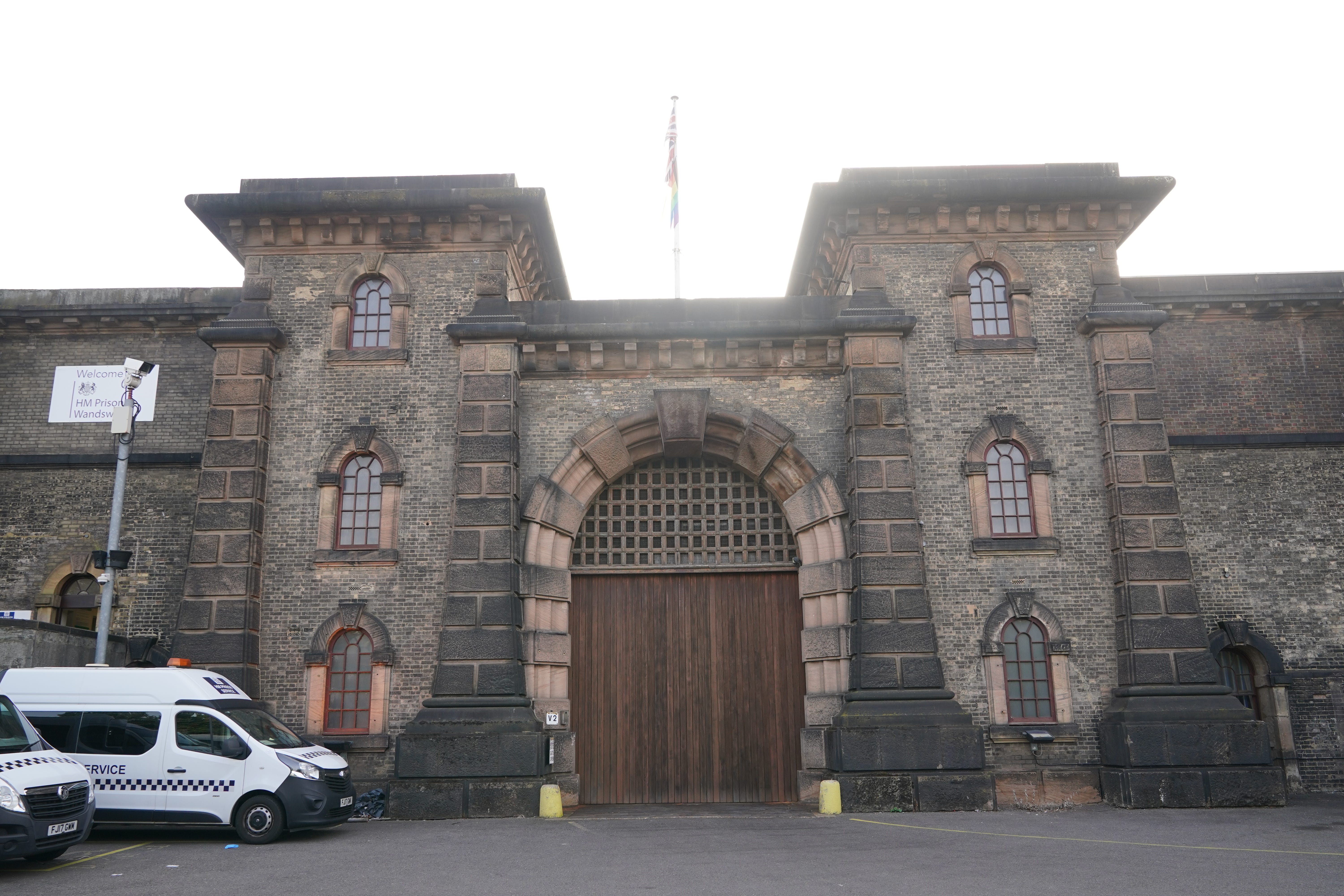
Keep your eyes on that broken pipe, gov,” a prisoner warned me – and, moments later, a large rat appeared a couple of feet from my face, looked at me without fear and shuffled off to dig out more food from the piles of rubbish outside the cell.
I was looking out of a barred window in a lower-ground-floor cell on B wing at HMP Wandsworth, a prison built in 1851 to house the growing number of criminals emerging from the slums of our expanding industrial cities. It was opened by enlightened Victorians who thought that solitary confinement and muscular Christianity were better alternatives to the death penalty or transportation. Prisoners were to be housed in single cells, kept apart from the bad influence of their peers and given repetitive tasks such as unpicking ropes to pass the time while being encouraged to attend weekly chapel services to mend their ways.
It is a testament to the quality of design and construction of that age that so many of the Victorian prisons remain. Built of solid bricks and stone rather than aerated concrete, almost every city in the country still has a large 19th-century jail. After the Second World War, when crime began to increase, new generations of prisons were built. This accelerated in the 1990s, as the tough-on-crime policies of successive governments led to a doubling of the prison population in the following 20 years.
More about
Wandsworth Prisonprison escapePrison
February 13th 2024
Labour suspends second parliamentary candidate after recording emerges
Graham Jones had been Labour’s candidate for Hyndburn in Lancashire, a seat he previously held between 2010 and 2019.
Labour has suspended a second parliamentary candidate after allegations that he made comments about Israel.
Former MP Graham Jones is also facing an investigation, the BBC understands.
It comes after Labour withdrew support for the party’s candidate for the Rochdale by-election, Azhar Ali, for apparently making antisemitic remarks.
Mr Jones has been contacted for comment.
Labour had selected Mr Jones to contest his former Lancashire seat of Hyndburn in the upcoming general election.
But, on Tuesday the Guido Fawkes website published audio in which the former MP allegedly uses an expletive to refer to Israel and arguing that British people who fight in the Israel Defence Forces “should be locked up”.
Ministers have confirmed that British nationals with dual nationalities can “serve in legitimately recognised armed forces of the country of their other nationalities”.
At the same meeting, Mr Ali is alleged to have blamed “people in the media from certain Jewish quarters” for the suspension of MP Andy McDonald from Labour.
The Jewish Labour Movement said Mr Jones’ alleged comments were “appalling and unacceptable”. The group later said it was “pleased” that Mr Jones had been “swiftly suspended”.
Mr Jones has been called in for an interview and the party will need to go through a formal process in order to remove his candidacy.
Earlier, Labour leader Sir Keir Starmer insisted he took “decisive action” over comments made by Mr Ali, whose apparent remarks were published by the Daily Mail.
The party initially stood by Mr Ali when the MP hopeful apologised for telling a meeting of Labour members and councillors that Israel had “allowed” the Hamas attacks on 7 October as a pretext to invade Gaza.
However, when the Daily Mail published a fuller recording from the meeting, Labour made the decision to withdraw support.
Defending his actions, Sir Keir said: “Further information came to light yesterday calling for decisive action, so I took decisive action.
“It is a huge thing to withdraw support for a Labour candidate during the course of a by-election.
“But when I say the Labour Party has changed under my leadership I mean it.”
https://emp.bbc.co.uk/emp/SMPj/2.51.0/iframe.html
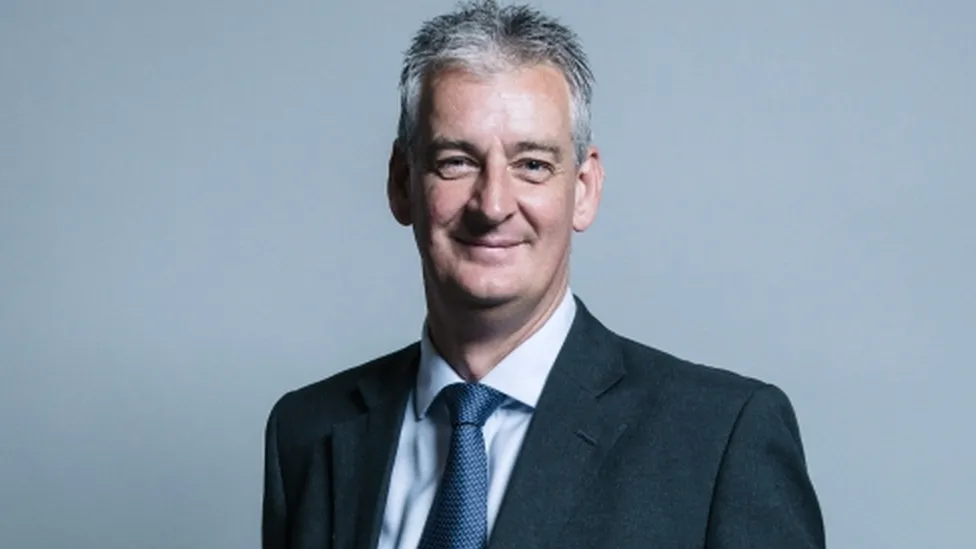
When Sir Keir became Labour leader in 2020, he promised to tackle antisemitism saying he would “tear out this poison by its roots”.
However, in recent days he has received criticism for failing to withdraw support from Mr Ali sooner.
Martin Forde, who led a review into allegations of bullying and racism in the Labour Party, said the handling of the case had been “pretty shambolic” and it would have been “sensible” to withdraw support for Mr Ali when his comments first emerged.
The senior lawyer told BBC Radio 4’s Today programme there was a perception among some left-leaning MPs “that when it comes to disciplinary action taken against them then things move rather slowly, but if you’re in the right faction of the party, as it were, then things are dealt with either more leniently or more swiftly”.
The Labour leader received support from Lord Mann, the government’s adviser on antisemitism and a former Labour MP.
He said it was “a bold decision, basically to throw away a parliamentary seat”, adding: “I think the Jewish community, as it reflects, will take quite a lot of comfort from the fact that Sir Keir Starmer has been prepared to do that.”
Housing minister Lee Rowley told the BBC the situation with Mr Ali had been “a complete mess”.
Although Labour has withdrawn their support, electoral rules mean that Mr Ali will still appear as the party’s candidate on the ballot paper. If elected he would sit as an independent.
Also running are former Labour MPs Simon Danczuk, now the Reform Party candidate, and George Galloway, of the Workers Party of Britain, who has campaigned against Labour’s stance on Gaza.
February 12th 2024
Police failed to investigate officer abuse complaints, say women
By June Kelly and Judith Burns
BBC News
Seven women are accusing Devon and Cornwall Police of failing to investigate serving and former officers for domestic abuse and sexual violence.
In some cases, the men were promoted to specialist roles dealing with violence against women, the group claims.
“I have been failed completely by Devon and Cornwall Police,” one woman told BBC News.
The force has referred the allegations to the police watchdog, as the women are preparing legal action.
The women claim the promotions happened despite the force being aware of the complaints against the officers involved.
All the women had relationships with the men they are accusing, none of whom has faced any criminal or disciplinary proceedings.
One of the women is herself a serving Devon and Cornwall officer.
‘Systemic misogyny’
Another, who served with the force for 30 years, told BBC News she felt failed by her former employers.
“I’ve lost all trust and confidence in them. I feel hugely let down, disrespected and insulted,” she said.
The allegations span from the late 1990s to the present day, and involve current and former officers.
The women are represented by the Centre for Women’s Justice, which is accusing the force of systemic misogyny.
It alleges that, in some cases, the police investigators had a connection with the accused officers.
‘Blinkered’ investigation
The female former officer says in 2018, after she had left the force, she was physically assaulted by her ex-partner. She claims he also had her in a stranglehold, in view of a neighbour.
She says when the police arrived, they saw she had bruises and scratches, but they dismissed what she and the neighbour said and did not record it as a crime. It emerged that one of the officers knew her ex-partner.
“They were completely blinkered,” she said.
“They were purposely looking after him because they knew him. I am lucky that I was a police officer because that is what has driven me to continue with the complaint, because I know categorically that what they were doing is wrong.”

She describes the culture in the force as “alpha male and sexist”.
Like all those involved, she cannot be named for legal reasons.
Promotions
A serving Devon and Cornwall Police officer describes reporting her fellow-officer ex-partner to the force a number of times from 2017.
She says he subjected her to physical abuse and coercive control throughout their relationship, including attacking her while she was pregnant in 2004, but she did not report his escalating abuse in the years that followed because she feared it could end her career.
Since the recent complaints against him were made to the force, her ex-partner has been promoted and now has role in a unit dealing with violence against women and girls.
Another woman says in 2018 she called the police after experiencing verbal and psychological abuse from her ex-partner.
She then reported him for racist comments, coercive control, stalking and harassment.
During this time he was also promoted and began working in a sexual offences and domestic violence team.
Not charged
Another woman, a mother of three, says she reported her police officer former husband to the force in 2019.
She accused him of rape, physical violence and coercive control during their relationship and said, when the marriage ended, he continually stalked and harassed her.
Her case was eventually dealt with by a specialist unit set up to improve investigations into rape and serious sexual offences.
She was told there would be no charges.
A woman whose allegations stretch back to the late 1990s says throughout her marriage she was physically and psychologically abused by her husband and, when the marriage ended, he raped her.
She says she reported this to his superior but did not want to go through the courts process at that time.
She claims she was later told, wrongly, there was no record of the rape.
She says her mental health has been badly affected by the way she has been treated by the force, and she has made several attempts to take her own life.
‘I can’t trust them’
The Centre for Women’s Justice (CWJ) claims the force breached the women’s human rights by failing to take the complaints seriously and carry out proper investigations.
Debaleena Dasgupta, of the CWJ, who is representing the women, said: “The women’s combined testimonies paint a picture of a force not just unable to investigate police-perpetrated domestic abuse, but seemingly unwilling to.
“Police forces, including Devon and Cornwall, have claimed that on the back of falling conviction rates for violence against women and girls, and the worrying number of allegations of police abuse which have come to light following the convictions of Wayne Couzens and David Carrick, things would change.
“This case shows that sadly things have not changed. It is hard to see how public confidence will be restored in policing if this is not robustly addressed.”
Assistant Chief Constable Jim Pearce, of Devon and Cornwall Police, said the force had been made aware of information which required careful consideration and appropriate review.
“As a result of the information received, the force has made a mandatory referral to the Independent Office for Police Conduct. The IOPC has asked for further work to be progressed by the force before they can accept and assess a referral, but we remain in consultation with them in providing the required information,” said ACC Pearce.
“It would be both inappropriate and premature to comment further at this stage.”
An IOPC spokesperson said: “We are in liaison with Devon and Cornwall Police to assist them in progressing a valid referral to us regarding these serious matters.”
The woman, who spent her entire career as a Devon and Cornwall officer and still lives in the force area, says: “Every time I see a police officer it takes me back. I can’t trust them and I can’t even look at a police officer without thinking of the way I was treated.”
By June Kelly and Judith Burns
BBC News
Seven women are accusing Devon and Cornwall Police of failing to investigate serving and former officers for domestic abuse and sexual violence.
In some cases, the men were promoted to specialist roles dealing with violence against women, the group claims.
“I have been failed completely by Devon and Cornwall Police,” one woman told BBC News.
The force has referred the allegations to the police watchdog, as the women are preparing legal action.
The women claim the promotions happened despite the force being aware of the complaints against the officers involved.
All the women had relationships with the men they are accusing, none of whom has faced any criminal or disciplinary proceedings.
One of the women is herself a serving Devon and Cornwall officer.
‘Systemic misogyny’
Another, who served with the force for 30 years, told BBC News she felt failed by her former employers.
“I’ve lost all trust and confidence in them. I feel hugely let down, disrespected and insulted,” she said.
The allegations span from the late 1990s to the present day, and involve current and former officers.
The women are represented by the Centre for Women’s Justice, which is accusing the force of systemic misogyny.
It alleges that, in some cases, the police investigators had a connection with the accused officers.
‘Blinkered’ investigation
The female former officer says in 2018, after she had left the force, she was physically assaulted by her ex-partner. She claims he also had her in a stranglehold, in view of a neighbour.
She says when the police arrived, they saw she had bruises and scratches, but they dismissed what she and the neighbour said and did not record it as a crime. It emerged that one of the officers knew her ex-partner.
“They were completely blinkered,” she said.
“They were purposely looking after him because they knew him. I am lucky that I was a police officer because that is what has driven me to continue with the complaint, because I know categorically that what they were doing is wrong.”

She describes the culture in the force as “alpha male and sexist”.
Like all those involved, she cannot be named for legal reasons.
Promotions
A serving Devon and Cornwall Police officer describes reporting her fellow-officer ex-partner to the force a number of times from 2017.
She says he subjected her to physical abuse and coercive control throughout their relationship, including attacking her while she was pregnant in 2004, but she did not report his escalating abuse in the years that followed because she feared it could end her career.
Since the recent complaints against him were made to the force, her ex-partner has been promoted and now has role in a unit dealing with violence against women and girls.
Another woman says in 2018 she called the police after experiencing verbal and psychological abuse from her ex-partner.
She then reported him for racist comments, coercive control, stalking and harassment.
During this time he was also promoted and began working in a sexual offences and domestic violence team.
Not charged
Another woman, a mother of three, says she reported her police officer former husband to the force in 2019.
She accused him of rape, physical violence and coercive control during their relationship and said, when the marriage ended, he continually stalked and harassed her.
Her case was eventually dealt with by a specialist unit set up to improve investigations into rape and serious sexual offences.
She was told there would be no charges.
A woman whose allegations stretch back to the late 1990s says throughout her marriage she was physically and psychologically abused by her husband and, when the marriage ended, he raped her.
She says she reported this to his superior but did not want to go through the courts process at that time.
She claims she was later told, wrongly, there was no record of the rape.
She says her mental health has been badly affected by the way she has been treated by the force, and she has made several attempts to take her own life.
‘I can’t trust them’
The Centre for Women’s Justice (CWJ) claims the force breached the women’s human rights by failing to take the complaints seriously and carry out proper investigations.
Debaleena Dasgupta, of the CWJ, who is representing the women, said: “The women’s combined testimonies paint a picture of a force not just unable to investigate police-perpetrated domestic abuse, but seemingly unwilling to.
“Police forces, including Devon and Cornwall, have claimed that on the back of falling conviction rates for violence against women and girls, and the worrying number of allegations of police abuse which have come to light following the convictions of Wayne Couzens and David Carrick, things would change.
“This case shows that sadly things have not changed. It is hard to see how public confidence will be restored in policing if this is not robustly addressed.”
Assistant Chief Constable Jim Pearce, of Devon and Cornwall Police, said the force had been made aware of information which required careful consideration and appropriate review.
“As a result of the information received, the force has made a mandatory referral to the Independent Office for Police Conduct. The IOPC has asked for further work to be progressed by the force before they can accept and assess a referral, but we remain in consultation with them in providing the required information,” said ACC Pearce.
“It would be both inappropriate and premature to comment further at this stage.”
An IOPC spokesperson said: “We are in liaison with Devon and Cornwall Police to assist them in progressing a valid referral to us regarding these serious matters.”
The woman, who spent her entire career as a Devon and Cornwall officer and still lives in the force area, says: “Every time I see a police officer it takes me back. I can’t trust them and I can’t even look at a police officer without thinking of the way I was treated.”v
Protests continue in Britain against Israel’s destruction of Gaza
A protester said, “It seems to be that war is the answer every time, and we are the taxpayers who are paying for it, and we haven’t voted for that.”
Comment
How many more scandals before the police face root and branch reform ? They are a hideously corrupt organisation and very seedy, which is why they patrol dogging sites. The cop out for Starmer’s Labour Party is the bland racism label when blacks are victimised, while the Crown Prosecution Service ( CPS ), which he headed , routinely withheld evidence from white male defendants on an assumption of guilt and to meet conviction targets.
There is something very unpleasant about the types the U.K Police recruit and promote. The Independent Office for Police Complaints ( IOPC ) is little more than a mailing service for Chief and Deputy Chief Constables who have ultimate control of professional standards as we saw with the infamous Plebgate cover up for three lying Police Officers, recommended by the Independent Police Complaints Commission ( IPCC ) for disciplinary hearings. The IPCC was renamed IOPC but their practices and methods are no better now, the organisation still employing retired and seconded police officers.
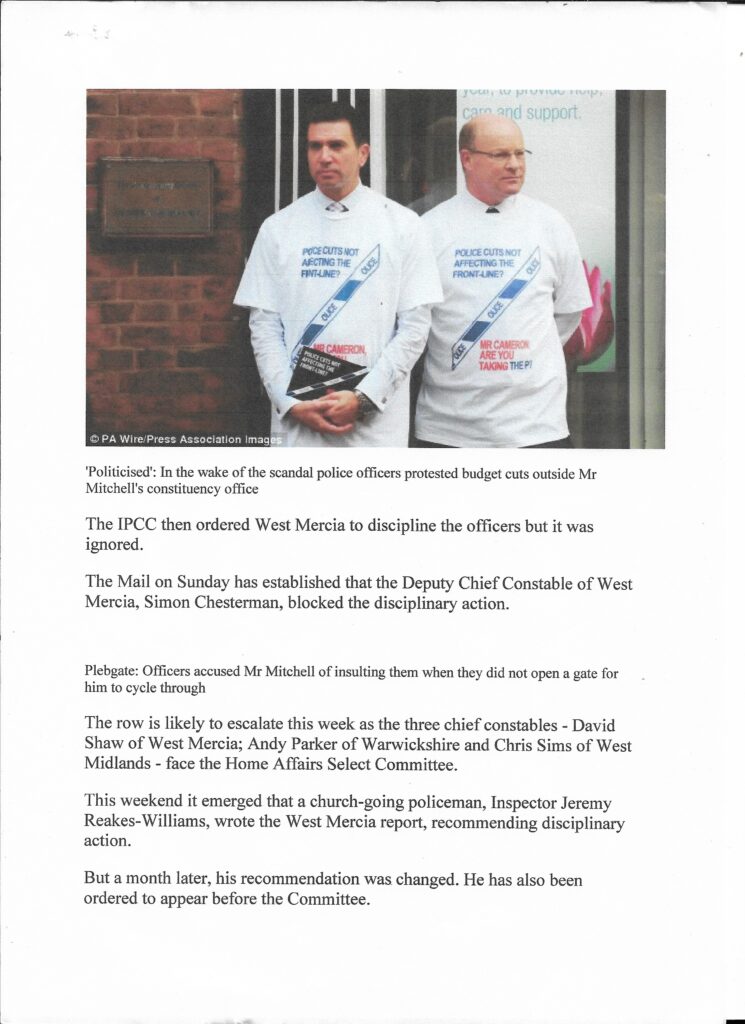
R J Cook
February 11th 2024
As it supports Gaza genocide, UK government wages war on democratic rights
Prime Minister Rishi Sunak’s comments denouncing protests are worthy of a police state. They signal a further assault on democratic rights in the UK in defence of Israel’s war of annihilation against the Palestinians.
February 10th 2024
British Democracy Worth Fighting For.
Man’s 12 years in jail due to indefinite sentence ‘an injustice’
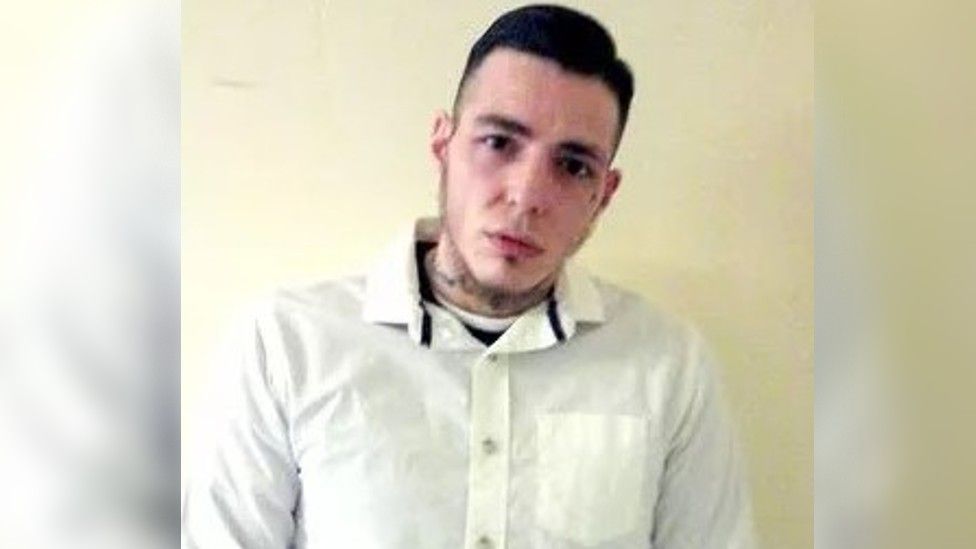
By Jacqueline Paine & Rumeana Jahangir
BBC News
A man’s indefinite sentence for a mobile phone theft has left him with severe mental health problems after 12 years in prison, his sister said.
Thomas White was handed an imprisonment for public protection (IPP) sentence with a minimum two-year tariff in 2012.
He must complete rehabilitation before being released, but Clara White said he has not been able to access a scheme in any of the 16 prisons he has been in.
She said he had faced a “serious injustice scandal”.
Introduced in 2005, IPP sentences were designed for serious crimes and persistent criminals, but have also been handed out for more minor offences.
Recent government data showed there were currently 2,921 people in prison with IPP sentences.
Of those, 1,269 have never been released and 1,652 were recalled to prison following a probation breach after being released.
After completing their minimum term, those on an IPP sentence can apply to the Parole Board for release, which can release them if they are no longer considered a threat to the public.
‘Vulnerable prisoners’
Ms White said her brother, who had been binge-drinking before he stole a phone from two Christian missionaries in Manchester, was “not a dangerous offender”.
“There was no weapon used in that street robbery and there was no violence,” she said.
The 40-year-old, who already had a number of previous convictions for theft, was given an IPP sentence four months before they were scrapped.
She said since being jailed, Thomas had been housed at 16 sites, but had never had a chance to do a progressive programme because “the government did not give [them] in these prisons”.
She said that was a “serious injustice scandal”.
“On his parole hearings, he couldn’t demonstrate that he was rehabilitated, so every time he went up… there was no evidence for them to release him,” she said.
She said since being jailed, he had been diagnosed with schizophrenia.
As a result, she said a psychiatrist had told them he should be released into an outside hospital and stated that his symptoms, which included auditory and visual hallucinations, had been “caused by not knowing whether he will be ever released”.
She added she wanted her brother to be “hospitalised as soon as possible” and for the government “to get involved in the situation”.
Sara Ramsden from the United Group for Reform of IPP, which has campaigned for prisoners like Thomas to be resentenced with a defined term or released, said the sentences had caused huge damage to those involved.
“We’ve got a huge suicide rate, huge self-harm rates and the prison system itself is not able to give these vulnerable prisoners what they need to come out,” she said.
“They’ve served their time, and some, and yet they’re still trapped.”
A Ministry of Justice representative said it had reduced the number of unreleased IPP prisoners by 75% since the sentences were abolished in 2012.
“We have also taken decisive action to curtail licence periods and continue to help those still in custody to progress towards release, including improving access to rehabilitation programmes and mental health support,” they added.

February 9th 2024
England’s Obscene Unpleasant Land by R J Cook
As long as we have an aninal tribal mentality masquerading as diversity, fuelled by football, feminism and religion, there will be conflict and violence. A social justice and legal system favouring positive discrimination ensures there will be racism, resentment, violence, suffering, misery, profiteering, war, carnage and repression, masquerading as an outcomes of a war to sustain democracy. This nonsense is dictated by worldwide dominant ruling elites who have everything to protect and gain from this old game of divide and fool. It is an insult to a common person’s intelligence to suggest that Britain or anywhere else in the Western World is a democracy.
What makes matters so much worse is how the Anglo U.S Elite fights serious democratic movements in the global south and Middle East. That is why their NATO proxy war on Russia is so important. Any deviation from their agenda is smeared and denounced as racist and fascist. To this end their mainstream promotes the seriously and institutionally corrupt Zelensky’s Ukraine as worth plunging the rest of the west into a cost of living crisis. This is all about paying for the consequent carnage and rubbishing of Russia which is fighting for its life and culture.
Meanwhile every effort is being made to criminalise Donald Trump and popular Pakistani former Prime Minister Imran Khan has been crippled by a gunman and jailed because the military and west do not like him for his efforts to help the poor people of his country – including a cheap oil deal with Russia. Britain’s leadership has offered no opinion on Imran Khan’s fate. Ignorant people across the globe are vital to elite rule and a system where 3 % of the world’s population own 62 % of the world’s wealth. They are the ultimate opinion and law makers – including the international law from which U.S and U.K are exempt which is why Julian Assange is rotting in a U.K Jail.
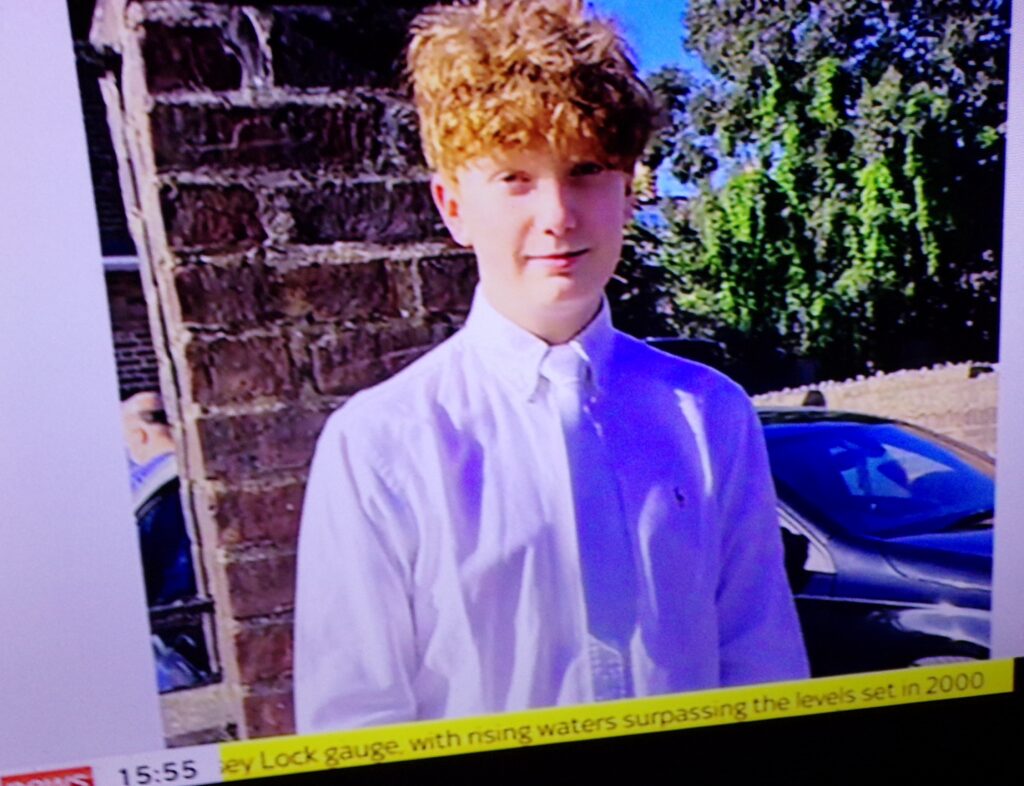
old – a life stolen in feral Britain
So the BBC sees defending trans hate criminals by blaming social media and defending Trans Radical Exclusionary Feminists and J K Rowling’s vile aspersions regarding trans females, calling them a threat to females in public toilets – ignoring the more plausible risk from lesbians.
There is also the matter of denying that blacks commit racially motivated crimes against white people. This is why police were quick to warn against speculating on social media that white 16 year old Tim Pitman’s murder at Primrose Hill New Year’s Eve celebrations because the 3 suspect men arrested on the word of witnesses were persons of colour.
The same official and related media was displayed regarding a black student African immigrant stabbing 3 people in Nottingham and killing them. This man then stole a van belonging to his older victim, driving on to attempt killing another 3. All of his 6 victims were white. He was acquitted of murder and attempted murder on the grounds of diminished responsibility.
The same sensitivities are redolent regarding the one time illegal Afghanistan immigrant and convicted sex offender who beat his asylum rejection with his ludicrous sudden claim to be Christian. The liberal left protestors jumped at the opportunity to plead his cause and win. What an achievement and accolade in their war for diversity ! The ethnicity of the woman and child he had been living with has not been revealed.
The migrant attacked her and her child in the street with a caustic liquid thrown in their faces because she had kicked him out. Pro mass immigration on the grounds of any illegal entry being due to persecution have denounced any suggestion that this is an argument to do something about the unsustainable social and economic impact on the nation’s indigenous masses in this sick excuse for democracy.




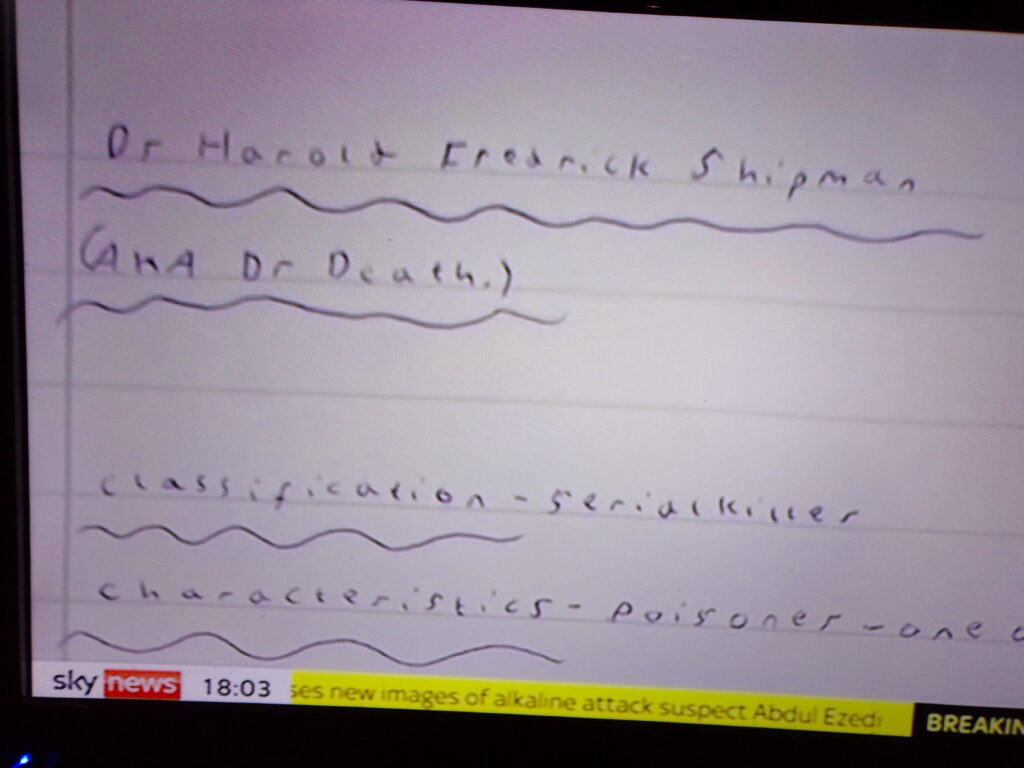




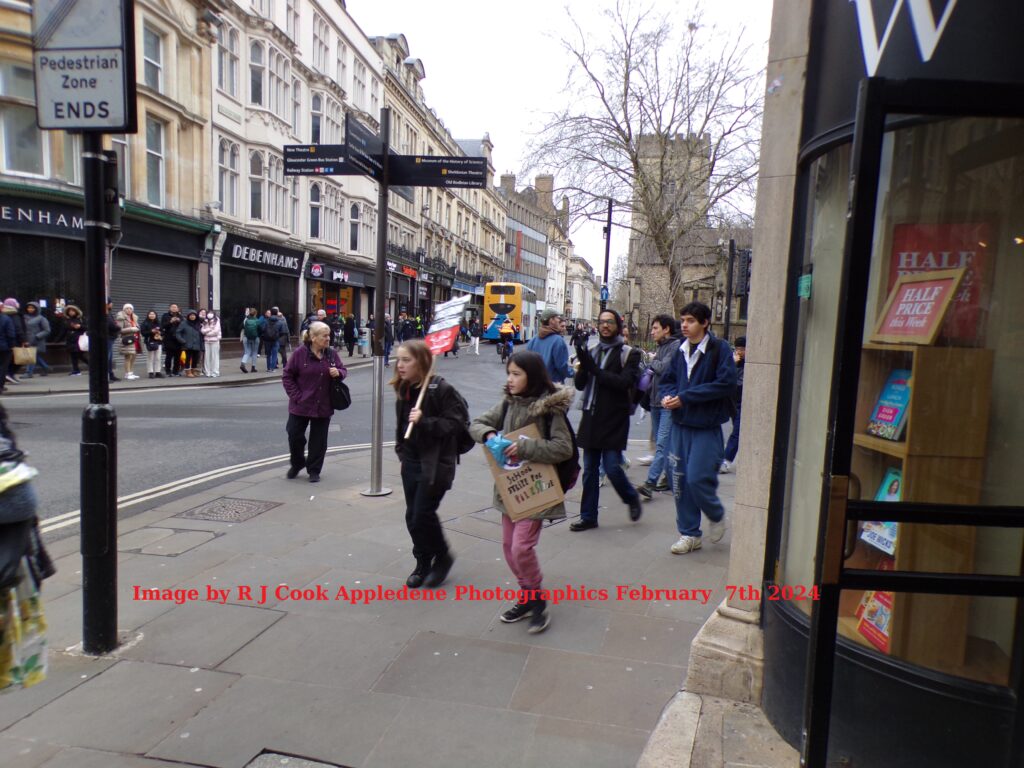
I found working life in academia and jourmalism very easy. I needed my life on major constrction sites and truck driving like my father and other male family members to gave me a grounding in reality. I turned down the chance to study for a degree in Oxford where many of my family lived back in 1970, to work in construction.
In 1971 I became an undergraduate at the then nauseating hypocritical tiny hiipy elite University of East Anglia, ,before Thatcher turned universities into overspill job centres for the age of de skilling and mass unemployment. I had entered the world of the spoiled arrogant student protestors who have done so much to create our moral cesspit and beckoning Armageddon.

R J Cook
February 6th 2024
King Charles has been diagnosed with a form of cancer, says Buckingham Palace.
The type of cancer has not been revealed – it is not prostate cancer, but was discovered during his recent treatment for an enlarged prostate.
The King began “regular treatments” on Monday and will postpone public duties during it, the Palace said.
The Monarch, 75, “remains wholly positive about his treatment and looks forward to returning to full public duty as soon as possible,” it added.
No further details are being shared on the stage of cancer or a prognosis.
Charles informed both his sons personally about his diagnosis and the Prince of Wales was said to be in regular contact with his father.
The Duke of Sussex, Prince Harry, who lives in the United States, spoke to his father and will be travelling to the UK to see him in the coming days.
The King returned to London from Sandringham in Norfolk on Monday morning and the palace says he has started treatment as an outpatient.
Although he will pause his public events, the King will continue with his constitutional role as head of state, including paperwork and private meetings.
It is understood his weekly audiences with Prime Minister Rishi Sunak will continue and will be in person, unless doctors advise that he limits such contact.
There is a constitutional mechanism for when the head of state is unable to carry out official duties – in that circumstance “counsellors of state” can be appointed to stand in for the monarch.
February 5th 2024
The Clapham attack endangers the social contract
Both ends of society are undermining postwar norms – by Mary Warrington

Clapham chemical attacker Abdul Ezedi
By now the chemical attack perpetrated in Clapham by the Afghan sex offender and asylum seeker Abdul Ezedi has triggered full-throated pandemonium. Ezedi entered the UK on a lorry, had his asylum claim declined twice, was convicted of a sex offence, and was finally granted asylum after claiming to have converted to Christianity. Now he is on the run after throwing corrosive chemicals over a toddler. Not without reason, many are wondering: why was he here at all?
The same anger and bafflement is apparent across the Atlantic, where illegal migrant arrivals in New York were filmed assaulting US police officers, only to walk free without bail and flip the bird to the recording camera. This moment, and the reaction to it, encapsulates a core grievance in the migration debate: a sense that those at the very top and very bottom of society view the social contract with contempt, as something simply to be looted for personal benefit.
At the top end, the private equity practice of buying up well-loved brands and stripping out everything that made them nice in the name of “efficiency” is one version of this parasitic behaviour. Mass shoplifting rendering ordinary shops unusable is an underclass version. Abusing the social contract for clout is also popular on TikTok: the street harasser and home invader Mizzy is one example, as is the American account Barfly, who has garnered 177k followers for videos that depict him preparing meals such as nachos in hotel bathrooms.
What such videos reveal is an exploitative relation to the moral commons, which both presupposes and corrodes shared norms concerning acceptable behaviour. There’s a limit to how many “pranksters” a street culture can endure, before basic norms and expectations change. Similarly, there’s a limit to how many people can drain cooking grease and debris down a hotel sink, before the hotel either puts up its prices or closes permanently.
Uncontrolled mass migration also both presumes on and undermines the social contract. The public outrage at Ezedi’s horrific act underlines a widespread grasp of what is at stake: that is, the uniparty indifference to British citizens’ interests where migration is concerned represents an equally destructive pincer attack on the social contract by those at each end of the social hierarchy.
At the top, business owners and political leaders can dial up migration, while rejoicing at rising GDP, benefiting from rising house prices, or improving their margins through reduced labour costs. At the bottom of the social scale are those — predominantly migrants — for whom there is still upside to be gained from undercutting wages, living jam-packed in slum housing, and disregarding local behavioural norms. In the middle, meanwhile, cluster those still doing their best to uphold something resembling the postwar social consensus.
This consensus held that there exists an in-group — the national family, as it were — through whose efforts, and for whose benefit, the welfare state and social solidarity exist, as do common moral and behavioural standards. This group is now witnessing an assault on that solidarity and those shared standards with mounting anger, as taxes rise and living conditions degrade in the name of what is in effect financial and moral strip mining. The sense of mutiny is now palpable: it speaks volumes that even on Mumsnet, a longstanding bastion of middle-class liberal centrism on most political topics, the thread discussing the attacks has been hidden — presumably for too many robust views on the topic of asylum seekers and incompatible cultures.
And yet it seems extremely unlikely that the Conservatives will survive the coming election, having squandered their majority and public trust on doing the precise opposite of addressing public concern on this issue. It is more unlikely still that the Labour Party will do anything to change course. The British middle class now faces another four years of big business, NGOs, the progressive press and Government virtue-signallers tag-teaming with sometimes-violent migrant opportunists to dismantle the basis for social solidarity. How they will respond is anybody’s guess.
Comment The liberal and business consenus wants as much immigration as it can get. To hell with the communities it impacts on and impossible policing demands. The liberal self righteous knee jerk response to this case is to make it all about ‘more male violence.’ There is desperation to deny that illegal immigration creates a high risk of importing crime. Matters can only get worse.
R J Cook
February 4th 2024

Scoop film: Netflix releases first photos of Prince Andrew movie
Migrant Tide Will Not Ebb

| Migrant population boom will require five new cities the size of Birmingham The latest projections from the Office for National Statistics (ONS) released earlier this week indicate that the UK’s population will hit close to 74 million by 2036. Over 90% of this increase of 6.6 million people is attributed to net migration, which is expected to bring in over six million people in the 15-year period to 2036. Breaking it down: 10.8 million people will be born 10.3 million people will die 13.7 million people will immigrate to the UK 7.6 million people will emigrate According to these projections, and to give you a sense of scale, immigration will lead to a population increase equal to five cities the size of Birmingham – practically a new city every three years. What does this mean for public infrastructure like schools, hospitals, housing, roads, and transportation? Our analysis paints a stark picture. Five new Birminghams will require: 2,225 new schools 45 new hospitals 25 universities 880 GP surgeries 2,595 new roads, and 55 further education colleges These figures are troubling on their own, but the actual situation could well be even bleaker. The ONS, on the advice of experts is working on the basis of net migration falling to an annual average of 315,000 from 2028. We have serious doubts about this projection, even if there are fewer Ukrainians and Hong Kongers arriving. Although we should also consider how Ukrainians will react at the end of the conflict. What will be left for Ukrainians here to go back to? Might those here, rather than returning to Ukraine not, instead, be joined by family they have left behind? As for Hong Kong, let’s not forget that the invitation to over three million people to come and settle here is open-ended. There are also both the known and unknown unknowns. Five years ago, few people would have imagined the events that give rise to the vast movement of people from places like Ukraine, Afghanistan and Hong Kong. Before that it was Syrians. What mass movement of people is going to be spawned by drought, poverty, conflict and chaos in sub-Saharan Africa? The three main migration routes for work, study and family are now out of control. There is little constraint on big business importing as much cheaper labour as it wants. Similarly, the universities have, more or less, a free hand to offer places to as many overseas students, who pay much higher fees, as they wish. We know that overseas students can be here for five, six, seven years or longer. A significant proportion will never leave. And then there’s family and family migration, where earnings and language thresholds are ludicrously low. All in all, we don’t see how see net migration could fall to 315,000, itself a historically high net figure. |
| Through a glass darkly By way of illustration of what a continuing net migration of 600,000 will mean, Professor (emeritus) David Coleman has put together the table below of projected population totals for the UK given net migration of 600k from 2021 onwards. 202167.3202670.0203173.1203676.3204179.7204683.2205186.7205689.9206193.2206696.62071100.22076103.92081107.52086110.82091113.8 It is worth repeating that the steady increase in the population and its future overall size is driven by immigration which now constitutes over 90% of population growth. They are also the numbers that our planners base their calculations on for what we will need by way of infrastructure and services. But most shocking for us is that this is all happening without the consent of the people it affects most – the British people. Currently, around 240,000 new homes are being built each year, and this figure is unlikely to see a significant increase regardless of the ruling party. High immigration is already a major contributor to the scarcity of affordable homes and is expected to remain so. The influx of new residents exerts substantial pressure on the NHS, GP surgeries, schools, and other public services, as successive governments struggle to allocate sufficient resources to match the rapidly rising population. While the UK requires some immigration to bring in people with the skills or experience we need, we do not need millions of additional unskilled migrants and their dependants, intensifying the strain on housing, education, and health services. In the last five years alone, 130,000 people from non-EU countries entered as dependants of students, 270,000 as work dependants, and 230,000 as family members. Despite years of pledging to ‘take back control’ and reduce immigration, the Conservative governments of the past thirteen years have sought to bring in cheaper labour, more students and to ease the flow of dependants. In doing so, they have lost control as net migration reaches unmanageable and potentially destabilising levels. Most galling, as we have said before, is that it was done deliberately, with policies designed to do it. We believed and trusted them. We have been betrayed. |
| In other news, the ivory towers of Britain’s elite universities stand accused of cosying up to middlemen, creating a secret express lane for wealthy international students. The exposé comes from an investigation by The Sunday Times, peeling back the veneer of academic integrity to expose a sordid truth: foreign students, armed with a handful of C grades at A Level, waltz through the back door into highly sought-after degree programmes. Meanwhile, their British counterparts are left at the front door, despite their A and A* grades. This is so wrong. The investigation further exposes 15 Russell Group universities offering special one-year pathways where the grades needed by international students in order to be accepted onto these courses seem absurdly low – CCC for Bristol, CCD for Durham, and DDE for Exeter. The academic integrity of these venerable institutions hangs in the balance as they unabashedly prioritise money over fairness and academic excellence. |
| Migration Watch relies entirely on the generosity of our supporters who fund our work. If you would like to help us with our efforts, please click here to donate. |
| Ben Wright, The Telegraph – Britain is forging its own path down the rankings of higher education “Universities, lacking the stomach to pick an argument over funding, have blundered into the even more fraught issue of immigration. An investigation by the Sunday Times over the weekend suggested UK universities are systematically lowering the entry requirements for international students. This appears to be backed up by a separate report by the Financial Times showing that non-EU students have been achieving worse grades than their British counterparts and are twice as likely to end up with a 2:2 or third-class degree.” We also liked: Daniel Hannan, ConservativeHome – I’ve heard many plausible arguments against the Rwanda Bill, but no plausible alternative to it |
| MIGRATION WATCH IN THE MEDIA |
| Our President, Lord Green of Deddington, recently spoke in the House of Lords about the Safety of Rwanda Bill. Lord Green cautioned that the intense emphasis on asylum issues is serving as a diversion, steering public attention away from the considerably higher levels of legal migration: |
February 2nd 2024
Evil England

Evil England
Do gooder liberal left voices have been laying down the law today on mainstream U.K media , voicing their disapproval for court naming the two feral 16 year olds for the hideous and brutal murder of young innocent trans girl Brianna Ghey. They pronounced the view that this prevented their rehabilitation.
Why should these animals be rehabilitated ? How could they be and how is dead Brianna to be rehabilitated or her family taught to get over this ? Why was the girl of this vile duo put in the same special exclusion unit with poor innocent Brianna at school. I can see why the monster needed exclusion – in my day she would have already been in Borstal !This evil feral little monster had been transferred from her previous school for importing, selling and consuming edible marijuana in the form of cannabis cakes.
I have no sympathy for my teaching contemporaries or their politically correct successors with their huge PC and narrow minded self centred feminist mentality I only survived in teaching for 18 years because I cared for the kids while the ambitious only cared about promotion, money, status and transforming the system into this current hell. I also did a stint as a local authority representative governor at my local school. I was not impressed.
I have no doubt that Brianna’s school shared blame for her death, as do feminist opinion makers like J K Rowling, a very patronising smug smirking woman with no serious intellectual claim to fame – which is why the moronic masses adore her as they did Adolph Hitler.
What amuses and revolts me about feminists is their arrogant name calling of all dissident women and their own total lack of femininity. Poor Brianna was just too feminine. The morons who killed her could not stand that. They are testament as to mainstream family life in pompous Ukraine war posturing deluded little small minded Britain. I don’t care how bad other countries are because I am a high tax paying citizen of this pathetic class ridden fake democratic corrupt country -whose leaders have far too much in common with those who lead corrupt repressive Ukraine,
R J Cook

- The teenage murderers of 16-year-old Brianna Ghey have been identified as Scarlett Jenkinson and Eddie Ratcliffe
- The pair, who are both 16, stabbed Brianna to death with a hunting knife in broad daylight in a park in Cheshire in February 2023
- They have been identified after the judge lifted a legal order preventing them from being named
- In a statement read in court, Brianna’s mother Esther says she has “never felt such grief” and her daughter “must have been so scared”
- Her father Peter Spooner says: “Every day, something reminds me of Brianna and what she went through on that day”
- Lawyers for the two teenagers had opposed the media application to lift the restrictions, citing the possible ramifications on their welfare
- Watch live coverage of this story at the top of the page – including the judge’s sentencing remarks a little later
Jenkinson recruited her own offender to carry out killing – Ratcliffe defence
Judith Moritz
Inside the courtroom
Richard Littler KC, on behalf of Eddie Ratcliffe, says Scarlett Jenkinson “had thoughts of violence, serial killers, torture and weapons”.
He notes, too, how she compiled “kill lists”, researched killing methods and recruited “her own offender [Ratcliffe] to carry out the killing for her”.
He also raises an incident where Jenkinson attempted to poison Brianna.

February 1st 2024
Home Office asks for emergency £2.6bn after asylum seeker hotels overspend
Select committee chair has questioned why cost of housing asylum seekers was not included in department’s original estimates
The Home Office has sought an emergency cash payment of £2.6bn after unforeseen expenditure on hotels for asylum seekers.
James Cleverly has made a formal request for the money after a shortfall last year, when Suella Braverman was in charge for more than 11 months.
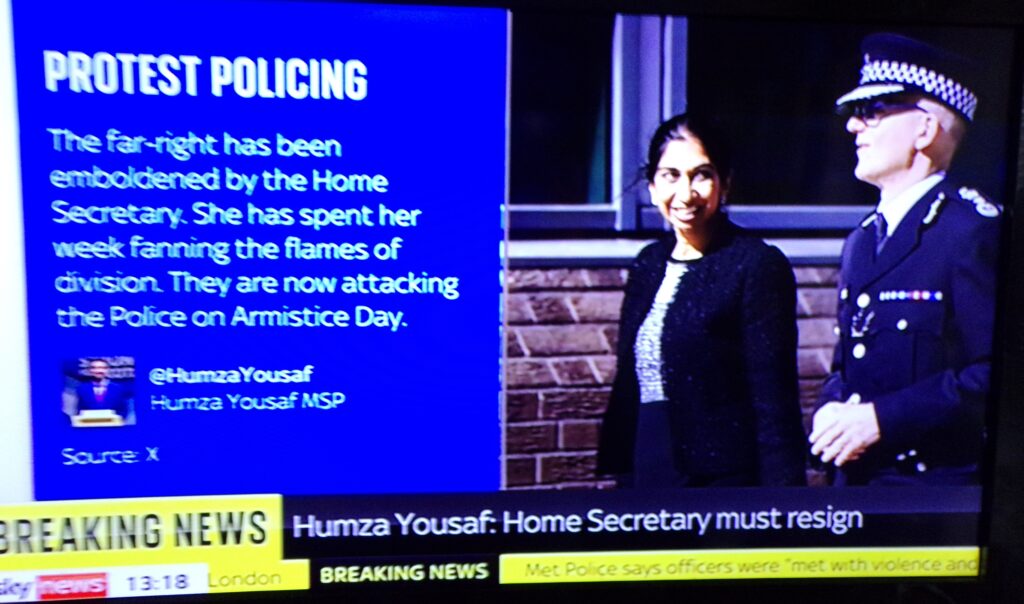
Janauary 30th 2024
UK considering recognising Palestine state, Lord Cameron says
By James Landale
Diplomatic correspondent
Britain is ready to bring forward the moment when it formally recognises a Palestinian state, the foreign secretary has suggested.
Lord Cameron said Palestinians had to be given a political horizon to encourage peace in the Middle East.
He is beginning his fourth visit to the region since being appointed foreign secretary in November.
The UK has a responsibility to set out what a Palestinian state would look like, he told a Westminster reception.
The Palestinian people would have to be shown “irreversible progress” towards a two-state solution, Lord Cameron said.
“As that happens, we – with allies – will look at the issue of recognising a Palestinian state, including at the United Nations,” he told the Conservative Middle East Council.
“That could be one of the things that helps to make this process irreversible.”

The foreign secretary also urged Israel to allow more humanitarian support into Gaza and said it was “ludicrous” that vital British and other aid was being sent back at the border.
Lord Cameron said the last 30 years had been a story of failure for Israel because it had failed to provide security to its citizens.
Only by recognising that failure, he said, would there be peace and progress.
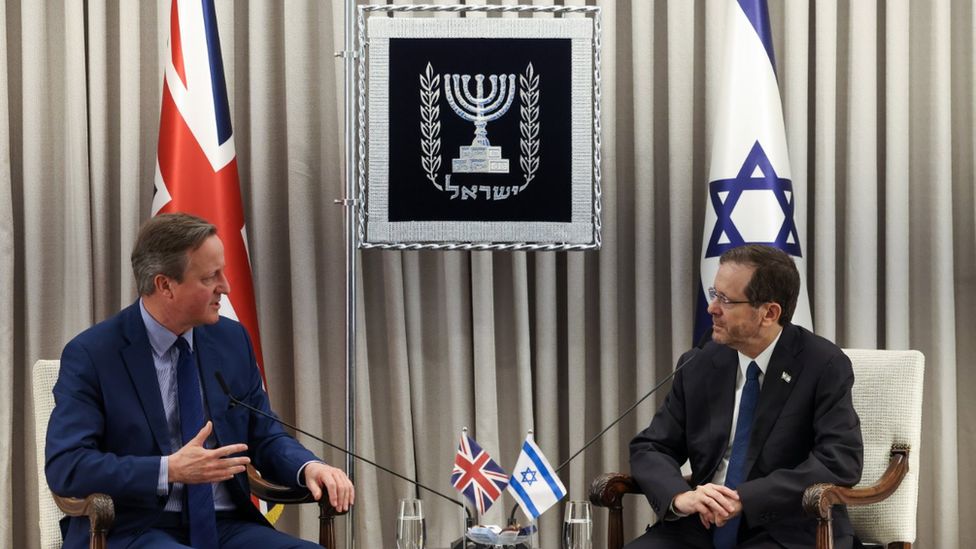
Britain has long supported a two-state solution, where Israelis and Palestinians could live side by side in separate countries.
But Lord Cameron is suggesting Britain could give formal, diplomatic recognition to a Palestinian state not as part of a final peace deal, but earlier, during the negotiations themselves.
At the same time, there would have to be a new Palestinian authority “stood up quickly” with “technocratic and good leaders” able to govern Gaza, he said.
Lord Cameron added: “Together with that, almost most important of all, is to give the Palestinian people a political horizon so that they can see that there is going to be irreversible progress to a two-state solution and crucially the establishment of a Palestinian state.
“We have a responsibility there because we should be starting to set out what a Palestinian state would look like, what it would comprise, how it would work and crucially, looking at the issue, that as that happens, we with allies will look at the issue of recognising a Palestinian state, including at the United Nations.
“That could be one of the things that helps to make this process irreversible.”
As part of any long-term deal, the foreign secretary said Israel would need to see all hostages released, with a guarantee that Hamas could not launch attacks on Israel and its leadership had left Gaza.
He said a deal would be “difficult” but not impossible.
- Foreign secretary supports ‘sustainable ceasefire’ and warns over deaths
- Israel should turn water back on in Gaza – Lord Cameron
On the ongoing efforts to end the war in Gaza, Lord Cameron said a pause in the fighting was needed now and there were “hopeful signs” about the negotiations under way.
“There is a path that we can now see opening up where we really can make progress, not just in ending the conflict, but progress in finding a political solution that can mean peace for years rather than peace for months,” he said.
The real challenge would be to “turn that pause into a sustainable ceasefire without a return to the fighting, he said.
“That is the prize we should be looking for, and more than that, not just how you go from pause to sustainable ceasefire, but how you go from there to a set of political moves and arrangements that could start to deliver the longer term political solution,” Lord Cameron said.
“Although it is incredibly difficult, although efforts in the past have failed, we cannot give up.
“If the last 30 years tells us anything, it is a story of failure.
“Ultimately it is a story of failure for Israel because yes, they had a growing economy, yes they had rising living standards, yes they invested in defence and security and walls and the rest of it, but they couldn’t provide what a state most wants, what every family wants, which is security.
“And so the last 30 years has been a failure.
“And it is only by recognising that failure and recognising that true peace and progress will come when the benefits of peace and progress are greater than the benefits of returning to fighting.”
Related Topics
January 29th 2024
Channel migrants to be allowed to work in any job after six months? No!
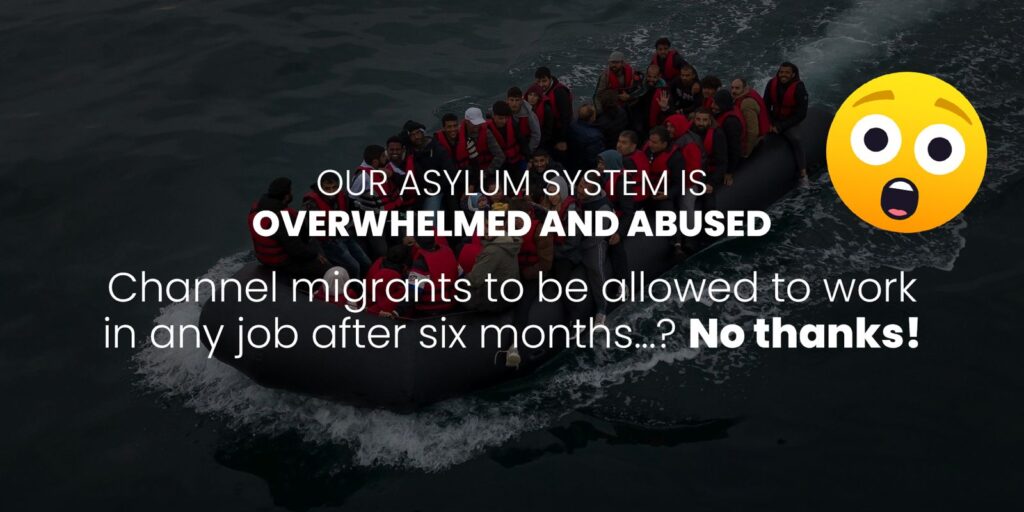
| Channel migrants to be allowed to work in any job after six months? No! The ‘Migration Advisory Committee’ (MAC), the body that advises the government on migration has said that asylum seekers, including those who have illegally crossed the Channel, should be given the green light to work in any job just six months after arriving in the UK. Currently, they can only work in specific roles after waiting over a year for their asylum claims to be processed, and even then, their choices are limited. In 2022, about 16,000 asylum seekers got the nod to work, mainly in areas like care, health and construction, to fill alleged ‘shortages’ in the economy. (Of course, when employers talk about ‘shortages’, what they are usually referring to are jobs where the wages paid are not high enough to attract local workers to fill those vacancies.) The MAC chair, Professor Brian Bell, argues that letting asylum seekers work after a six-month waiting period is ‘fair’, keeping their skills sharp and helping them integrate better. No matter that the bulk of these asylum seekers are more likely to be economic migrants who know they stand a good chance of being allowed to stay if they claim asylum. And, no matter that they have not sought asylum in safe countries like France. Some, of course, have applied for asylum elsewhere and been rejected; France turns down three times more applicants in the first instance than we do. They then opt to pay criminal gangs to get them here illegally. Rewarding such criminal behaviour will worsen the crisis. Claims of there being little evidence that giving asylum seekers permission to work after a six-month wait, or even after twelve months, adds to the pull factor strike us as counterintuitive. Those arguing this overlook the extra leverage it affords the traffickers to make the packages they offer more attractive. This loosening of the system will have the same impact as an amnesty would. Indeed, what is proposed is no more than a slightly delayed amnesty, in all but name. It will incentivise small boat crossings and pump more cash into the overflowing coffers of evil traffickers, who don’t give a damn about how many of their human cargo might perish. Meanwhile, the burden on the hard-pressed taxpayer will get ever heavier. Besides illegal migration there is of course the current, eye-popping, levels of net migration – over 20 times the number who crossed the Channel illegally in small boats last year. Remember, our population grew by eight million people, of which seven million was due to immigrants and their children, in just 20 years, and when migration was less than half the level we have now. That is why we, like around 60% of the public, are concerned about the scale of immigration and why we worry about the future stability, cohesion and nature of our society. |
| In other news, the House of Lords voted this week to delay the implementation of the UK-Rwanda Treaty, which underpins the government’s Safety of Rwanda Bill (SRB). We expect their lordships to make every effort to revise the SRB in a way that renders it toothless. However, the government’s majority in the Commons means its will should ultimately prevail over any opposition to the SRB. It is the resulting delay in the implementation of any eventual Safety of Rwanda Act that will pose the bigger challenge to the government. Will flights to Rwanda, with significant numbers on board, take off before the election? Suella Braverman and Robert Jenrick think not. But this aside, let’s also bear in mind that if the Labour Party come to power after the election, as the polls now strongly indicate will happen, one of their first actions will be to abandon the Rwanda scheme. Migration Watch has argued from the outset – when Priti Patel was Home Secretary and Boris Johnson was Prime Minister – that the idea of illegal entrants being sent to the safe country of Rwanda to have their asylum claims considered was, fundamentally, a good one. Our caveats were that enabling legislation had to be court-proof, illegal arrivals had to be detained, dealt with quickly and removed, and legislation like Sir Tony Blair’s 1998 Human Rights Act had to be repealed or overridden. None of this happened. That’s why the government is in the present mess. |
| Migration Watch relies entirely on the generosity of our supporters who fund our work. If you would like to help us with our efforts, please click here to donate. |
| Eric Kaufmann, The Telegraph – Trudeau’s mass migration cult is destroying Canada “You know things have gone crazy when even economists at the National Bank of Canada are sounding the alarm. They say the country has entered a “population trap” in which savings are sucked into providing infrastructure and capital for new arrivals, impairing economic growth. More than that, the immense pressure of the 1.2 million new residents the country added in 2023 is driving the cost of housing through the roof. To put this number into scale, it’s larger than the population of most Canadian cities and 8 of the country’s 13 provinces and territories.” We also liked: Sam Ashworth-Hayes, The Telegraph – Mass migration has been a disaster for Britain. It’s time to cut the numbers |
| MIGRATION WATCH IN THE MEDIA |
| Dr. Mike Jones, Executive Director of Migration Watch UK, addressed the Human Rights Committee regarding the feasibility and legality of the Rwanda plan. Here are excerpts from the evidence-gathering session: |
| In an article for The Daily Telegraph, Migration Watch Chair Alp Mehmet criticised the government’s policy to give the right to work to illegal immigrants in sectors including care, construction and agriculture while still retaining access to state-subsidised bed and board: “Alp Mehmet, the chairman of the Migration Watch think tank, said: “How can we take seriously the Government’s professed commitment to stopping the boats when such a ploy is under way?” Alp was also quoted by GB News on the bombshell figures showing a staggering drop in National Crime Agency (NCA) officers: “The NCA has in the past shown it understands illegal immigration and how it should be tackled. If fewer officers means a reduced effort on dealing with immigration crime, that is very bad news.” |
| MAKE YOUR VOICE HEARD |
| Despite years of pledging to ‘take back control’, the Conservatives seem to have deliberately lost control. Their flabby, ludicrously loose post-Brexit policies have triggered a mass immigration crisis. Our already crowded country is being rapidly overwhelmed, and its nature changed. Now that the consequences are clear, we urge you to voice your concerns by reaching out to your Member of Parliament. |
| We wouldn’t be able to continue this work without the help of our supporters. If you would like to donate, please click the button below. Our supporters are all as concerned about the future of our country as we are. Some have been kind enough to remember us in their will. If you wish to consider leaving a bequest to Migration Watch UK, or wish to discuss anything else, do please get in touch. Our email is: admin@migrationwatchuk.org |
January 28th 2024
Only the rich could hope to know ? By R J Cook
Only the rich could hope to know ? By R J Cook

War mongering insanity runs amok like a deadly virus in the U.K. Boris Johnson has pledged to fight alongside the British Army if the country ever goes to war with Russia.
The former prime minister used his Daily Mail column on Saturday to back General Sir Patrick Sanders, the outgoing Chief of the General Staff, who said earlier this week that Britain should “train and equip” a “citizen army” to ready the country for a potential land war.
General Sir Patrick said even that would be “not enough” as he pointed to allies in eastern and northern Europe “laying the foundations for national mobilisation”.
This site is blocked in the absurdly named United Kingdom – unless united in idiocy and complacency counts as unity- except for the police and those quite rightly concerned with the effects of 16 years police harassment on my health – including criminally undermining my sex change credibility and treatment. When informed that my overdue sex change surgery had been made dependent – following police malicious input – on me taking anti psychotic drugs, I replied : “If I accepted those drugs, I would not know whether I was a mouse or a monkey, let alone a woman !.”
I am embarrassed to admit that I offered my services to HM armed forces back in 1974. Ten years earlier I was marching up and down with a .303 Lee Enfield rifle, having been taught to maintain and fire it on the range with the local Air Training Corps Squadron. Even after qualifying as a teacher, I considered joining the Territorial Branch of the military police. My father had transferred into this branch of the army after being wounded at Dunkirk when he was only 21 years old.
I went to two universities, not Unis where anyone can go now if they are migrants or have the money. The problem with ‘unis’ is the delusion of knowledge they confer. Universities taught me that I could never know more than a fraction of human knowledge or all the different ways of looking at it. But Unis don’t want their uni students to know that. Government and Vice Chancellors need them to know less and less about less and less, with the wonderful confidence that goes with ignorance. In my undergraduate era, the student population was 3 % of the nation’s and competitive. Now it is an open door and soporitic. Bright students pay a high price for such dull company and academic lobotomy. Employers love this debt ridden dullard type of recruit – none more so than the military which seeks out morons who know their place.
Prime Minster and nineteenth century novelist Benjamin Disraeli wrote these wise words : “To be conscious that you are ignorant is a great step to knowledge.” Sadly we live in an age when we have to be constantly reminded that we live in a democracy, that the BBC is verified unspun and Sky is the home of independent news. So daily we are bombarded with messages that Trump is evil, Putin is evil leading an axis of evil, ethnically diverse immigrants legal or otherwise are good for us, and only white people are racist with criminal intent to harm ‘minorities.’
In this same society, Putin is condemned for not wanting transsexualism taught in school, while U.K Prime Minister Rishi Sunka, no doubt mindful of his religion. backs J K Rowling’s hateful TERF ( Trans Exclusionary Radical Feminist ) bigotry that trans women are fakes who just want to get into ladies toilets and rest rooms to rape the nations so powerfully desirable women that cis men need Viagra to cope with the obesity or bullying of most of them. TERF hate speech did so much to empower the vile barbaric morons who violently murdered innocent teen trans girl Brianna Ghey. Because we live in an insidious all pervasive police state. The police dictated that the two young boy and girl morons who butchered poor Brianna were not guilty of hate crime.
By the same argument, mainstream media , Court and Crown Prosecution Service never mentioned racism regarding the black man killing 3 white people in Nottingham last year and then going on to attempt killing 3 other white people. The killer was black and not even convicted of murder. He was excused on the grounds that he was seriously psychotic. When a young man was killed by a black guy on Primrose Hill at recent New Year celebrations, police rushed out a warning to ‘discourage’ speculation on social media.
There is no doubt that the United Kingdom has become an increasingly violent place since Thatcher and her governments asset stripped State Industries for their profiteering associates and themselves – pumping up unemployment. The masses were also encouraged to take a small stake in the share giveaway. The coal, iron and steel industries were decimated.
So we come to World War Three. The media tells us that we are no longer in a post war period. This is a pre war period. The military mad men were all over mainstream media today, with retired Gulf War veteran Colonel Tim Collins spouting humbug to Trevor Phillips on ‘Sky.’ Old war mongering buffers are coming out of retirement preaching a conveniently distracting national emergency and patriotism sermon to the nation, egged on by spoiled hideopusly overpaid secure, pampered journalists.
Women were on this morning’s TV pundit panels talking about the need to protect them and children from evil Russia’s schemes for world domination which will reach warp speed spewing like lava, if more women don’t come out to stop Trump helping Putin. U.K and U.S media can never mention Trump’s name without mentioning E J Carroll’s traumatic experience while modelling lingerie for him in a top New York Department Store. The experience was so traumatic for her, after inviting him in to the changing room, that this sexy gossip columnist and diarist could not even remember the date or year of being assaulted by the big sex beast beyond it being over 30 years ago. Any columnist and diarist former or extant, like myself, would never have forgotten such details because they have a market value as well as being useful defence against the kind of establishment liars I have encountered.
But in this modern woman’s world, women do not need evidence to destroy a man because officially they never lie. To call them liars as Trump has done, attracts the police and prosecution for defamation at least. On the other hand, women can call men whatever they like, for revenge and damages. So, here and in the U.S, they have to keep reminding us that Donald Trump is facing 91 criminal charges, courtesy of the freedom loving freedom fighting New York elite – much loved by posturing ambitious journalists.
All the signals are at danger. Big business, especially arms manufacturers and traders have made fortunes from the Ukraine War so far and are looking to make even more. It doesn’t matter how much surplus mass population is slaughtered because they already in the way of more maleable non white immigrants.
The masses don’t realise what it is costing them in rising prices and taxes, on top of the burden of mass immigration pushing up prices even more while depressing wages. Russia had its chance to be part of this hideous ruling class who trot out aphorisms about green energy and the carbon neutral world while China and Africa takes up the slack. Gullible westerners, who are indoctrinated into believing that fighting sexism and racism in the cause of equality ( sic ) is all that matters.
The irony is that their policies are, as intended, increasing racial and gender tensions. Inculcating fear with divide and rule has always been their game in a world where 3% of the population own 62% of the wealth. The next 7% have control of the rest. They won’t be paying for this war, where one Storm Shadow Missile costs £2.2 million. No expense is spared on this Ukraine proxy war on Russia. Here the media never mentions the human rights abuses and genocide against ethnic Russians in the Don-bas – where vital earth metals are key to understanding this fake freedom fight for one of the world’s most corrupt countries. Then there is the strategic importance of the Crimea, its resources and access to the Black Sea and Middle East. Obviously, according to the International Law with all its rules created under the leadership of the Anglo Americans, these world leaders are exempt from war crime hearings – which is why Julian Assange had to disappear.
Clamour for a return to conscription for National Service is now at fever pitch with State and media propaganda reliving the myths of Brave Little Britain. The good women of Britain are terrified that they will get the same animal treatment given to the women of Berlin when the Russian army arrived in 1945. The irony of having so many women in powerful jobs, including academia, media and political positions leading us to the brink of nuclear war seems lost on the people in charge. The incompetent and indifferent female post office boss got a £5.5 million pay off for her failures. That mentality is not a recipe for a functional society.
Women are the great survivors, cutting across class and ethnic barriers. Whatever nonsense we hear about a citizens army, we know that the front line carnage and death will be a young white male privilege. Women put their safety first and expect men to agree with them. It is a mindset rooted in their biological role of baby carrier, now uprooted and transplanted to the world of corporate profit and enslaved to the State. Feminism ensures they do not see the joke and who is really exploiting them. In this age of sensitivity readers, censoring offensive scenes in books, videos, plays and films, along with a politically correct education system, we have a mass population who have no realistic concept of war, the misery, pain, death, blinding, mutilation, maiming and bereavement.
So as we cut to the chase, who of the divided ( not diverse ) masses in their right mind would believe all the anti Russian propaganda and find a reason why he should put on a U.K or U.S military uniform, as was my juvenile misguided aspiration, to fight another rich man’s war in name of a freedom which only the rich could hope to know ?
R J Cook
THE DYNAMICS OF CHANGE OF THE BRITISH
MONARCHY AND THE ROYAL FAMILY
Daria K. Sawicka, Daniel Sawczuk
Student Scientifc Club for English Studies
John Paul II University of Applied Sciences in Biala Podlaska
Department of Modern Languages
THE DYNAMICS OF CHANGE OF THE BRITISH
MONARCHY AND THE ROYAL FAMILY
file:///C:/Users/Kieran/Downloads/The_Dynamics_of_Change_of_the_Briti.pdf
Abstract
The article examines the causes and characteristics of change that have
affected the British Royal Family and Institutions over the centuries. In
particular it outlines what changes arose from within the family itself and
how external events or behavioural and social norms – and even technological
developments – could force reforms. The claim that the Monarchy depends
upon an appearance of stability and tradition to survive whilst the “family”
itself has to adapt to the emotional stresses that affect almost everybody is put
under consideration as well.
2.3.2. The alteration of the dynasty name and rebranding of the
monarchy
Windsor is the family name of the contemporary royal family. The
press sometimes refers to its members as ‘the Windsors’. Queen Elisabeth
is only the fourth monarch with this name. This is not because a ‘new’ royal
family took over the throne of Britain four reigns ago. It is because George
V, Elisabeth II’s grandfather, changed the family name. It was Saxe-Coburg-
Gotha after Queen Victoria’s husband Prince Albert, but during the First
World War it was thought better for the king not to have a German-sounding
name (O’Driscoll, 2009) especially after the German bomber planes named
Gotha destroyed much of London (Ridley, 2021). The task of renaming the
dynasty was neither easy nor obvious as it required trawling through history
books in a struggle to find a name untouched by the monarchy’s own bloody
history – passing over Tudor, Stuart and Plantagenet families. The inspiration
came from Windsor Castle with the assumption that the Queen Victoria shall
Daria K. Sawicka, Daniel Sawczuk
111
be regarded as having founded the House of Windsor. The name caught on
as the place symbolizes safeness, cosiness with lovely, luscious green rolling
landscapes, tea and cakes. It at once says exactly what George wants the
British family to be (Linning, 2017).
The above example illustrates how external factors may condition
a historical change. Namely the outbreak of the war with anti-German rioting
in Britain as well as the fall of the tsar and the Russian revolution led to
several important decisions concerning the survival of the British monarchy.
Firstly, in 1917 on the advice of his private secretary Lord Stamfordham,
who was anxious about anti-royalist feelings in Britain, George V chose to
withdraw the offer of asylum to his cousin, overthrown ex-tsar, and his family
(Ridley, 2021). Secondly, the King decided it was time to lose the Saxe-
Coburg-Gotha name and tasked his private secretary Lord Stamfordham with
the job (Linning, 2017). Thirdly, the king agreed on a new Stamfordham’s
strategy for the future of the monarchy that is to “endeavour to induce the
thinking working classes, socialist and others to regard the Crown not as mere
figurehead, but as a living power for good, affecting the interests and social
wellbeing of all classes” (Lacey, 2017).
Stamfordham encouraged the King and his wife to do something
the British monarch had rarely done before, namely to go out and meet the
people. George was the first monarch who was prepared to not just go round
in a big car waving at people, but to get out of the car and visit factories, go
down even coalmines, go into peoples’ homes, talk to people, get out there,
be seen (Ridley, 2021). That is how George V attended the first football
cup at Wembley and made use of the radio to become a popular monarch
(McDowall, 2002). Furthermore, king’s secretary ensured that it was not just
the king and queen who appeared in the newsreels, but also Prince of Wales,
the future king Edward VIII who was serving as a staff officer and enjoyed
a celebrity status. With the end of the war on 18 November 1918, across
Europe no less than nine monarchies had lost their thrones, including King
George V’s cousins in Germany and Russia. But in London, the king and
queen were cheered to the echo (Ridley, 2021).
George VI and his consort, Elisabeth (known as the Queen Mother),
made the monarchy yet more popular into the Second World War. By their
refusal to leave Buckingham Palace after it had been bombed, and by tours
of badly bombed parts of London and other cities, they became the two most
loved people. When she came to the throne in 1952, Queen Elisabeth II
sought to continue in the same tradition and to give the various elements of
society a sense of belonging, unity and purpose beyond material well-being
(McDowall, 2002).
The dynamics of change of the British Monarchy and the Royal Family
112
- Major changes in monarchy during Elizabeth II
s reign 3.1. Marital aspects in the royal family and schooling of young royals All families have their ups and downs, but Elizabeth’s family always tried to keep its scandals and conflicts under wraps. Raised in an atmosphere of almost stifling secrecy, Elizabeth witnessed her parents’ horrified reaction to the public affair and subsequent abdication of her uncle in 1936. When she took the throne, divorce was a royal taboo and the family did its best to cover up scandals like Princess Margaret’s tempestuous love life. But over the years, the royal family learned it is not immune to public criticism. Princess Margaret divorced in 1978 (Blakemore, 2018). This was the first senior royal divorce since Princess Victoria Melita of Saxe-Coburg and Gotha in 1901 (Novice, 2015). Princess Anne was also the first British Royal since Henry VIII in the sixteenth century, to divorce and re-marry. It was also Princess Anne, who decided at start of her childrens lives not to burden them with
titles, which means that Peter Philips is the first grandson of a monarch not to
have a title (Novice, 2015).
Then, in 1992 Prince Charles and Princess Diana separated, turning the
family’s business into a worldwide obsession fuelled by tabloid speculation
and paparazzi photographs. In a break with the past, Elizabeth urged them
to divorce, which they did in 1996. Today, divorce is no longer taboo and
the family’s ups and downs, from Diana’s tragic death in 1997 to the well-
publicized weddings of Princes William and Harry, are no longer under
wraps (Blakemore, 2018). However, if the Royal family might want to keep
something secret, the public demand for knowledge about scandals and
the interests of the media cannot be supressed. As the Queen mother said:
“Nowadays one feels that the press, radio and television are sadly lacking any
respect for one`s institutions and traditions” (Vickers, 2005).
Royal marriage to a commoner, which was not officially possible in
the past, is now acceptable and glamourized. For example: Prince William
is married to Kate Middleton, who was not born a Royal and Prince Harry is
married to a divorcee, Meghan Markle an American actress. By degrees the
Royal family has been turned into entertainment by the media. Harry and
Meghan made it clear they no longer wanted to be part of the Royal circle and
created their new lives for themselves abroad (Marr, 2021).
Another dynamic of change with the Royal family was sending the
Royal children to boarding schools. Prince Charles was the first Royal to go
to a conventional school, and his parents wanted him to be treated the same as
any other pupil (Paterson, 2018). This is now normal procedure to educate the
Royals alongside “ordinary people”, unlike in the past when the children had
private tuition. It is all part of the normalising process,( sic)
Daria K. Sawicka, Daniel Sawczuk
113
exhibited when the young Princess Elizabeth uniquely did military service
during WWII (Marr, 2021)
January 26th 2024
Britain Is The Pits
Speech to Conservative Rally in Bolton, 1979 May 1 Tu, Margaret Thatcher
https://www.margaretthatcher.org/document/104065
Why did Thatcher want to close the mines?

Thatcher expected Scargill to force a confrontation, and in response she set up a defence in depth.
She believed that the excessive costs of increasingly inefficient collieries had to end in order to grow the economy.
She planned to close inefficient pits and depend more on imported coal, oil, gas and nuclear

The last operating deep coal mine in the United Kingdom, Kellingley colliery in North Yorkshire, closed in December 2015.
Most continuing coal mines are collieries owned by freeminers, or are open pit mines of which there were 26 in 2014
Coal mining trade in the United Kingdom (UK) 1970-2022 statista.com
Between 1970 and 2022, coal import volumes to the UK tended to be higher than the amount of coal exported.
2022, the UK imported 6.36 million metric tons of coal and exported 590,000 metric tons of coal
Total coal imports in the third quarter of 2023 fell to a new quarterly low of 565 thousand tonnes, 68 per cent lower
than in the same period in 2022. The largest provider was the USA (31 per cent).
This was followed by the European Union (16 per cent) and Colombia (15 per cent)


Is the UK producing coal? -Source gov.uk
Britain’s coalfields are associated with Northumberland and Durham, North and South Wales, Yorkshire, the Scottish Central
Belt, Lancashire, Cumbria, the East and West Midlands and Kent
UK coal production 1913-2022 | Statista
In 1913, UK coal production peaked at 292 million metric tons. By 1920 the coal industry employed some 1.2 million people,
approximately 1-in-20 of the UK’s work force. Production, fallen to just one million metric tons in 2022
The UK has identified hard coal resources of 3 910 million tonnes, although total resources could be as large as 187
billion tonnes. There are 33 million tonnes of economically recoverable reserves available at operational and permitted
mines, plus a further 344 million tonnes at mines in planning
Is the UK still importing coal?
In the last ten years, UK coal production has fallen by 96 per cent. Coal imports rose 38 per cent in comparison with 2021
to 6.4 million tonnes in 2022 as generators rebuilt stocks in the event that they were called on to secure the electricity supply over winter
Coking coal imports to the United Kingdom (UK) 2002-2022, by country.
2022, Australia was the leading supplier of coking coal to the United Kingdom, supplying 3.9 million metric tons
What happened to the UK coal industry?
Coal was Britain’s lifeblood, and without it, the economy could come to a standstill. The decline of the British coal
industry started after the First World War. But was accelerated after the Second World War, and in particular, after the
miner’s strike of 1984
Who has the most coal in Europe?
Germany
Holding the biggest coal reserves in Europe, Germany hosts 3.4% of the world’s total proved coal reserves.
The Ruhr Coal Basin in the North Rhine-Westphalia state and the Saar Basin in the south-west Germany account for more
than 75% of the country’s hard coal production
Is the UK still importing coal?
In the last ten years, UK coal production has fallen by 96 per cent.
Coal imports rose 38 per cent in comparison with 2021 to 6.4 million tonnes in 2022 as
generators rebuilt stocks in the event that they were called on to secure the electricity supply over winter.
1st May 2023,
ban on the sale of Traditional Household coal in England in force part of the government’s Clean Air Strategy.
Wales and Scotland have devolved powers on environmental matters, there is no ban on household coal in these nations
Why did UK stop using coal?
The planned closure forms part of the government’s attempt to remove coal from Britain’s energy generation to cut carbon
emissions. One of the four units at Ratcliffe-on-Soar was due to shut in September 2022, but it will now close in line
with three other units at the station in September 2024
Is anthracite still mined in Wales?
Western Carbon, who supply water treatment works in the UK,
Wales is the last place in Europe to mine low density anthracite used to manufacture anthracite filter media,
a vital requirement for the UK water utilities.
The UK requirement for anthracite filter media is approximately 6,000 tonnes per year
Which country is richest in coal?
United States
Coal Reserves by Country
Country World Share
1 United States 22.3%
2 Russia 15.5%
3 Australia 14.0%
4 China 13.1%
Who has the largest coal reserve in the world?
Proven coal reserves by country 2020 | Statista
The United States is the country with the world’s largest proven coal reserves.
As of 2020, coal reserves in the country amounted to nearly 248.9 billion metric tons.
Russia ranked second, having proved coal reserves of 162.2 billion metric tons
January 24th 2024
General Disaster by R J Cook
The following makes chilling reading.
Army chief says people of UK are ‘prewar generation’ who must be ready to fight Russia
Ministry of Defence clarifies it has no plans for conscription after Gen Sir Patrick Sanders says UK should take steps to place society on war footing.
Downing Street has dismissed a warning from the head of the British army that the UK public must be prepared to take up arms in a war against Vladimir Putin’s Russia because today’s professional military is too small.
Rishi Sunak’s spokesperson said the prime minister did not agree with comments made by Gen Sir Patrick Sanders in a speech on Wednesday, and was forced to insist there would be no return to national service, which was abolished in 1960. ( The Guardian January 24th 2024 )
But who will fight this NATO rich man’s land and resource grabbing Ukraine proxy war on Russia? I was young when I went for a commision with the Fleet Air Arm. I was asked if I could kill. When I hesitated, the officer psychiatrist cut in abruptly with the remark :”Well that’s what it’s all about. No questions asked.” Of course they wrap it up a bit now, but I believed in this country back then.What is there to believe in now?
Heartache and betrayal behind ‘secret’ police
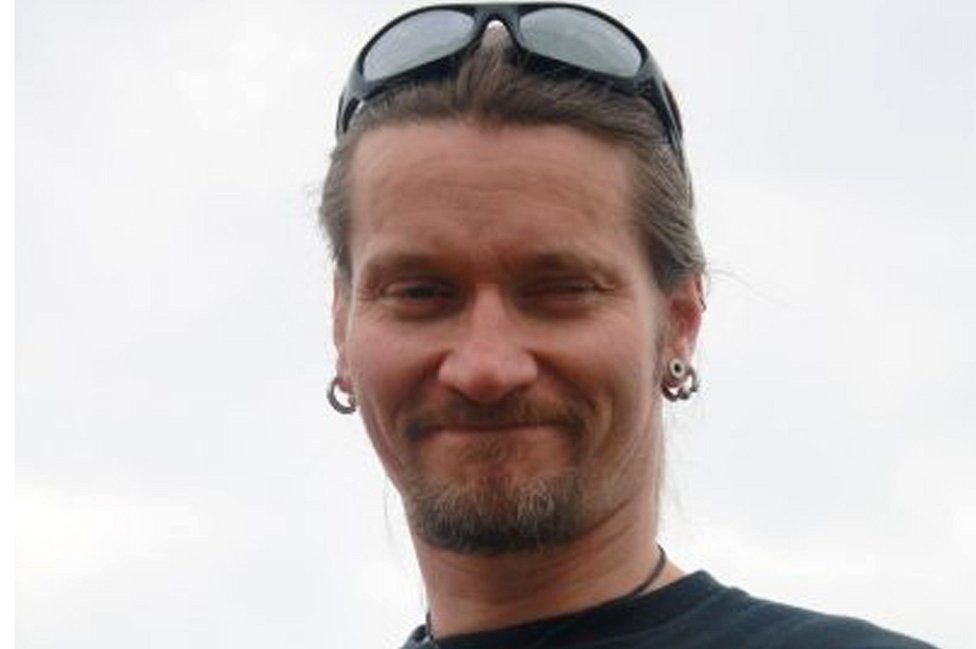
By Andy Whitakker & Greig Watson
BBC News
A woman said she had the bottom “ripped out of her world” when she discovered the man she had fallen in love with was an undercover police officer.
Mark Kennedy – a serving officer originally with the Metropolitan Police – posed as an environmental campaigner for years, forming close relationships with several women.
He was finally unmasked when a case against protesters who had allegedly been plotting to shut down Ratcliffe-on-Soar power station in Nottingham collapsed.
An official inquiry into the use of undercover officers is still ongoing years after the case came to light.
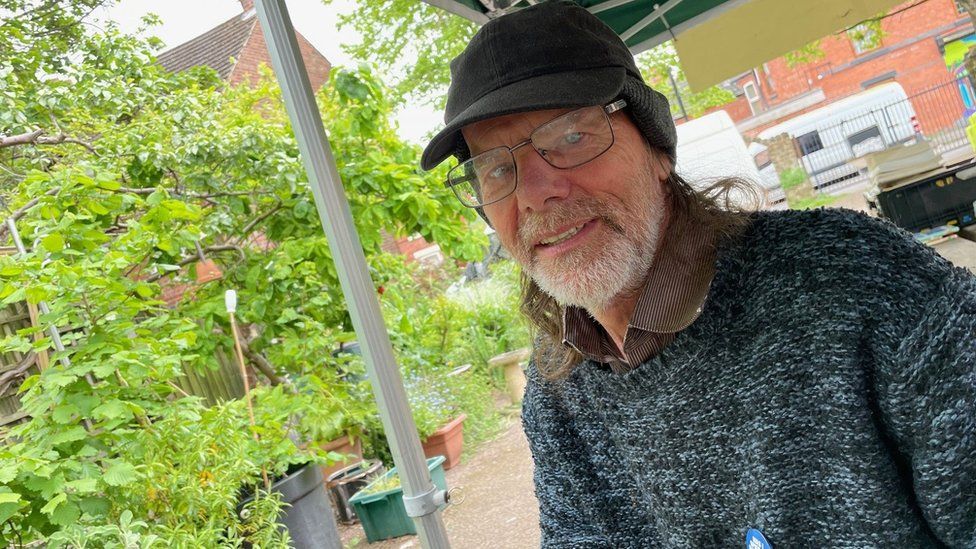
A new BBC audio series recounts how Mr Kennedy, who was calling himself Mark Stone, appeared at the Sumac community centre in 2003, saying he wanted to help environmental campaigns.
He made friends easily, due to his enthusiasm and access to transport and cash.
Pat Smith, volunteer at the centre, said: “He was very friendly, he was very engaging, he was a laugh.
“He would DJ at parties, he would buy people drinks, he was supposedly either a courier or a professional climber.
“He was a little bit edgy, a jack-the-lad. He was known as ‘Flash’ because he always had the money to buy a round of drinks.
“He was in the thick of things”.

Undercover: The Spycops

A 10-part podcast on the Mark Kennedy case is available on BBC Sounds.

The podcast also hears from former undercover police officer Neil Woods, who reveals some of the tactics this secretive branch used.
He said: “I would seek out the most vulnerable people in those communities.
“The reason for that is the most vulnerable people are the easiest to manipulate.
“If that sounds ruthless, well, of course it’s ruthless, a key thing about undercover policing is that is necessitates ruthlessness.”
The man known as Mark Stone became a integral part of a community, especially when it came to direct action against environmental targets.
As well as protests at power stations like Drax in North Yorkshire, Didcot near Oxford, Kingsnorth in Kent, and the G8 summit at Gleneagles, Scotland, in 2005, he travelled extensively in Europe.

But he also became emotionally involved with members of the group.
Eleanor Fairbraida, who herself had a brief relationship with Mr Kennedy, remembers how he became very close, very quickly with one of her friends, Kate Wilson.
Ms Fairbraida, now living in Bristol, said: “I think she felt that she had met someone who was like a bit of a kindred spirit.
“At the time she was living in a caravan on the drive of a housing co-op where lots of activists were living and she was temporarily in the caravan on the drive.
“And he told her, that he was really into like trailer trash living.
“She was really into country and Western music and he said he was also really into this.
“Their family supported the same football teams and she felt like she had met someone who was a lot like her.”

But Neil Woods says that even in the tough world of undercover policing, there were boundaries.
“Your aim is always to gather evidence, your aim is always to eventually stand in the dock and give evidence.”
“[Mark Kennedy’s] aim from the outset was merely to gather intelligence, it was never to gather evidence.
“This is more like something the security service would do, which makes the police more like secret police.
“It blurred the edges of what is policing and what is security services.”
After Kate Wilson moved away, Mark Kennedy started a relationship with another woman.
Her identity has been kept secret but she has been known as Lisa in interviews and said she fell “completely in love with him”.
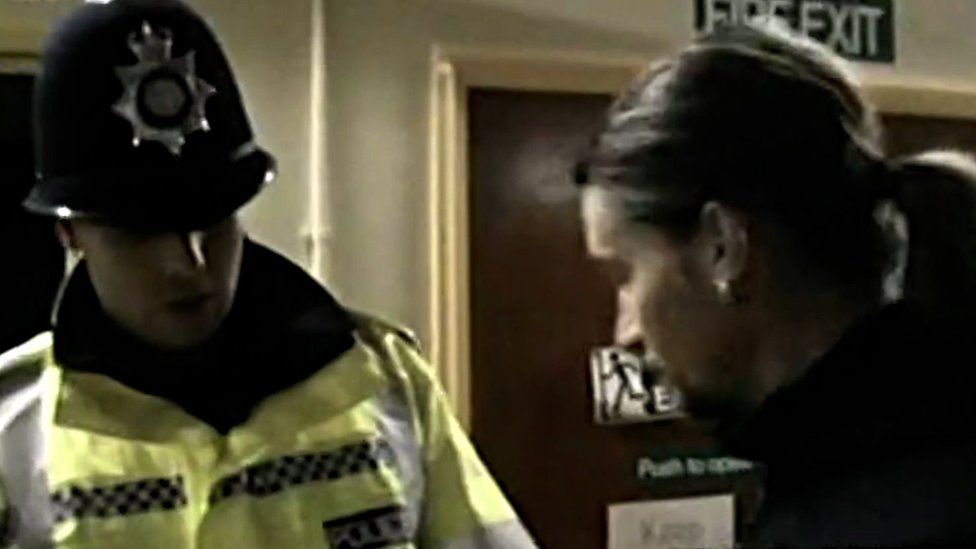
Mr Kennedy was among 114 people arrested in a police raid in 2009 designed to prevent a protest against Ratcliffe-on-Soar power station near Nottingham.
Those around him said he was shocked by his treatment in the aftermath, with his home raided, and spent time away.
The next year he took Lisa on holiday but she made a shocking discovery.
Looking at his passport, she found his real name, and the fact he had children.
She said: “It rips the bottom out of your world.
“Like everything that you thought you understood about… years of your life.
“Suddenly, you’re questioning everything, you’re questioning everybody that you know and…and yourself of course.
“Because how did you get it so wrong?”
Confronted with this and further evidence by members of the Sumac community, Mark Kennedy confessed.
A failure to disclose his involvement led to the collapse of the case against the environmental protesters in 2011 who had been arrested at Ratcliffe-on-Soar.
The collapse of the case triggered a review of his operation and the wider role of undercover police officers.
This in turn led to a full public inquiry, which has been continuing since 2017.
January 22nd 2024
“A Good Police Force Is One That Catches More Crooks Than It Employs.” Metropolitan Police Commissioner Sir Robert Mark.
Edit & Comments by R J Cook
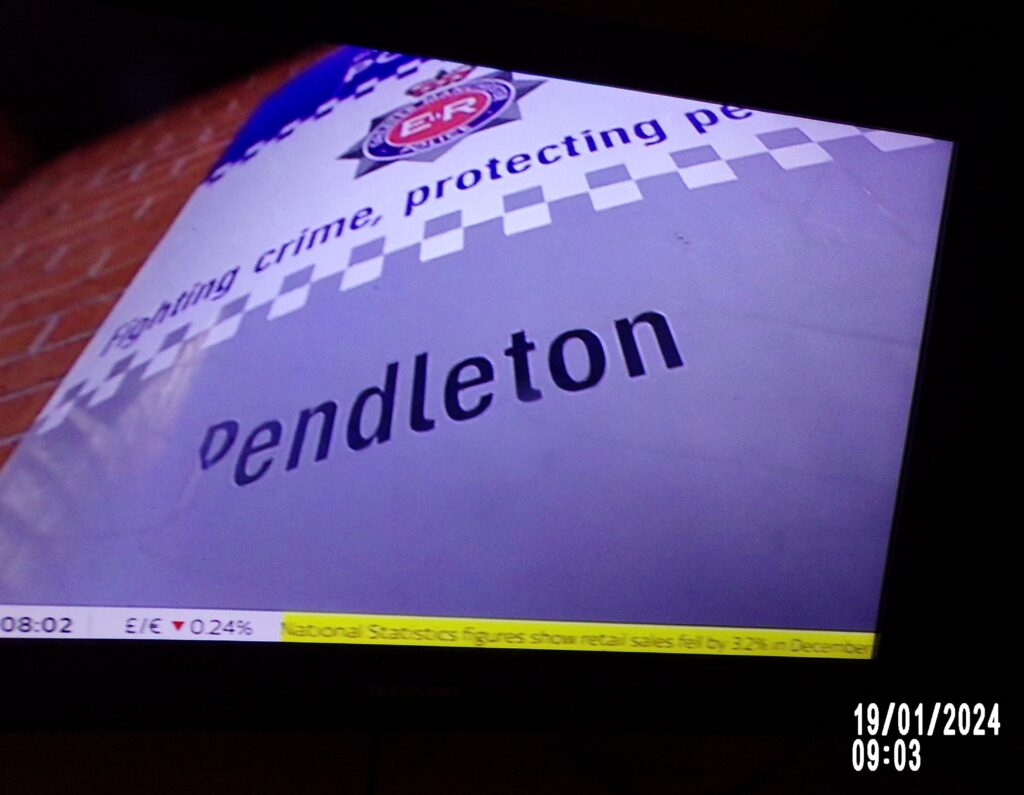
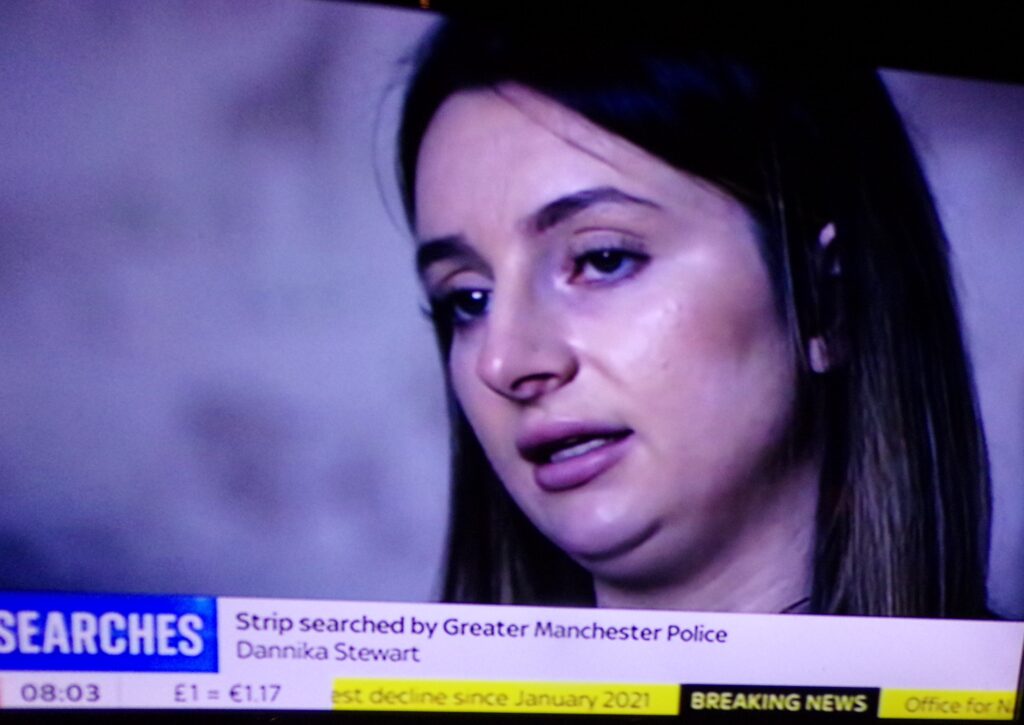
Complaints to the laughably named Independent Officer for Police Complaints ( IOPC ) are routinely bounced back to the Chief Constable. Some might find that reassuring but Greater Manchester had another famous Chief Constable by the name of Michael Todd, a married man with children. There was speculation as to exactly how many lovers he had – following his imaginative suicide freezing to death after consuming a large quanity of whisky on Snowdonia because he knew the game was up. The police are like a fish which rots from the head down.
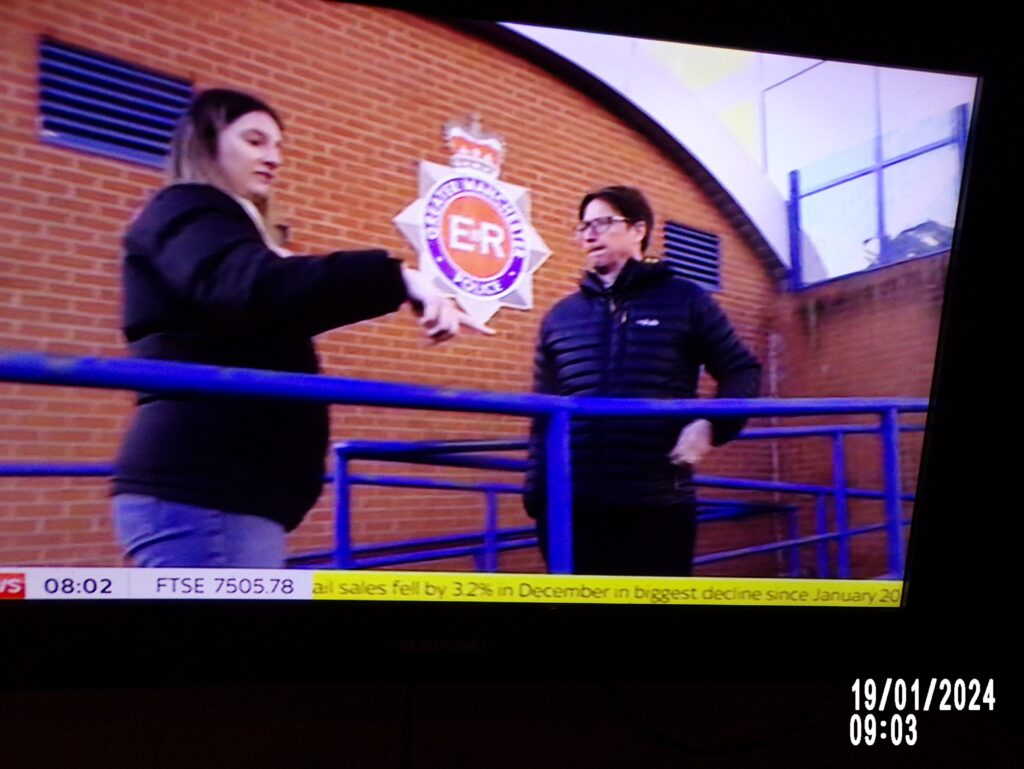
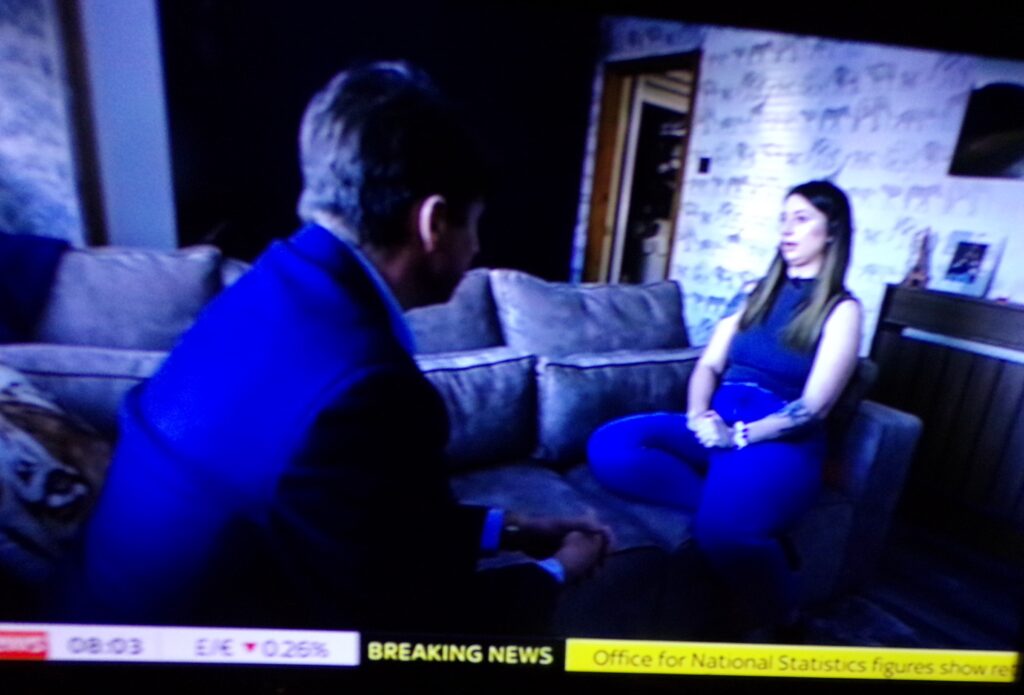
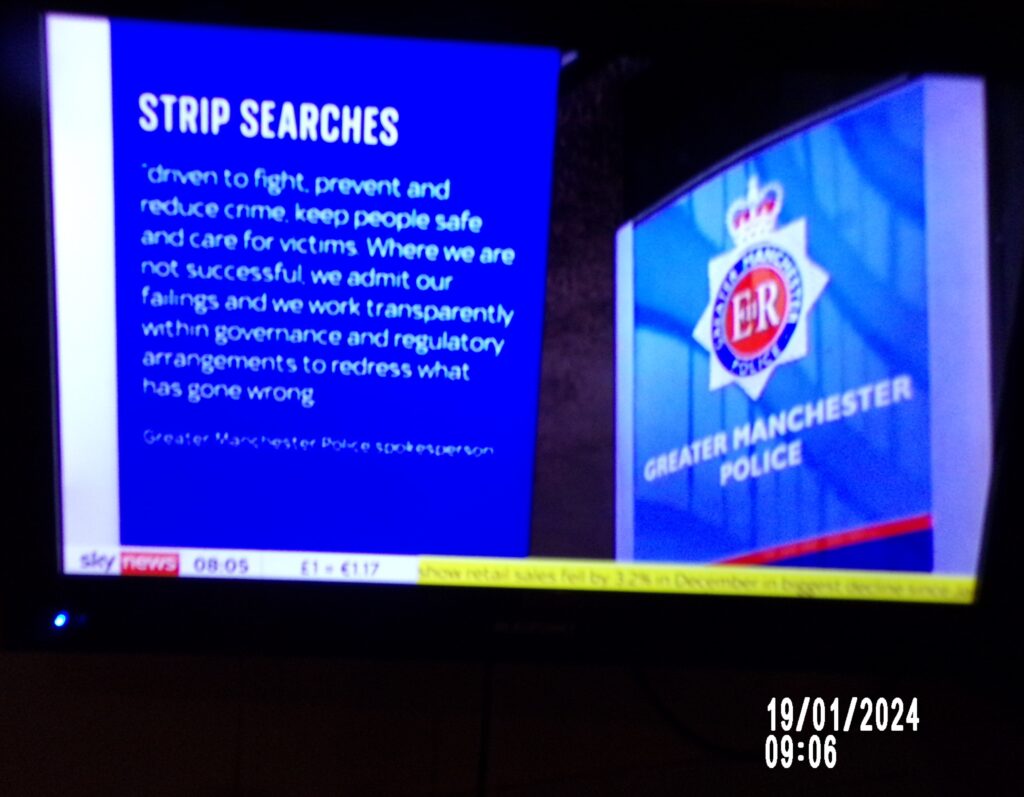
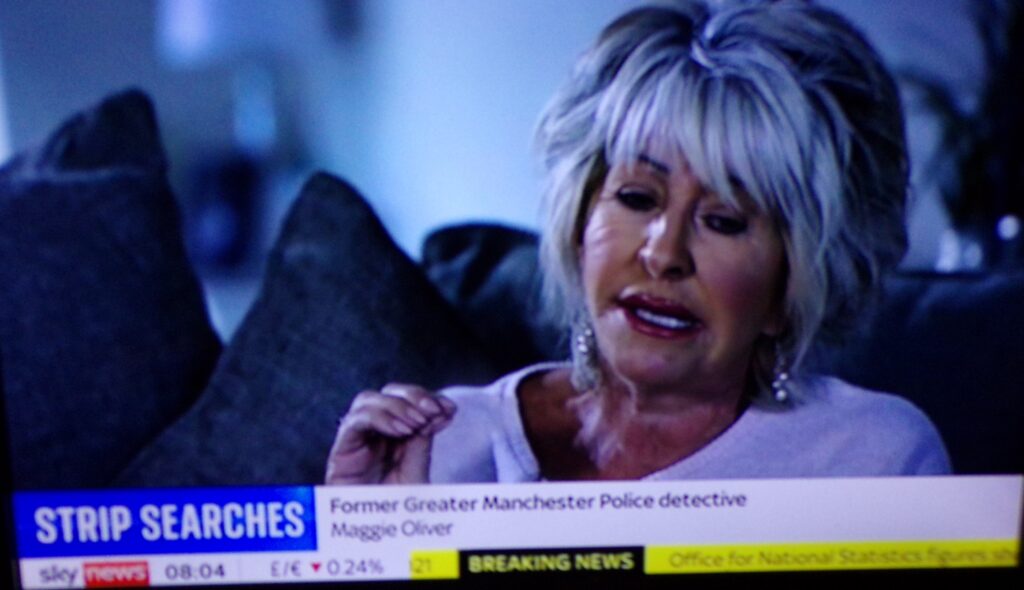
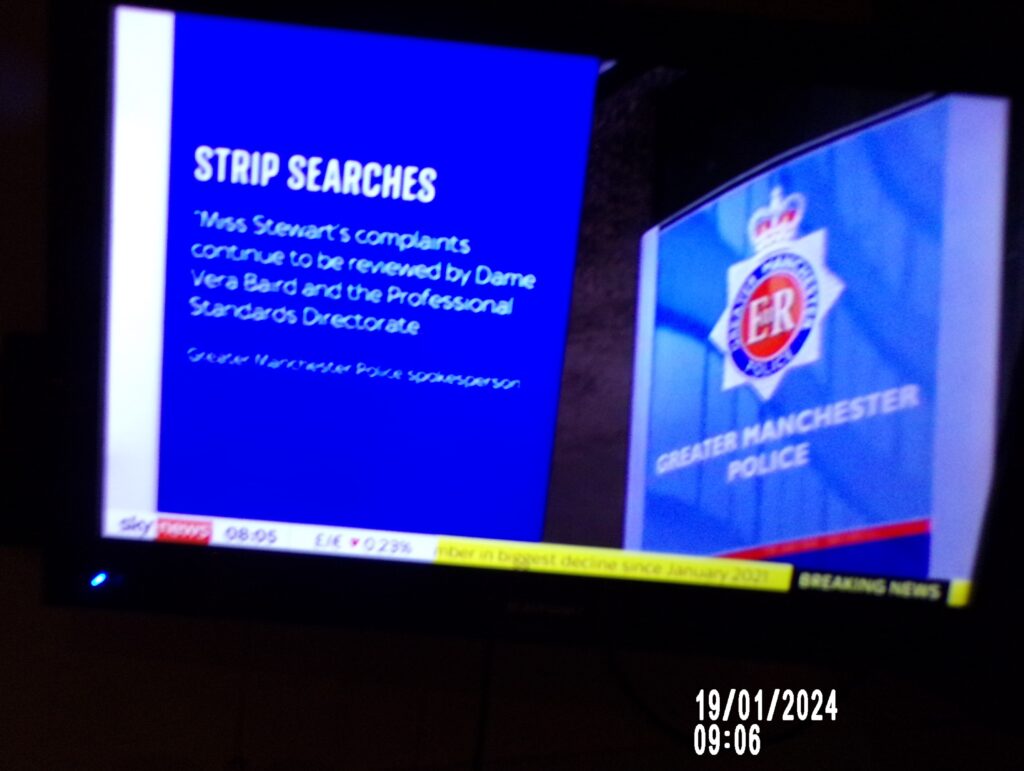
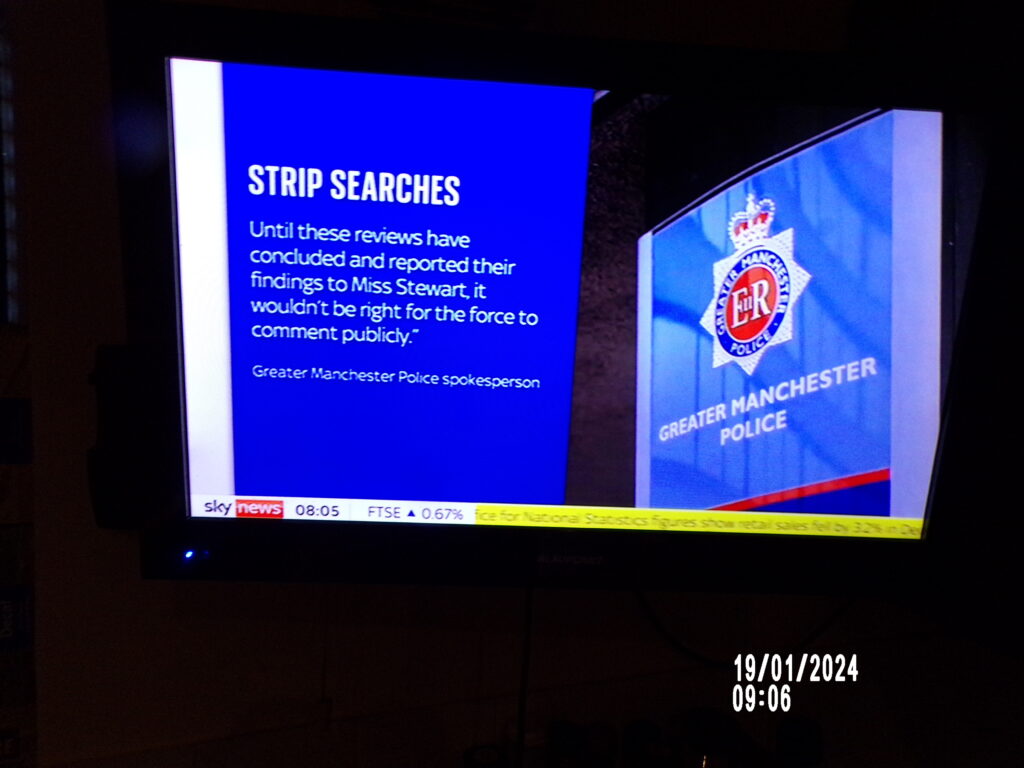

Body of Manchester chief constable found at foot of cliff in Snowdonia
Wed 12 Mar 2008 00.41 GMT
One of Britain’s most senior police officers, Greater Manchester chief constable Michael Todd, was found dead yesterday at the foot of a cliff in Snowdonia.
Police are investigating the possibility that the 50-year-old father-of-three killed himself at the north Wales beauty spot. It is understood that a series of notes to loved ones were found by rescue teams from the RAF, Llanberis mountain rescue and police who battled cold and heavy rain to reach the isolated crags.
Todd had taken a day off on Monday to go hill-walking in Snowdonia and the alarm was raised when he failed to return that night. His body was found yesterday afternoon below Bwlch Glas, an exposed area between Snowdon’s 1,085m (3,560ft) summit and the narrow Crib Goch and Crib y Ddysgl ridges where there have been many fatal falls.
The deputy chief constable, Dave Whatton, told a press conference in Manchester last night that the recovery operation was still under way in severe weather. Describing Todd as “my friend and our chief constable” he said: “As you can imagine, all his friends and colleagues are extremely upset. Our hearts and thoughts are with his family, and I would ask that they be left in peace to come to terms with this tragic shock.”
Todd, chief constable of the second biggest force in England and Wales since 2002, split his time between a flat in Manchester and his family home in Nottinghamshire, the county force where he was previously assistant chief constable before going to the Met. He was regarded as one of the brightest officers of his generation, having risen to assistant commissioner at Scotland Yard, in charge of frontline policing in all 32 London boroughs before taking the Manchester job.
As vice-chairman of the Association of Chief Police Officers (Acpo), he was a leading contributor to policing debates and was known for a grasp of resolute action combined with an eagerness to explain his decisions. During the 2001 May Day demonstrations he countered anti-capitalist protesters with a record 66 TV and radio interviews in two days on top of regular press conferences.
He took to his Greater Manchester job in 2002 with vigour, arresting four car thieves on a beat patrol in his first month and capturing public attention when he allowed himself to be shot with a 50,000-volt Taser gun to demonstrate its effects.
The operation to recover his body was hampered by “appalling” weather conditions including winds of up to 80 knots which prevented the use of rescue helicopters, said Ian Henderson of Llanberis mountain rescue team. He said hill-walkers had raised the alarm after finding “personal possessions” belonging to Todd on the mountainside.
Last night there was a wave of tributes from senior police chiefs and politicians. The home secretary, Jacqui Smith, said: “Chief constable Todd has had a long and distinguished career in various forces and has contributed greatly to the fight against crime and terrorism.”
Jan Berry, chairman of the Police Federation of England and Wales, said Todd had been as respected by officers on the beat as he was by senior officers and politicians. She said: “He was and will be always be remembered as a coppers’ copper … Despite his rank, he never forgot the dangers and pressures on those on the frontline face.”
Sir Ian Blair, the Metropolitan police commissioner, praised the man who might have been his successor for a “significant contribution to policing” particular in countering street crime during service with the Met.
Lord Harris of Haringey, former chair of the London police authority who was on the panel which promoted Todd to assistant commissioner of the Metropolitan police, said: “He was a big police officer in every sense of the word. He was a significant figure throughout the police service in the UK, well-known at conferences and events, always with something to say and always with a point of view, protecting the interests of his force and of policing.”
The president of Acpo, Ken Jones, said: “Mike has made an enormous contribution to policing in Manchester and nationally throughout his distinguished career. We have had a huge volume of calls from colleagues ... who were shocked at the news and join us in conveying their support for his family.”
Comment The ACPO boss’s comment above, speaks volumes for the police mindset, the types they seek to recruit and promote.
R J Cook
Shapps ‘disappointed’ by Netanyahu opposition to Palestinian state
Creating two separate states is the only solution to ending the conflict between Israel and the Palestinians, the defence secretary has said.
Grant Shapps said it was “disappointing” that Israel’s prime minister has rejected the idea.
Benjamin Netanyahu’s position was not “a surprise”, he told the BBC.
But Mr Shapps said Palestinians “deserved” a sovereign state, adding “I really don’t see that there is another solution”.
Following a call with US President Joe Biden on Saturday, Mr Netanyahu’s office released a statement saying he had “reiterated his policy that after Hamas is destroyed Israel must retain security control over Gaza to ensure that Gaza will no longer pose a threat to Israel, a requirement that contradicts the demand for Palestinian sovereignty”.
Mr Shapps said the comments were “very disappointing”.
“It’s not in some senses a surprise – he’s spent his entire political career against a two-state solution. But the point is, which other route is there to seriously resolve this?” he told the BBC’s Sunday with Laura Kuenssberg programme.
“Palestinians deserve a sovereign state, Israel deserves to have the full ability to defend itself, its own security.
“Unless you pursue a two-state solution, I really don’t see that there is another solution.”
He added there were a variety of views within the Israeli government “so we very much distinguish between the views of individuals and our overall support for Israel as a country”.
Labour has also described Mr Netanyahu’s comments as “completely unacceptable”.
Shadow home secretary Yvette Cooper told Sky News: “Statehood of a people is not in the gift of its neighbour, it is the right of a people and it is the right of the Palestinian people.”
Mr Netanyahu’s remarks appeared to deepen a public divide with the US.
Speaking to reporters after the call between the two leaders, Mr Biden insisted a two-state solution was still possible with Mr Netanyahu in office.
“There are a number of types of two-state solutions. There’s a number of countries that are members of the UN that… don’t have their own militaries,” he said.
Hamas killed about 1,300 people and took 240 hostages in its surprise attack on southern Israel on 7 October.
In response, Israel launched airstrikes and a ground invasion of the Gaza Strip.
According to the Hamas-run health ministry in Gaza, more than 25,000 people have been killed in the territory since the start of the conflict.
Also appearing on the programme, Scotland’s First Minister Humza Yousaf, whose parents-in-law were trapped in Gaza for more than three weeks in the early stages of the war, repeated his call for an immediate ceasefire.
Asked if he thought people sometimes placed a different value on Palestinian lives, he said: “Without a shadow of a doubt. If you talk to anybody who is Palestinian, you speak to many people in the Muslim community, they feel that the Palestinian blood is very cheap.”
https://emp.bbc.co.uk/emp/SMPj/2.51.0/iframe.htmlMedia caption,
Watch: Grant Shapps warns of ‘a more dangerous world’
In his interview, Mr Shapps also said the UK needed to be prepared for “a more dangerous world”.
In a speech on Monday he warned of growing risks posed by countries including China, Russia, Iran and North Korea, as well as terrorist groups.
However, asked when the government would hit its target of spending 2.5% of gross domestic product (GDP), a measure of the size of the economy, on defence, Mr Shapps said he could not give an exact date.
He told the BBC the trajectory was “already upwards”, with spending “comfortably above 2%”, and that the target would be met “when economic conditions allow”.
It comes after former head of the British Army Gen Lord Dannatt warned the UK risked a repeat of the 1930s, when the “woeful state” of its armed forces failed to deter Hitler, unless it invested more in its military.
Writing in the Times on Friday, he criticised the shrinking size of the Army and called for the government to commit to spending 3% of GDP on defence.
Challenged over why the size of the Army was reducing if the threats to the UK were growing, Mr Shapps said: “It’s not the number of people alone that matters, it’s the lethality, it’s how capable our systems are of defence.”
Comment Sixty per cent of all children under 16 in the England and Wales are of Pakistani heritage. My experience of teaching Pakistani boys for 18 years, in London and Buckinghamshire, taught me that they identify primarily with Islamic Pakistan. They do not do diversity. Even if they wanted to their comunities would not let them. Their growth in U.K population means the end of our hard won secular society because it is life threatening to offend Islam – remember July 21st 2005. Britain’s government goes out of its way to appease Islam, hence Blair’s Law to make critcising it a criminal offence. That stick has the greater ruling elite purpose of being another big stick to beat the white masses with, in the name of freedom and diversity. The reality is beating them into submission, fear and worse slavery.
People like Shapps have their eye on the next election and are wary of upsetting the media, academics and massive Islamic voting blocs. So, as we saw from massive pro Palestinian ongoing protests, Britain’s leadership and police must accommodate their requirements as well as backing the two state solution which will mean encircling Israel with Palestianians having right of way between the West Bank and Gaza – doing as they like en route.
As I have said many times, Muslims do not do multi cultue. The history of their version of God, informs them that they must colonise and take over the world. Their terrorism and vile attack on Satanic Verses author Salman Rushdie, informs me of the lengths these people will go to assert their view that Allah made the world, his word via the Koran, being the only truth.They have no interest in their common heritage with the Jews, from whose religion their beliefs are derived. HAMAS, overwhelingly supported by Palestinians world wide let alone Gaza and the West Bank, want to exterminate the Jews in a new holocaust.
Meanwhile the likes of Shapps and Biden want to get back full focus and finance on the only enemy they are aware of, which is Russia. Their Ukraine proxy war, which Sunak told Zelensky that he will never desert, needs all of their war time and energy, whatever the cost to their ignorant baying masses. They are ready and desperate to sell Israel down the river just as they did when Rhodesia became ZIMBABWE – which went from breadbasket to desert, with tribal and white genocide thrown in for good measure.
R J Cook
January 20th 2024
 |
| House of Commons gives Bill green light to send migrants to Rwanda. But huge hurdles remain. The talk this week has of course been all about the Safety of Rwanda Bill, which received its third reading having survived its passage through the Commons intact. It will now pass to the Lords where the government does not, of course, have a majority. The Prime Minister called on the ‘appointed’ chamber to ‘do the right thing’, pass the Bill and not ‘frustrate the will of the people’. In fact, the main hurdle to removing those arriving illegally and claiming asylum lies in the Bill’s connection to Sir Tony Blair’s 1998 Human Rights Act, which incorporates the European Convention of Human Rights into the British legal system. It is this Act that provides the avenue to challenge removal to Rwanda or anywhere else. No matter that they made their way here illegally across the Channel in small boats from safe France, and having handed over huge sums to criminals to bring them here. While the Safety of Rwanda Bill excludes key Human Rights Act provisions, crucially, it does not disapply section 4. It is this section that allows challenges to its compatibility with the European Convention of Human Rights in domestic courts. We strongly believe that, as it stands, the legislation will very likely face challenges in the European Court of Human Rights (ECtHR) in Strasbourg. We agree with the former immigration minister, the excellent Robert Jenrick, and his former boss, the equally fine ex-Home Secretary, that such gaps will lead to any attempts to remove anyone to Rwanda getting mired in the courts. It was heartening to see that Mr Jenrick, like Ms Braverman and nine other Tory backbenchers had the courage of their convictions to vote against the Bill on Wednesday night. While we are on Robert Jenrick, we were delighted to hear him on GBNews drawing attention to the much bigger problem of the scale of legal immigration and its impact on the economy and society. Net migration of 600,000 to three quarters of a million, potentially leading to population growth of more than 13 million people in less than 25 years, is simply too awful to contemplate. Do take a peek at this short clip. |
| Migration Watch relies entirely on the generosity of our supporters who fund our work. If you would like to help us with our efforts, please click here to donate. |
| Allister Heath, the Telegraph – Mass migration is about to sweep away the West’s blinkered political class. “The Rwanda plan is laughably inadequate n this context. It cannot be scaled. It retains our membership of the European Convention of Human Rights. It doesn’t question the principle of non-refoulement or any of the post-Second World War refugee conventions, well-meaning yet outdated agreements that bar governments from choosing who can settle in their countries. It does nothing to fix our dysfunctional Home Office and its propensity to lose track of illegal migrants, or the fact that our courts and administrative machinery are so lax at interpreting the law.” And this: “But I now also believe that the volumes of immigration have become unsustainably large, that certain groups have become dangerously insulated from the rest of the nation. Extremism is on the rise and far greater scrutiny of who we let in is needed if we are to retain our social cohesion.” We also liked: Sanjit Nagi, UnHerd – How New Labour created the Rwanda stronghold |
| MIGRATION WATCH IN THE MEDIA |
| This week, Migration Watch Executive Director Dr. Mike Jones talked about clause 4 of the Safety of Rwanda Bill, which allows a court to stop (or delay) removal of an illegal immigrant if he or she faces a real, imminent risk of ‘serious harm’. It’s not clear which cases this covers or how to distinguish individual circumstances from general objections to Rwanda’s safety: |
| In an article for The Daily Telegraph, Migration Watch Chair Alp Mehmet criticised the chaos and dysfunction within the Home Office: “The fault lies with successive governments headed by weak or badly advised prime ministers and decisions to liberalise the immigration system”, he said. The loose points-based system being an example. It is too convenient for those in power to blame civil servants for their own failures. While the way the Home Office is overseen, and is now misfiring, is also part of the problem, the main reason we have mammoth levels of immigration is that Conservative ministers believed it to be the right policy and necessary for the economy. They were wrong, and we warned them of what would happen.” Alp was also quoted in The Daily Express on the French claim that illegal immigrants see the UK as ‘El Dorado”: “Alp Mehmet, Chair of Migration Watch, told the Daily Express: “Well we are clearly attractive but more because you can get here and stay even if you are rejected. You can say that you can live in comfort while you wait for your ticket to El Dorado. Unless of course the French would like us to destroy our way of life to become less attractive to would-be immigrants.” Following the rejection of Robert Jenrick’s amendments to the Safety of Rwanda Bill, Alp told the European Conservative that the Bill may not work in practice. “The former home secretary, Suella Braverman, and immigration minister, Robert Jenrick, both lawyers, say the bill as it stands will not do the job. They should know. If the legislation needed does not make it onto the statute book, flights to Rwanda are highly unlikely to take off before the election.” |
| MAKE YOUR VOICE HEARD |
| Making legal migration more restrictive is simple – you impose caps, raise thresholds, and impose bans on specific groups like student dependants. Dealing with illegal immigrants requires changing or abolishing legal structures, such as the 1998 Human Rights Act. Regrettably, the Tory government has taken the opposite approach: no caps, lowered thresholds, and leaving the legal framework untouched. Now, we’re facing the repercussions – mass, unrestricted immigration. If the government’s poor record leaves you as frustrated as we are, we encourage you to express your concerns by writing to your Member of Parliament. |
| We wouldn’t be able to continue this work without the help of our supporters. If you would like to donate, please click the button below. Our supporters are all as concerned about the future of our country as we are. Some have been kind enough to remember us in their will. If you wish to consider leaving a bequest to Migration Watch UK, or wish to discuss anything else, do please get in touch. Our email is: admin@migrationwatchuk.org |
January 19th 2024
Normandy war veteran and Metropolitan Police Commissioner, 1972-77, Sir Robert Mark said that “A good police force is one that catches more crooks than it employs.”

A serving Metropolitan Police officer has appeared in court charged with two counts of rape. PC Andrej Sagaidak, from the south-east London policing team, has also been charged with non-fatal strangulation and causing actual bodily harm.
A serving Metropolitan Police officer has appeared in court charged with two counts of rape.
PC Andrej Sagaidak, from the south-east London policing team, has also been charged with non-fatal strangulation and causing actual bodily harm.
The Met said the case relates to a report a man was raped at a home in Islington, north London, last Monday.
PC Sagaidak, who has been suspended from duty, appeared before Westminster magistrates earlier, the Met said.
He is due to appear at Snaresbrook Crown Court on 2 February, the force added.
Det Ch Supt Trevor Lawry, who is responsible for policing in Bexley, Greenwich and Lewisham, said: “This is a deeply concerning allegation and I know it will cause significant concern.
“We took immediate action when we received the report and the officer was suspended from duty following his arrest on Thursday.”
The force said its investigation was ongoing and PC Sagaidak was off-duty at the time of the alleged offences.
The Met has referred itself to the Independent Office for Police Conduct following the allegations.
Here is another odd copper.
A Metropolitan Police officer has been charged with rape, Scotland Yard has said.
Sergeant Leo Boateng, who is attached to the Central West Basic Command Unit, is due to appear at Westminster Magistrates Court on Friday, the force said.
The charge relates to an incident that is alleged to have taken place in November 2022 while the officer was off duty.
Boateng has been suspended from duty and the Met’s Directorate of Professional Standards has been informed, the force added.

January 18th 2024
Two British Rail workers who were jailed on word of corrupt police officer have convictions quashed
The workers both died with their convictions hanging over them. Each had been sentenced to nine months in prison in 1977 over the theft of parcels from the London goods depot where they worked.
News reporter @niamhielynch
Thursday 18 January 2024 15:18, UK
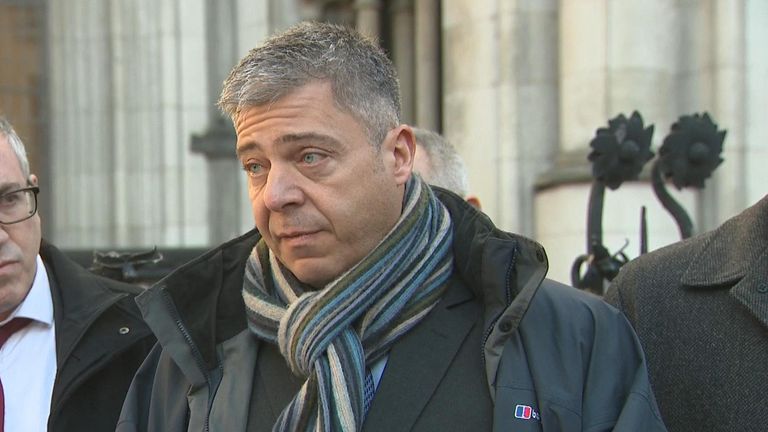 1:27
1:27
Two British Rail workers have had their convictions for theft quashed at the Court of Appeal after being jailed on the word of a corrupt police officer.
Basil Peterkin and Saliah Mehmet both died with their convictions hanging over them after they were sentenced following evidence from British Transport Police officer Derek Ridgewell.
The detective sergeant had accused the two men of theft from a site he later admitted stealing from.

The officer – who also served in the South Rhodesian, now Zimbabwean, police force – was involved in a number of high-profile and controversial cases in the early 1970s.
Ridgewell died of a heart attack in prison in 1982, aged 37.
The rail workers’ convictions were quashed by appeal judges at a hearing in London on Thursday, after the men’s cases were referred by the Criminal Cases Review Commission (CCRC) – a body that investigates miscarriages of justice.
Mr Mehmet, who died in 2021, and Mr Peterkin, who died in 1991, were both sentenced to nine months in prison in 1977 over the theft of parcels from the Bricklayers Arms goods depot in south London, where they worked.
They said the items found in their possession had been planted, and that any admissions said to have been made by them had been fabricated by the police.
In 1980, Ridgewell was jailed for seven years for stealing property worth £364,000 from the same site, while his colleagues Detective Constable Douglas Ellis and Detective Constable Alan Keeling were sentenced to six and two years respectively.
Advertisement

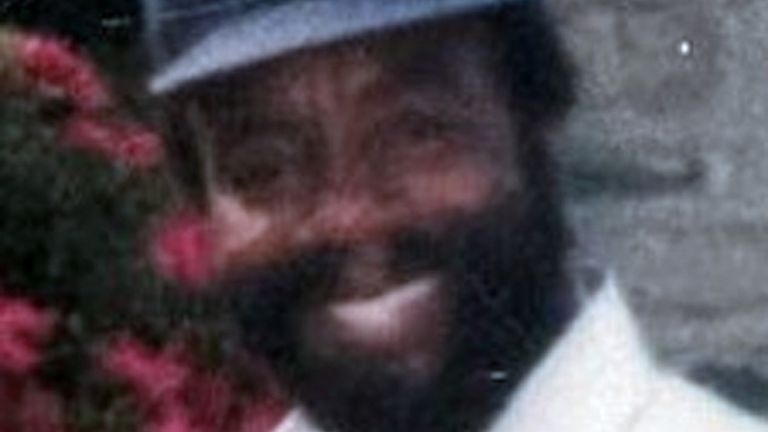
‘Traumatic legacy stayed with them’
Mr Mehmet’s eldest son said this morning that today’s judgement brings “some relief from the injustice that’s lasted nearly half a century”.
“Regrettably though, our father doesn’t get to experience this judgement today,” Regu Saliah said.
“He passed away two years ago and he lived as a victim of DS Ridgewell’s corrupt and racist police officer for over 43 years.”
Mr Saliah said his father “never managed to comprehend” the injustice he suffered and that it had “left a traumatic legacy that stayed with him his whole life, unfortunately”.
“Perhaps even harder for him was knowing that his incarceration left himself and my mother penniless and homeless in 1970s London.”
Janice Peterkin and Lileith Jones, Basil Peterkin’s daughters, said outside court that they had “got justice at last for our dad”.
“We have been determined to fight to see him cleared of crimes he did not commit,” they said.
“He didn’t deserve to spend time in prison. He was a law-abiding citizen and a family man.
“Basil was unfairly targeted and framed by the ex-policeman Ridgewell, who was clearly racist and corrupt.”
‘Systemic racism’ acknowledged
The family members also called for legislation that would result in an automatic independent review of files associated with police officers who have been sent to prison in order to find possible wrongful convictions.
The chief constable of the British Transport Police apologised for the “trauma” caused by the actions of Ridgewell and acknowledged that “systemic racism” previously played a role in the culture of the force.
The CCRC previously said it had referred 11 cases which relied on Ridgewell’s evidence.
The body also confirmed it had been investigating the “historical racist and corrupt practices” of Ridgewell, whose corruption has led to the convictions of members of the so-called Oval Four and Stockwell Six being overturned in recent years.

Henry Blaxland KC, representing Mr Peterkin and Mr Mehmet, told the court that they were “two perfectly respectable and entirely innocent British Transport employees” who had been “fitted up” by Ridgewell – a “dishonest, corrupt and racist” police officer.
The barrister said delays over investigating their wrongful convictions meant evidence had been lost and that neither man was alive to have the “satisfaction” of seeing them quashed.
Mr Peterkin was left with a “profound mistrust in the police”, as was Mr Mehmet – so much so that when he was later robbed as a minicab driver he didn’t want to report it, the court heard.
Mr Blaxland said Ridgewell “should have been sacked in 1973” amid concerns about his actions in a different team.
The officer was moved into a department investigating mailbag theft, where he joined up with others with whom he split the profits of stolen mailbags.
He said there had been a “systemic failure on behalf of the British Transport Police” over investigating prosecutions that relied on Ridgewell’s evidence.
Read more UK news:
Prince of Wales visits wife Kate in hospital as she recovers from surgery
Thousands being targeted in HMRC tax-collecting scheme linked to suicides
Boy who starved to death was too small to reach fridge, says mum
The barrister explained that the only reasons the convictions were at the Court of Appeal was due to the research of another of Ridgewell’s victims.
In 2018, Stephen Simmons’ 1976 conviction for stealing mailbags was quashed after he discovered that Ridgewell was jailed for a similar offence two years after his own conviction.
Megan Millar, representing the Crown, said the appeals were “not resisted”, adding that new evidence “undermines the safety of the convictions”.
Lord Justice Holroyde, sitting with Mr Justice Garnham and Mr Justice Andrew Baker, said: “We can’t turn back the clock, but we can quash these convictions.”
He added that it was “very unfortunate” that so many years had passed before families had seen justice “rectified” and that Mr Peterkin and Mr Mehmet “have not lived to learn of their vindication”.
Comment The U.K Police are a vile institutionally corrupt organisation with some dreadful overpromoted worst of the lot in charge. Under fire they close ranks and do not care how many innocent people they lock up. They are cowardly bullies, will lie to get convictions or save themselvse, fake heroes desperate for status and money. It is not as simple as racism. They are by nature and trained to be what the sociologist R K Merton called ‘perspectivist thinkers ( Social Theory & Social Structure ).. He got the idea from an earlier sociologist, William H Whyte, who said that the best place to commit and hide a crime is in plain sight of law enforcement ( Street Corner Society ). Too many police officers know this which is why we have this case. Because the great British masses, especially women, have orgasms about increasing police numbers to keep them safe and love cop documentaries. Stories like this one are seen and presented as ‘one offs’ and not part of a pattern.
The fact that this took so long to come to justice tells folk with a brain, that the majority of corrupt cops never come to light so the innocent die in jail. The IOPC, like the IPCC before it, are just a mailing service for the police. Government and police don’t want real accountability and get off on reprising lessons learned by the racist killing of Stephen Lawrence, while warning us not to comment on blacks involved in the New Year’s Eve murder of 16 year old Harry Pitman, whose name, unlike Stephen Lawrence ,will be forgotten in 30 years time because it is not an election vote winner.
White males are allegedly privileged. Only blacks and women suffer. This semi official attitude is a breeding ground for trans hate which killed Brianna Ghey and each way racism that accounts for this horrible story above.
R J Cook
January 17th 2024
Bronson Battersby: Review after boy, two, and dad found dead

By Kevin Shoesmith
BBC News
A two-year-old boy and his dad have been found dead at a property in Skegness, prompting a “rapid review”.
Bronson Battersby was found alone in the house with his 60-year-old dad, named locally as Kenneth, on 9 January.
It is thought the toddler, who has been described as the “light of his dad’s eye”, starved to death after Kenneth had a heart attack.
The family was known to children’s services and Lincolnshire County Council has launched a inquiry.
Its executive director of children services, Heather Sandy, described the deaths as “devastating” and “tragic”.
“Kenneth has passed away at his home,” she told BBC Radio 4’s World at One.
“He was at home on his own with Bronson and that meant that there was nobody left to give Bronson care, and sadly as a result of that, Bronson has also passed away.”
https://emp.bbc.co.uk/emp/SMPj/2.51.0/iframe.htmlMedia caption,
Listen: Children’s services boss on Bronson Battersby
She said a review of various agencies’ involvement would be carried out.
“What’s really important is that we understand fully what has happened, so the rapid review will allow all of those agencies to come together and to look at what has happened.”
She added: “This is absolutely devastating for us and very much more devastating for the family, and our thoughts are with them.”
‘Chance to be good dad’
Ms Sandy confirmed a social worker “had contact” with Kenneth on 27 December, with a home visit then arranged for 2 January.
“The social worker went to Bronson and Kenneth’s home and had no response to the knock at the door, so she looked at other addresses to try and locate Bronson, and when she failed to do that she spoke to her manager and she contacted police,” she said.
The social worker made another attempt on the 4th and because she could not legally gain entry, alerted the landlady following a third failed attempt on the 9th, Ms Sandy added.
Boston and Skegness MP Matt Warman described the events as a “tragedy”.
“It does appear that social services made repeated contact – they tried to get hold and the system did not seem to understand the potential gravity of the situation. That’s what we’ve got to try and understand,” he said.

A neighbour, who claimed she knew the family, described Bronson as “gorgeous, happy little boy”, adding “his dad was his best friend”.
Maria Clifton-Plaice, Kenneth’s landlady, said she was “just heartbroken”, describing finding Mr Bronson’s body as one of the “worst [days] of my life.”
She said she did not know Bronson well but added: “I know he’d come and started staying with Kenny recently and he was just probably the light of his dad’s eye. He was, I think, Kenny’s chance to be a good dad.”

Timeline
- 27 December A social worker “has contact” with Kenneth and a home visit is arranged
- 2 January The social worker arrives at the property but there is no response at the door. She tries to locate Bronson at other addresses and unable to find him, speaks to her manager and the police
- 4 January A second attempt at a home visit is made. Again, there is no response. The social worker informs police
- 9 January A third attempt is made and the social worker alerts Kenneth’s landlady. Entry is gained and the bodies of both Kenneth and Bronson are found
- 17 January Lincolnshire County Council confirms a review is under way and Lincolnshire Police says it has referred itself to the Independent Office for Police Conduct (IOPC)
Source: Lincolnshire County Council, Lincolnshire Police

Meanwhile, Labour leader Sir Keir Starmer told Prime Minister’s Questions he was “saddened” to hear how the father and son had died in “heartbreaking circumstances”.
Lincolnshire Police said it was not treating the deaths as suspicious but had referred itself to the IOPC, adding it was standard procedure in such cases.
Comment This is painfully sad and an indictment of Britain’s public services, especially U.K Police who are not fit for any humane purpose because of how they are selected, trained, led and promoted. It is also testament to how rampant feminism is destroying family life. It should be incredible that this so called democracy has money for a rich man’s regime change proxy war on Russia where Storm Shadow missiles cost £2.2 million each and a relative pittance for its ever expanding migrant driven overpopulation and declining health care. Here more police are seen as the solution to every problem. As we saw with this case, police could not be bothered to deal with the social workers warning.
R J Cook
Post Office scandal: The ordinary lives devastated by a faulty IT system
By Michael Race & Lora Jones
BBC News
More than 900 Post Office workers were prosecuted after faulty computer software made it look like money was missing from their branches.
While victims of the scandal have now been promised swift exoneration and compensation by the government, hundreds of people’s lives have already been ruined. It has been described as the biggest miscarriage of justice in UK history.
Some lost their jobs, businesses and homes; they were left financially ruined. Some were convicted and sent to prison. Some died while waiting for justice. Others killed themselves.
Many victims felt they were on their own, yet hundreds of others were enduring similar experiences. These are some of their stories.


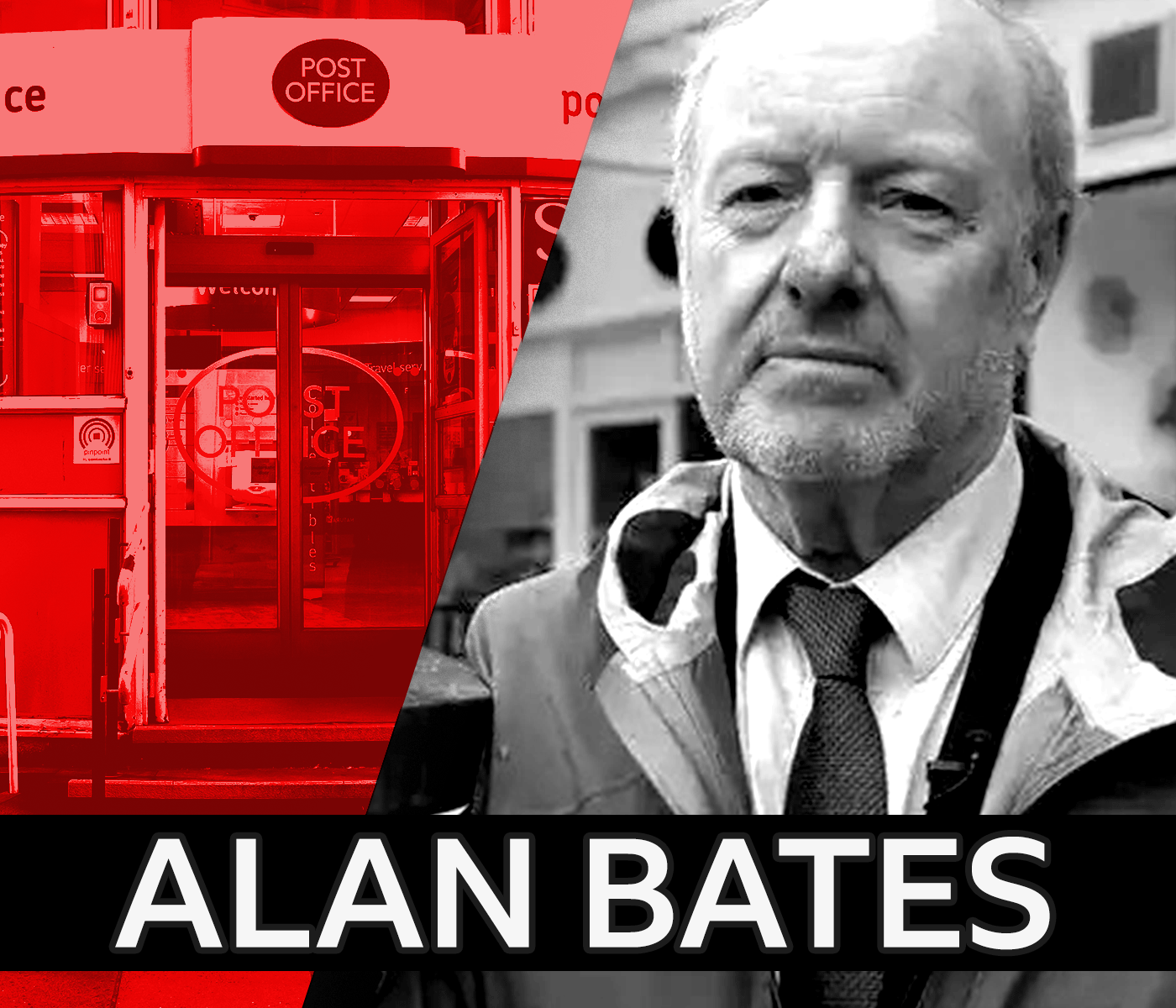
Alan Bates became the face of the fight against the injustices of the Post Office. His story has come to define those of at least 736 others who were also wrongfully convicted between 1999 and 2015.
A sub-postmaster, Alan took over a shop with a post office counter in the seaside town of Llandudno, in 1998. Together with his partner, Suzanne, they poured their life savings into the business.
But soon he was facing huge shortfalls – money that was seemingly lost – and there was no explanation.
The Post Office blamed him, as it did hundreds of others.
But unlike many other sub-postmasters and mistresses, who felt immense pressure over their own apparent losses, Alan did not admit liability.
He raised concerns about the false shortfalls. He tried to fight.
Alan’s contract was terminated. He was sacked by the Post Office in 2003. But for the last 20 years, he has campaigned to find the truth about what happened.
He first set up a website, calling out to other sub-postmasters who might have faced similar issues.
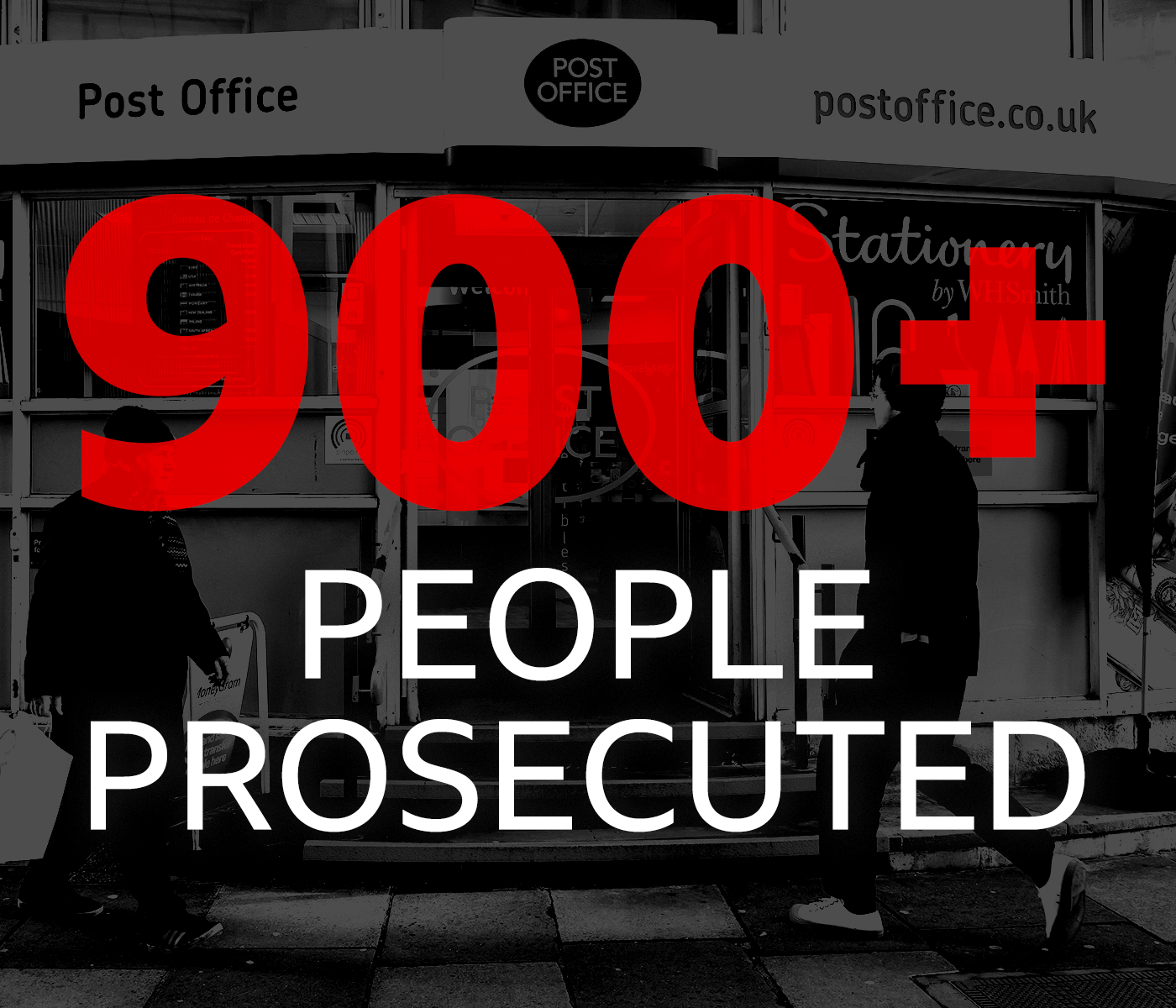
In 2009, he and six others spoke out publicly for the first time about the flaws of Horizon – the computer accounting system used by the Post Office – in an interview with Computer Weekly.
Thousands of hours of work ensued.
He attended court hearings, organised meetings, pushed forward with the assistance of MPs and ministers. Media and politicians slowly took notice. News reports started to sound alarm bells.
When mediation attempts with the Post Office failed, Alan became one of six lead claimants in a group legal action involving more than 500 former sub-postmasters.
They told judges the Horizon IT system contained software defects, which caused shortfalls in their accounts.
He told the court he never believed he would be held responsible for financial losses that were not his fault.
“This concept seems just so unjust that I did not consider it a possibility,” he says.
The judge agreed. The Horizon system was flawed and a group of 555 post office workers won a group action paving the way for the first round of sub-postmasters and sub-postmistresses to have their convictions overturned in 2021.
Alan’s story – and name – was the focus of the ITV drama, Mr Bates vs The Post Office, which has reignited the public consciousness around the Post Office scandal.
“It’s been the best or the worst unpaid job I’ve ever had,” he says. “You just carry on with it day after day. You can’t let it go.”


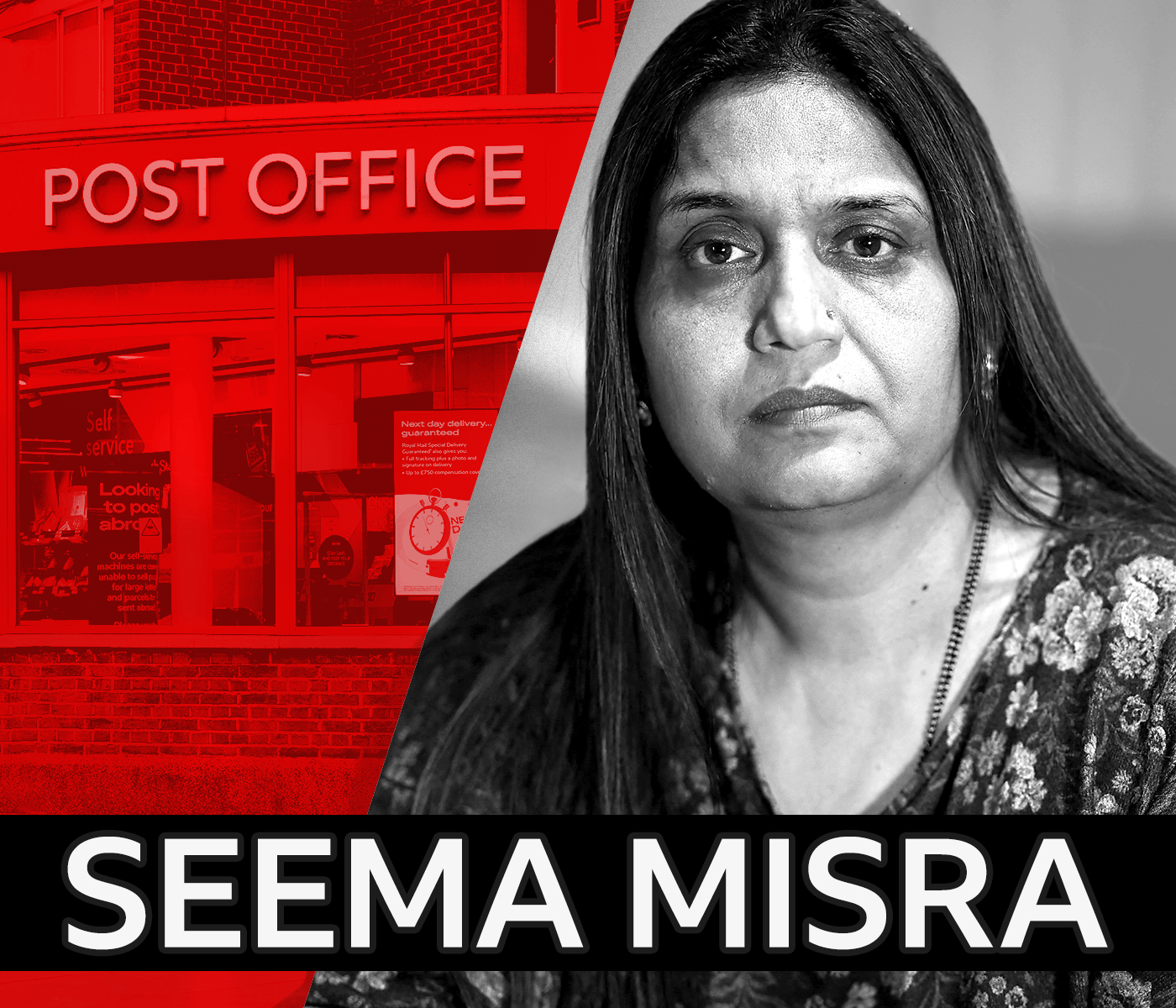
Seema Misra was eight weeks pregnant with her second child when she was wrongly convicted of false accounting and theft. An audit of her post office, in the Surrey village of West Byfleet, had found a shortfall of more than £70,000.
Seema had also found discrepancies in the accounts several years earlier. Unable to get answers from the Post Office, and warned she could lose her business, she began feeding money from her shop to the till to cover the apparent shortfalls.
Seema borrowed large amounts of money from relatives to balance the books – including £22,000 from her sister-in-law.
She says she felt like “the dumbest person on the planet”.
“They say they have so many other post offices who are doing fine, ‘it’s you having an issue’. I used to be on the floor until the early hours of the morning trying to find out what went wrong, but [I] couldn’t find it.”
The Post Office prosecuted her.
She was one of 736 people who were prosecuted between 1999 and 2015 based on information from the Horizon computer accounting system – an average of one a week. A further 283 cases were brought by other bodies, including the Crown Prosecution Service.
Seema was given a 15-month prison sentence in 2010. She was sent to Bronzefield Prison on the day of her son’s 10th birthday and ordered to pay compensation totalling £40,000.
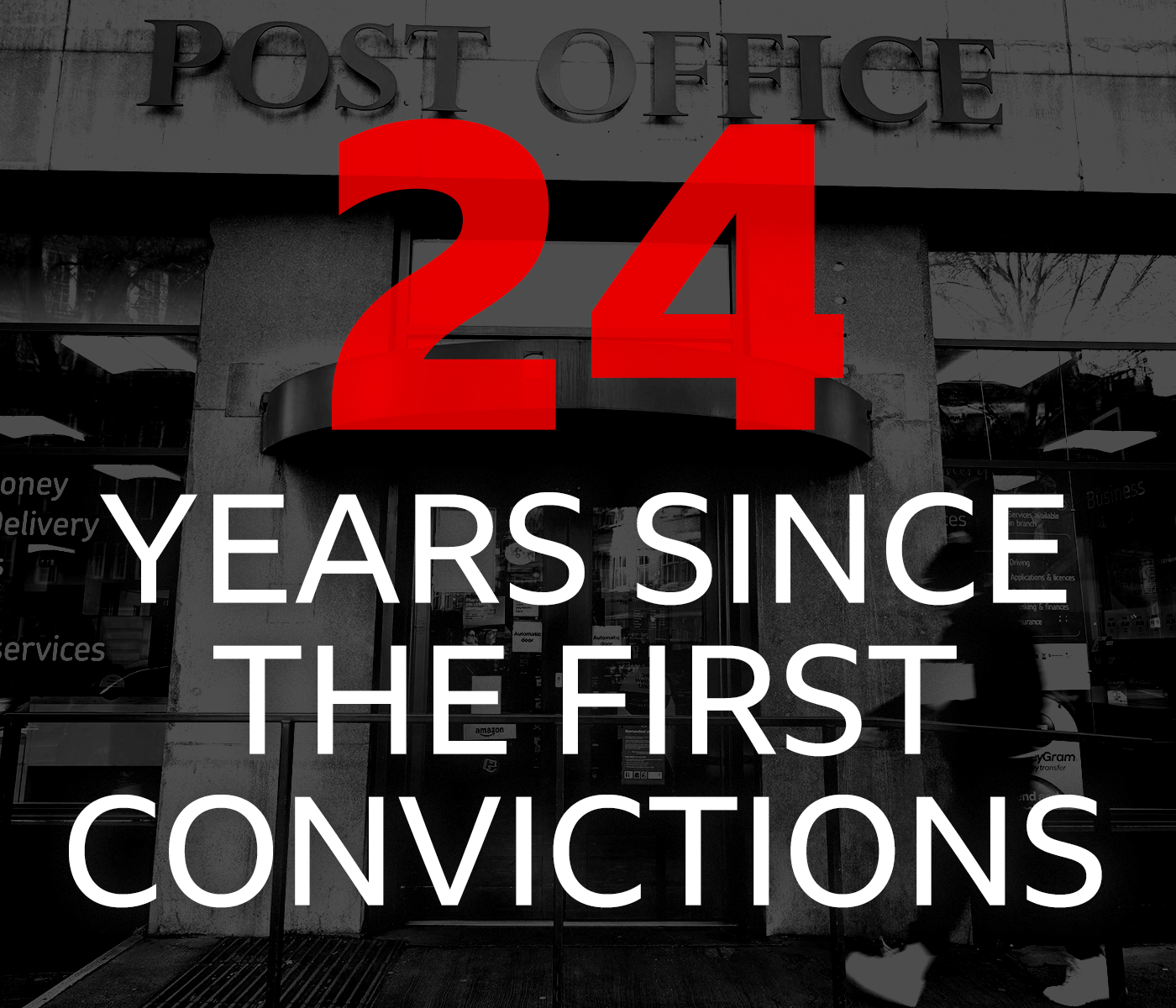
Her husband, Davinder, lied to family members – including Seema’s parents in India – and did not reveal she was prison.
He made excuses for her missing phone calls, sometimes holding up a landline to his mobile so Seema could talk to her parents from prison without them knowing.
“If I [wasn’t] pregnant I would have killed myself,” she says. “It was really bad, I never thought I was going to come out alive from there.” Released early due to her good behaviour, Seema gave birth to her second son wearing an electronic tag.
In total, 236 postmaster and postmistresses have been sent to prison. To date, 93 convictions have been overturned. Seema’s conviction is one of them.
She was one of the 39 sub-postmasters celebrating at the Court of Appeal on a spring day in April 2021.
“Each and every happy moment of my life since 2005, the Post Office ruined,” Seema says. She is still waiting for compensation and has “no idea what it will be”.


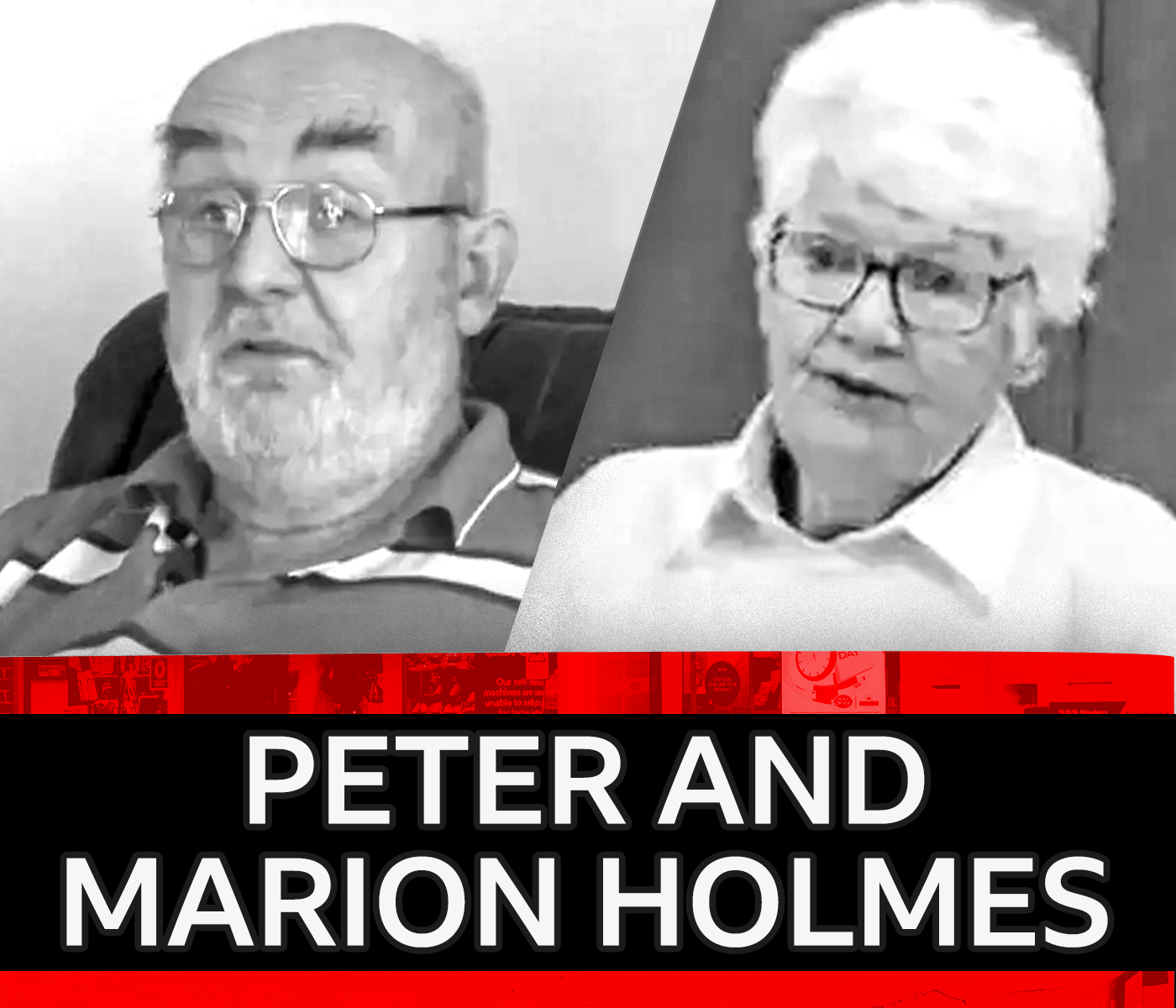
Peter Holmes died from a brain tumour aged 74, in 2015. Six years later, his conviction was overturned at the Court of Appeal.
He is not the only person to have died without justice. Alan Bates estimates 60 or 70 people have died in the intervening years. Some ended their own lives.
Peter’s widow, Marion, who he was married to for 51 years, says her late husband’s reputation was “destroyed” by the Post Office.
Peter had been a manager at a post office in Jesmond, a suburb of Newcastle upon Tyne. He was a former police constable. He had grown up in Jesmond and was based there while in the police. Peter was well-known and highly-respected in the community.
Like the others, he began seeing shortfalls in his Horizon system and used his own money to balance the sums. But the amounts became too large for him to cover.
After the Post Office audited his accounts, Peter was accused of stealing £46,000 and was suspended from work in 2008.
He kept telling Marion not to worry, but she says she “knew something was wrong”. For weeks she would hear Peter being sick as he got ready in the morning. He told Marion he had just been coughing.
While under investigation, he began working as a casual delivery driver for a florist, but quit because he felt he couldn’t tell his new employers he was being prosecuted.
He was convicted in January 2010 and sentenced to a community order with a curfew for three months – lasting from 7pm to 7am every day. The local newspaper ran a story with Peter’s picture on the front page.
“I think that destroyed him more than anything else,” says Marion. “The last person on earth who would have cheated anyone or pinched money was Peter.”
She says he rarely went out after that, even when his curfew ended. He considered volunteering for a charity, transporting cancer patients to hospital, but decided not to after he found out they would carry out a background check.
Following his conviction, Peter learned of the plight of other sub-postmasters.
He contacted Alan Bates and, shortly before his health deteriorated, Peter appealed against his conviction. Before he died, a decision was made to review his case.
In April 2021, Marion travelled to the Royal Courts of Justice in London, with her son to hear her late husband’s conviction being overturned. Like Seema, Peter was one of 39 former postmasters who had their convictions quashed that day.
“It was a funny feeling,” Marion says. “It was really a bit bittersweet.”
“When I meet Peter at the end of that rainbow I want to be able to tell him everybody got the justice they deserved – that’s the good, bad and ugly.”


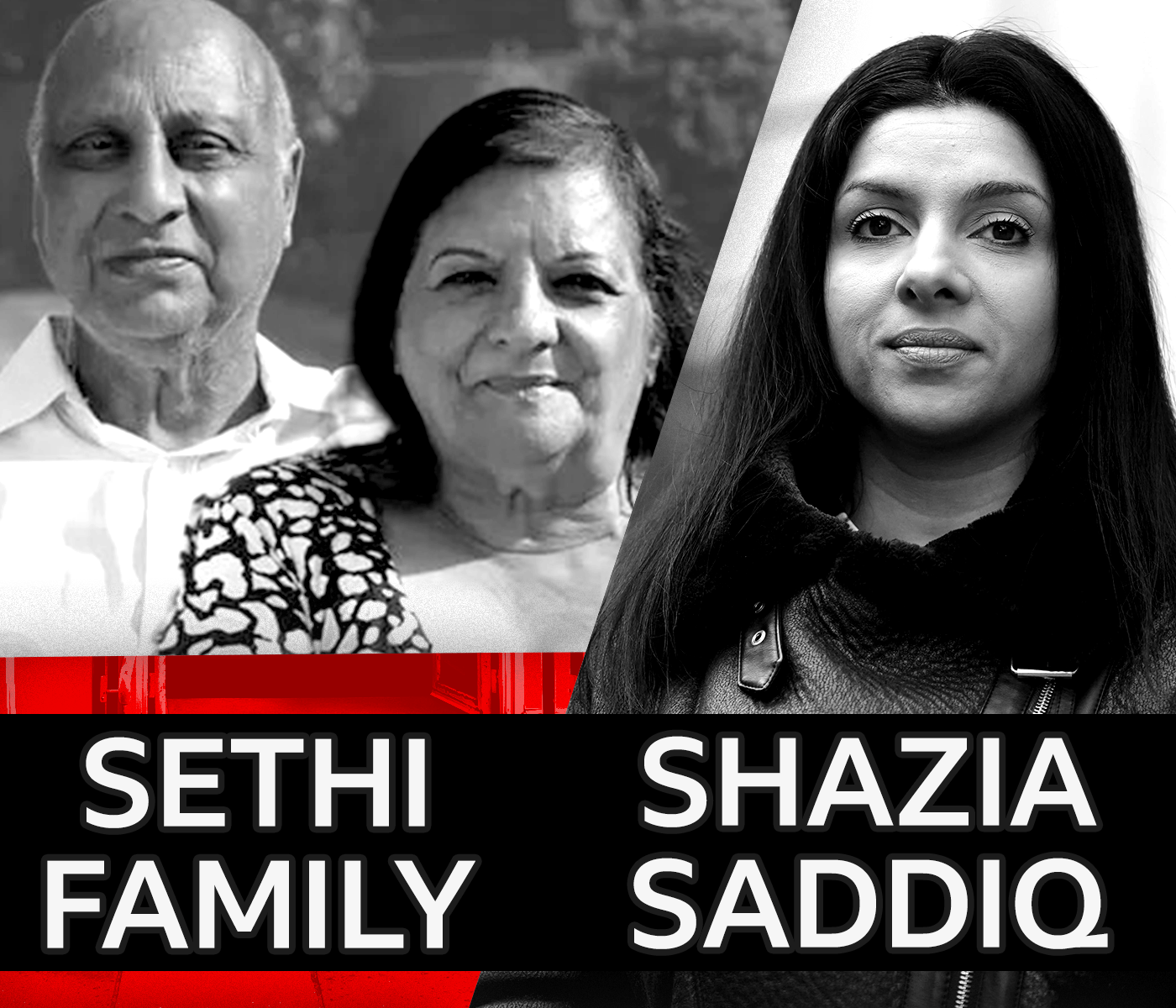
Anjana and Baljit Sethi ran two post offices near Romford, in Essex, where they raised their three children. Anjana had grown up in a post office. Her dad was a sub-postmaster. The family were experienced at their jobs.
With business going well, they were encouraged by the Post Office to take on a second branch. So in 2001, they took out a £120,000 loan to buy and start up the new shop.
But things soon began going wrong. The Horizon computer system began showing shortfalls, which grew to £17,000.
Unable to afford to cover the difference, the Sethis closed the new branch. They were left financially ruined. The couple’s son, Adeep, 38, says family life has been a struggle for his parents ever since.
Although Baljit has given evidence to the ongoing public inquiry, Adeep says his father still finds it hard to talk about what happened to the family.
“There’s a reason I do media – he cannot talk about it without breaking down. He goes straight to anger, straight to emotion, he cannot control it. It has emotionally broken him.”
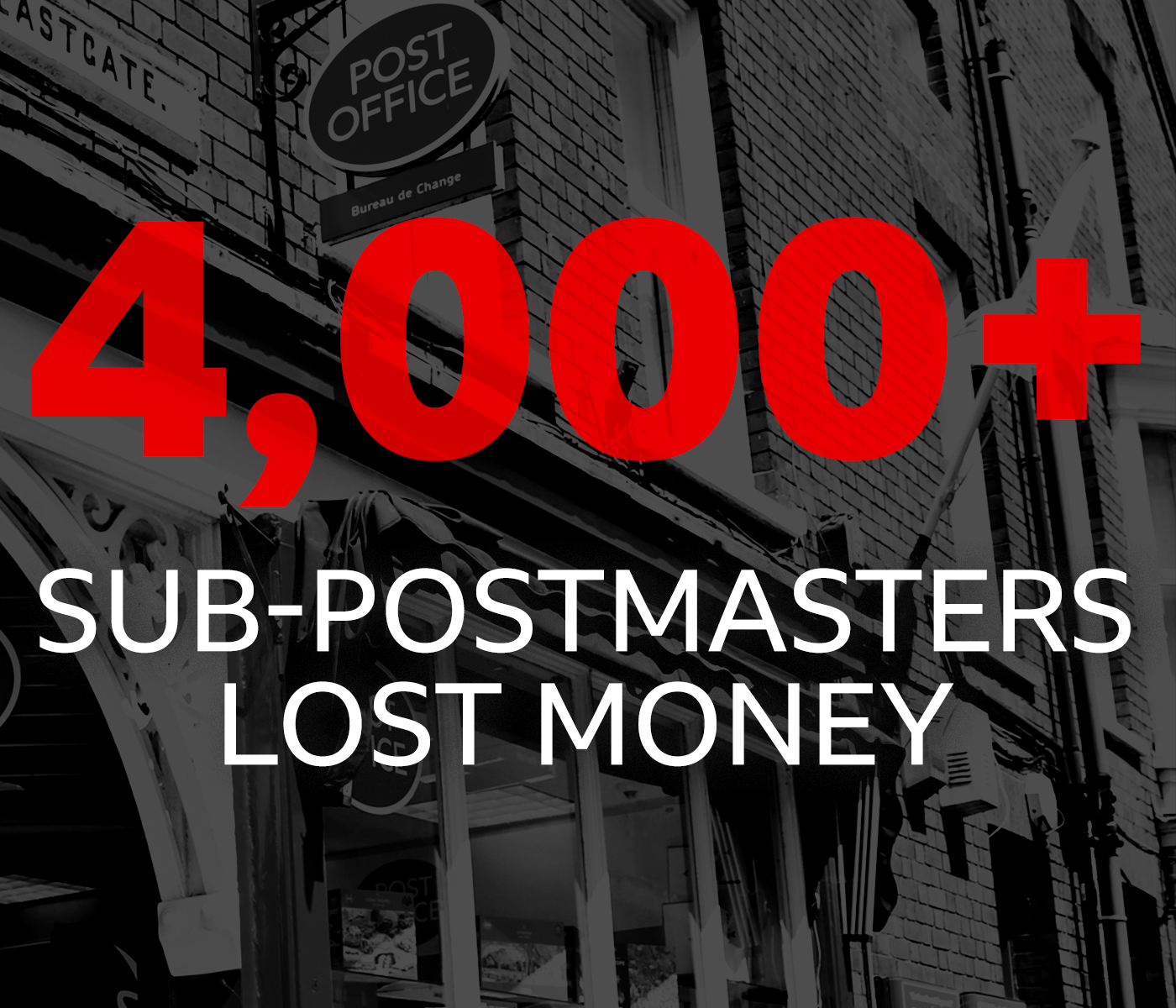
Much like the Sethi family, Shazia Saddiq used to run multiple post offices in her home city of Newcastle. She lived above a shop in Ryton with her two young children.
But in October 2016, she was told around £40,000 was missing from one of her shops. She printed out receipts as long “as toilet rolls” to try to understand what had gone wrong.
The 40-year-old wasn’t eventually prosecuted, but her shops were shut down. And people in the area assumed she was a thief.
One day she had eggs and flour thrown at her in the street while her two children were getting out of a car outside their home. She still wonders who it was.
That night, Shazia decided to pack up her home and leave the area. The family now live in Banbury, in Oxfordshire.
“It’s been awful,” Shazia says. “I have been carrying this forever.”


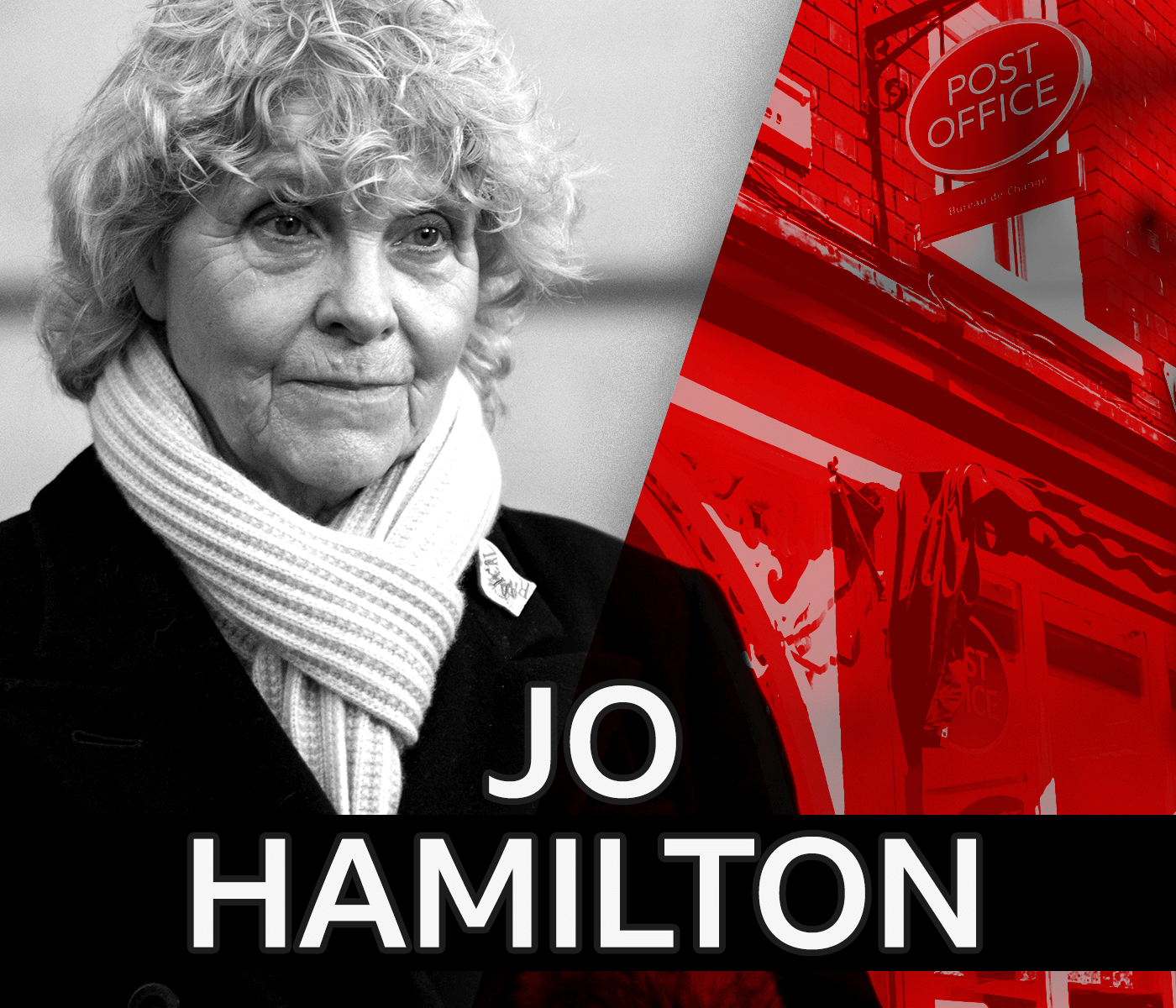
Customers at Jo Hamilton’s post office could buy a slice of cake from the attached cafe before purchasing their stamps. Her story is one of the central themes of the ITV drama.
In one emotional scene, a panic-stricken Jo begins trying to balance the books after a long day. The Horizon software shows losses doubling in front of her eyes, yet her concerns are dismissed by a helpline operator.
Jo demands a visit from the Post Office area manager. She is told she is “the only one having problems”. Jo had to remortgage her home to pay the debts and borrowed from friends in an attempt to cover the amount she thought she owed.
Prosecuted for a shortfall of £36,000 in 2006, she was persuaded to plead guilty to a charge of false accounting. “I felt I had no choice because I was terrified of going to prison,” she says.
Her life was turned upside down. She was forced to give up her shop and found it difficult to get a new job due to her criminal record. She made ends meet by doing cleaning jobs for people in her village who didn’t believe she was guilty.
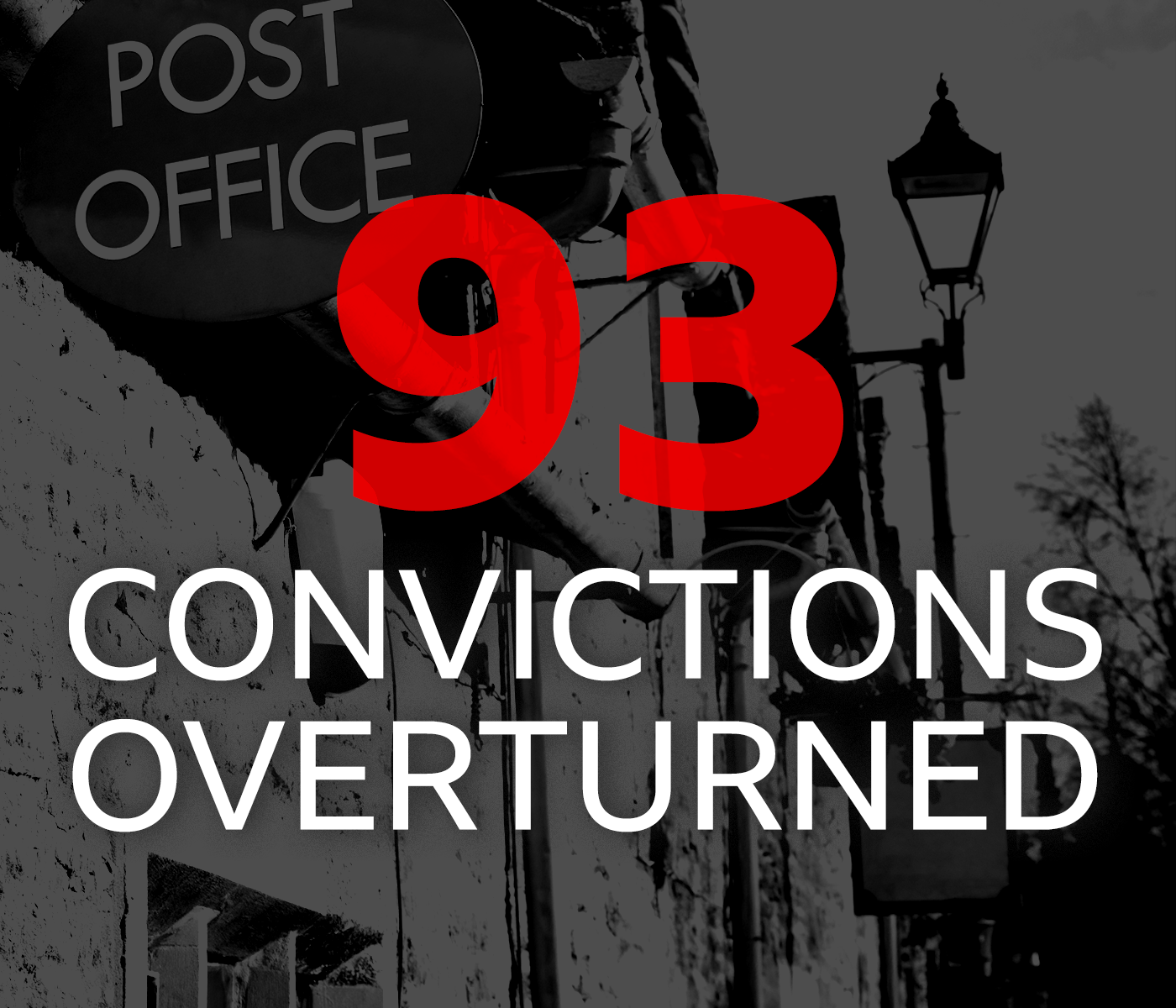
Her conviction was eventually quashed in 2021. She has received some financial redress for her ordeal, describing it as a “good chunk” of money. “My husband was diagnosed with cancer last year and thank goodness we’ve got a little bit of money so that we can pay for his treatment.
“I feel lucky I was criminalised because I’ve had some chance at compensation. It’s just scandalous. A lot of people have lost a whole pile of money – houses, businesses, marriages – the lot.”
But she is still searching for answers. “I would love to find out why this has all happened – how far up the chain does it go? Were people doing what they were told or were they doing it because they were bad? That’s what’s important to me because I still don’t understand it.”
Jo is one of just 30 victims of the scandal who have agreed final settlements – meaning most are yet to receive a penny for the trauma they have been through.

ITV’s drama has thrust the stories of the wronged sub-postmasters and sub-postmistresses into the limelight, most of whom are still waiting for redress.
The Sethi family are still waiting for final compensation after more than 20 years. Adeep says some of the offers from the Post Office have been “insulting”.
He is pleased the issue is back in the spotlight, but says it feels like they are still fighting the Post Office. “Even now you’re treated like you’re not an honest person,” he says.
The Horizon scandal has been in his parents’ lives for 20 years. “All they want is for final compensation and to never think about the Post Office again.”
It is estimated more than 4,000 people have been told they are eligible for compensation across three separate schemes. But how many of those will be able to fully recover the losses they’ve endured?
One thing is certain – the sub-postmasters and postmistresses are no longer alone.
Jo Hamilton says she has now “moved on with my life”. But she is still part of the group battling for justice. “I can’t stop fighting until everyone gets their money,” she says.
“The priority is to get the money that people are actually owed,” says Alan Bates. “Get it out to them as soon as possible. They can’t get on with their lives, or what is left of them.”
“It has gone on for far too long,” he told the inquiry into the scandal this week. “People are suffering, they are dying.”
January 16th 2024
Third World Now

The Guardian · 10 minBritain’s pavement hell: how messy, broken streets ruin people’s lives
Whether it’s cracked paving stones, piles of bin bags or abandoned bikes, the UK’s streets have become increasingly tough to navigate – with some disabled and older people staying indoors as a result.

Al Jazeera English · 10 min‘More mainstream’: In the UK, push for slavery reparations gains momentum
Prime Minister Rishi Sunak has refused to apologise for Britain’s role in the slave trade, but civil society is working harder than ever to remedy historic horrors.

The New York Times · 6 minLoyal to Their Soccer Team, and to Their Burger Van
As Premier League clubs create fan zones to collect yet more money from stadium visitors, a local economy of food trucks, pubs and small restaurants is holding its
January 15th 2024

| The UK emerges as Europe’s soft touch for citizenship The government is now attempting to address soaring migration with measures like increasing the minimum earnings threshold for skilled worker visas and incrementally raising earnings thresholds in respect of family visas. However, recently released data from Eurostat, the EU’s statistics agency, sheds light on why the UK is so attractive to migrants and why immigration is at such record levels. According to Eurostat’s figures, the UK is the eighth easiest nation in Europe and the third easiest in Western Europe for acquiring citizenship. And let’s not forget (the government would like us to) that the revised figures for net migration into the UK reached a record 745,000 for the whole of 2022. Meanwhile, the perilous Channel crossings, though reduced, still remain a significant concern at 29,437 migrants in 2023. Not exactly, taking back control of our borders or reducing immigration, as were promised. Raising earning thresholds, although in pretty limp fashion and from an excessively low base, is heading in the right direction, but there is still a long way to go. The key to getting out of this dangerous situation is to recognise that there is no inconsistency in asserting that some immigration has enriched us culturally and economically, while accepting that there is a strong case for curtailing further large-scale immigration. England, after all, is one of the most densely populated countries in Europe, nearly twice as crowded as Germany and more than three times as densely populated as France. Our population is growing rapidly – an increase of 8 million in 20 years of which 7 million was due to migrants and the children of migrants. This, to our mind, makes a compelling case for safeguarding public infrastructure, social cohesion, and the economy by discouraging significant further immigration. |
| As the Rwanda Bill heads back to the Commons next week, it sets the stage for potential clashes and amendments. This situation puts the government on shaky ground, especially with ‘centrists’ proposing changes that might garner opposition support, in contrast to proposals from Tory right-wingers. Although, Labour have already said they will oppose the Bill. Meanwhile, the Lords will be a key battleground against the Rwanda legislation, highlighting the Tories’ weakness there, given Conservative peers are heavily outnumbered. |
| In a shocking revelation this week, criminal gangs orchestrating the small boats scandal have pocketed nearly half a billion pounds since the Channel crisis began, according to recent figures from the Labour party. Over 114,300 individuals have embarked on the perilous journey since 2018, paying an average of £4,000 per person for each crossing. The magnitude of money generated from this crisis has surged dramatically, skyrocketing from just over £1 million in 2018 when only 299 people attempted the trip. Labour’s analysis of small boat figures shows an estimated £183 million being sent to the coffers of smugglers. However, the actual earnings could be even higher, as the analysis doesn’t factor in cash paid to gangs by migrants returned to France by the country’s coastguard. Last year alone, organised crime reaped an estimated £117,748,000 from nearly 30,000 Channel crossings. Since 2018, Labour calculates that £457,288,000 has flowed into the pockets of people smugglers. Labour’s solution for the small boats’ crisis is to abandon the Rwanda scheme, whether it works or not and to tackle the criminal gangs. This is tantamount to saying they will do nothing new on the boats and committing to doing away with the only scheme that has any chance of discouraging migrants from handing over huge sums to the gangs. It also overlooks the time and effort our agencies, often working with counterparts in other European states, are devoting to tackling the gangs. As for their suggestion of opening embassies to applications for asylum visas; as we have said before, this is a recipe for chaos. Such embassies would be quickly overwhelmed. Moreover, the flow of illegal Channel crossings would very likely increase as a result. |
| Migration Watch relies entirely on the generosity of our supporters who fund our work. If you would like to help us with our efforts, please click here to donate. |
| Phillip Ullman, the Telegraph – Immigration is destroying the British economy ‘We now have 20 years of evidence generated by this grand experiment, testing the idea that immigration drives growth. The results are clear: immigration is dangerously harming our economy. And I should know. If there was a list of the all-time biggest employers of immigrant workers in this country, the chances are that I’d be near the top of it.’ We also liked: Tom Jones, The Critic – Against immigrationnisme Ben Sixsmith, The Critic – From Asmara to Camberwell |
| MIGRATION WATCH IN THE MEDIA |
| This week, Migration Watch Chair Alp Mehmet has been quoted in The Sun in an article exposing a troubling revelation: almost 4,000 migrants have been caught pretending to be children to sneak into Britain, with some individuals in their thirties: “A report by Migration Watch found at least 52 in 2022 claiming to be kids were over the age of 30. Of the overall tricksters, 1,361 were from Afghanistan, 612 from Iran and 550 from Sudan. Migration Watch chairman Alp Mehmet said: “That so many still go for this ruse, even when they obviously look much older, tells me it’s a deception that often works.” Alp was also quoted in The Express in an article on criminal gangs making £500 million out of the small boats crisis: ‘Alp Mehmet, of campaign group Migration Watch, warned Labour against abandoning the Rwanda scheme if it wants to break the criminal gangs. He said: “Labour are deluding themselves if they think they will stop the boats by abandoning the Rwanda scheme, going after the criminals and keeping the asylum queue down. This approach is more likely to increase the illegal crossings.”’ |
| MAKE YOUR VOICE HEARD |
| After years of pledging to regain control, the Tories intentionally relinquished it, paving the way for Britain’s mass immigration crisis through post-Brexit open borders policies. The result: an unprecedented influx into this already crowded country. If the government’s unfulfilled promises leave you as frustrated as we are, we encourage you to express your concerns by writing to your Member of Parliament. |
| We wouldn’t be able to continue this work without the help of our supporters. If you would like to donate, please click the button below. Our supporters are all as concerned about the future of our country as we are. Some have been kind enough to remember us in their will. If you wish to consider leaving a bequest to Migration Watch UK, or wish to discuss anything else, do please get in touch. Our email is: admin@migrationwatchuk.org |
January 14th 2024
UK will back words with actions against Houthis in Yemen – Cameron
https://emp.bbc.co.uk/emp/SMPj/2.51.0/iframe.htmlMedia caption,
Watch: Lord Cameron says Houthis have escalated tensions in Middle East
By James Gregory & Adam Durbin
BBC News
Foreign Secretary David Cameron said the UK is “prepared to back our words with actions” against the Houthis, after taking military action in Yemen over their attacks in the Red Sea.
Lord Cameron told the BBC the US-UK air strikes were needed after months of attacks on shipping, despite warnings.
Sir Keir Starmer said he had backed the operation as “action had to be taken”.
But the Labour leader said he would consider whether to support further action “on its merit”.
Looking at the global security situation on the BBC’s Sunday with Laura Kuenssberg programme, Lord Cameron cautioned it is “hard to remember a more unstable, dangerous and uncertain world”.
He said the “red lights on the global dashboard are very much flashing”, given ongoing wars in Ukraine, the Middle East and Africa.
Lord Cameron said the UK had given the Houthis, who are key allies of Hamas, “warning after warning” before joining US-led strikes, which were launched to protect global shipping.
The Houthis are a political and military group which control a large part of Yemen, including the capital. They are backed by Iran, Israel’s arch-enemy and claim they target any ship travelling to, or owned by, Israel.
They have carried out at least 27 attacks since 19 November, according to the US, and have launched a series of drones and missiles towards Israel.
The group’s attacks on cargo ships – some of which have no clear connection to Israel – have led major shipping companies to divert vessels away from the Red Sea, instead taking a longer route around southern Africa.
Confirming there would be a statement in Parliament about the strikes on Monday, Lord Cameron said a political debate before this kind of military action would not have been right “for reasons of operational security”.
Asked if the attacks represented an escalation of the Israel-Gaza conflict, he denied this and told the BBC the Houthis were responsible for escalating their attacks on shipping in the vital sea lane since mid-November and the joint UK-US strikes were a “last resort”.
He said: “The strikes themselves were limited, proportionate, targeted, legal, but they were also necessary.”
- Starmer denies backtracking on military action vote
- Yemen strikes show war in Gaza has already spread
- What we know: Strikes on Houthis and strategy behind them
- Strikes on Houthis in Yemen self-defence, says PM
- Who are the Houthis attacking Red Sea ships?
Sir Keir told the programme he backed the UK military operation so far as “action had to be taken” to protect shipping in the Red Sea and that “sitting back and simply doing nothing” over the threat to global trade was not appropriate.
But he also said Labour would need to consider the arguments if the UK plans further attacks in Yemen and he would expect to be briefed by the government.
Asked if he had changed his position on whether the government has to give MPs a say on UK military action, Sir Keir denied this and said a vote was only needed when “deploying troops”.
https://emp.bbc.co.uk/emp/SMPj/2.51.0/iframe.htmlMedia caption,
Keir Starmer says he backs strikes to stop Houthi attacks
Prime Minister Rishi Sunak has been criticised by some opposition parties for not consulting Parliament in advance of the strikes, though the government does not have to do this.
The Lib Dems and Plaid Cymru have said it is wrong that parliament was bypassed and the SNP’s Westminster leader Stephen Flynn said the decision to launch air strikes against the Houthis without consulting MPs was “farcical“.
The Houthis have said there was “absolutely no justification” for the attacks and that the group would continue to target Israeli ships, noting the air strikes have not affected their ability to do so.
On Sunday, prominent Houthi supporter Hussain Al-Bukhaiti told Laura Kuenssberg the group “only target Israeli-linked ships” or those heading towards ports there, because they have declared war on Israel.
Asked about attacks on unrelated ships, he questioned what international law was doing to protect civilians in Gaza from Israel’s “mass-bombing” campaign.
On how the Houthis would respond to the air strikes, he said if attacks continue fighters could target US and UK battleships using “hundreds of drones and cruise missiles”.
Houthis control north Yemen, capital Sanaa and the Red Sea coastline. The armed group declares themselves to be part of the Iranian-led “axis of resistance” against Israel, the US and wider West.

Lord Cameron and Sir Keir were asked about the deaths of five people trying to cross the English Channel overnight.
He said said it was “heartbreaking” to hear more people had died, “but it just shows we’ve got to stop the boats, we’ve got to stop this illegal trade in human beings.”
The former PM said breaking the business model of people smugglers is why the government is pursuing the deal with Rwanda to send some asylum seekers to east Africa on a one-way ticket. Sir Keir called the deaths a “tragic loss of life” adding that “we need to smash those gangs”. Rejecting the “gimmick” of the Rwanda scheme, he talked about the prosecution of gangs as Director of Public Prosecutions.
“Having seen this done for terrorist gangs, with guns and with drugs I refuse to believe we can’t do anything about it,” he said.
Lord Cameron was also asked about his private lobbying of ministers to try to secure an emergency pandemic loan scheme for disgraced financier Lex Greensill.
The former prime minister denied being paid £10 million to work on behalf of Greensill Capital, following his resignation as PM in 2016.
After refusing to tell Laura Kuenssberg how much he was paid, he said: “I was a private citizen, I had a number of different interests, the things I did, including important charitable work and I think as a private citizen you’re entitled to do that.”
Related Topics
January 13th 2024
Ex-civil servant labelled ‘propagandist for Russia’ loses sanctions legal fight
Graham Phillips was made the subject of an ‘asset freeze’ by the UK Government in July 2022.
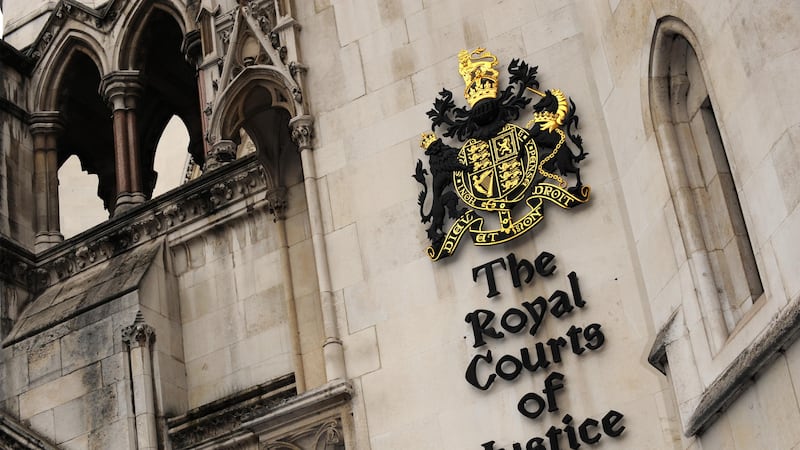
ByTom Pilgrim, PAJanuary 12, 2024 at 11:55AM GMT
A British former civil servant described as a “propagandist for Russia” has lost a High Court bid to overturn financial sanctions imposed on him by the UK Government.
Graham Phillips, who is living in Ukraine, was made the subject of an “asset freeze” in July 2022 for supporting the country’s invasion by Russia and producing videos which “glorified” the conflict, a judge was told.
He took legal action against the Foreign, Commonwealth and Development Office, arguing that the decision to sanction him should be quashed.
Lawyers for Mr Phillips argued at a hearing in London last month that he was unable to return to the UK and access any of his funds, making him “effectively excommunicated from the British economy”.
Thousands join seventh national march for Palestine in London
First migrants crossing the English Channel in 2024 arrive in Dover
His legal team claimed that ministers had not accused Mr Phillips of any crime, of being part of “Russian State apparatus”, of “advancing the Russian war effort” in Ukraine, or of supporting the Russian economy.
Instead, they argued the “grossly disproportionate” sanction decision “stems entirely from political opinions expressed on YouTube and social media to a primarily UK domestic audience”.
The Government opposed the ex-civil servant’s legal challenge and said he was sanctioned for “supporting the Russian war” by producing and publishing “propagandist video content which glorifies the Russian invasion of Ukraine and its atrocities, and promotes disinformation advanced by Russia as a justification for the invasion”.
In a ruling on Friday, Mr Justice Johnson concluded that the sanctions were lawful and a “proportionate” interference with Mr Phillips’s human rights alongside “the legitimate aim of protecting the UK’s national security”.
The judge said Mr Phillips “decided to set his face against an overwhelming international consensus, to align himself with Russia’s invasion of Ukraine, to travel to the frontline, and to help Russia fight its propaganda war”.
He added: “He has not shown any journalistic responsibility or ethics. His actions directly support Russia in its policies or actions that destabilise Ukraine.
“There are good reasons to take a firm stand against that conduct so as to pursue the purpose of the (Russia sanctions regulations) and seek to encourage Russia to change its course.”
A different judge, Mr Justice Swift, had originally presided over the case in November, but later ordered that it be re-heard by another judge.
Joshua Hitchens, representing Mr Phillips, said in written arguments for the new December hearing that the former civil servant was the “first mono-British national” to be sanctioned by the British Government.
He said the sanctions were an “unlawful violation” of Mr Phillips’s rights and an “effective exclusion” of him from the UK.
The barrister said they had “a wholly disproportionate effect on his family life, his ability to build and maintain relationships, and his ability to spend time with his elderly parents”.
Mr Hitchens said it was the first example since the Civil War “of the executive asserting a right to deprive someone of all of their possessions in response to lawful political speech”.
He claimed that such a power “would have a profound effect on the nature of our democracy, on the relationship between the citizen and the state and the protection which the law affords the ‘lifeblood of our democracy’, freedom of expression”.
But Maya Lester KC, for the Government, said in written arguments that it was “incorrect” that Mr Phillips had been “deprived of his possessions and of the capacity to meet his basic needs and excluded from the UK”.
She said he retained his British citizenship and right to live in the UK, and that he could apply for licenses to spend money on his basic needs but had declined to do so.
Arrogant British
“I hope that our eternal enemies – the arrogant British – understand that deploying an official military contingent to Ukraine would be a declaration of war against our country,” Medvedev wrote on the Telegram messaging app.
Medvedev, whose frequent and harsh public statements diplomats say give an indication of hawkish thinking at the top of the Kremlin, also asked how the Western public would feel if Sunak’s delegation came under fire from cluster munitions in the centre of Kyiv, something he said had recently happened to Russian civilians in the city of Belgorod.
“I hope that our eternal enemies – the arrogant British – understand that deploying an official military contingent to Ukraine would be a declaration of war against our country,” Medvedev wrote on the Telegram messaging app.
A senior ally of President Vladimir Putin warned on Thursday that any Ukrainian attacks on missile launch sites inside Russia with arms supplied by the United States and its allies would risk a nuclear response from Moscow.
Comment Since the U.K is not officially at war with Russia, this is an alarming action ,making a mockery of the media and authorities forever reminding us that this country is a democracy where freedom of speech is foremost in our value system. There are ever expanding deepening laws controling our thoughts, speech, action and interaction according to weath and politically correct interest groups. The U.K is leading NATO training exercises and preparations for a wider conflict. This is why electioneering Sunak has increased weapons aid by £2.2 billion to Ukraine, telling heroic Zelensky that the U.K is in the war for the long run. The Opposition Labour Party agrees with him. It is a short step from banning any contradiction of goverment and other approved parties aims, favoured groups and policies. This is totalitarianism.
Ever since the 1917 revolution, Russian Communism has been used as a tool to terrify the western masses into accepting that they should be grateful not to live in Russia – and so put up with what their elites offer as a lesser of evils. That mentality brought us World War Two, a hideous sickeningly glamourised enterprise that only psychopaths and other delusionals could possibly have enjoyed. Now our upper class power crazed masters are bringing us World War Three.
R J Cook
January 12th 2024
What the Dickens ?

Alfie Phillips murder: Life sentence for mum and partner who killed toddler
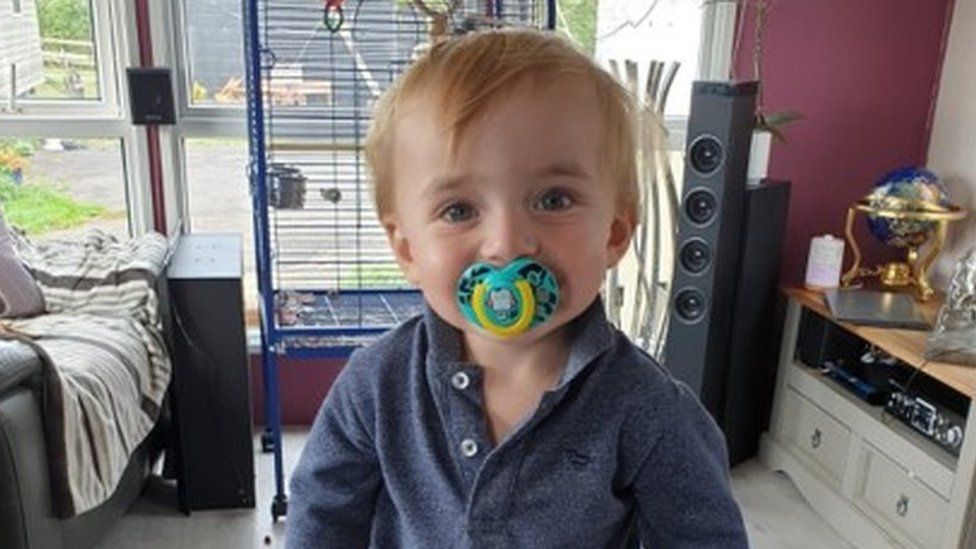
By Christian Fuller
BBC News, South East
A mother and her former partner have been given life sentences for the murder of her 18-month-old son during “a lengthy night of violence”.
Alfie Phillips died on 28 November 2020 with more than 70 visible wounds and traces of cocaine in his body.
Sian Hedges, 27, and Jack Benham, 35, had denied murdering the toddler.
At Maidstone Crown Court, Hedges was sentenced to a minimum term of 19 years, while Benham was handed a minimum term of 23 years.
Justice Cavanagh said in his sentencing remarks that Alfie had been the victim of a “frenzied attack” in which he suffered about 50 injuries on the night of his death.
He said to Hedges: “You were Alfie’s mother and he deserved your protection.”
Sam Phillips, Alfie’s father, described him as “good as gold” and “lively”, adding he had been “robbed of the opportunity to see him grown up”.
“The funeral was one of the hardest days of my lives. The images of his tiny coffin will stay with me forever,” he said.
Hedges, of Yelverton, Devon, and Benham, killed Alfie overnight during lockdown in Benham’s caravan in Hernhill, near Faversham.
During the nine-week trial, which ended on 30 November 2023, the prosecution said both defendants were complicit in the assaults that took place.

Alfie died with injuries including fractures to his ribs, arms and leg, signs of smothering to his lips and mouth, and traces of cocaine in his body.
The court heard that on the night before Alfie died, Hedges went to buy drugs from their friend and repay her £400 debt, and also get mixers and drinks for their evening together in the caravan.
Benham told police he bit Alfie on his back and shook him the morning he found him unresponsive in an attempt to rouse him, the jury heard.
The pair met in September 2020 at a mutual friend’s house, where they would buy drugs.
During the trial, Hedges told her barrister that when she heard Alfie had died “I rang my mum and was screaming down the phone to her that Jack had murdered my son”.
She said she had not beaten Alfie deliberately, had not seen Mr Benham do so and would not have covered for her former partner.
Asked if she had seen Mr Benham murder Alfie, she replied: “No.”
https://emp.bbc.co.uk/emp/SMPj/2.51.0/iframe.htmlMedia caption,
Sian Hedges and Jack Benham were found guilty of murdering 18-month-old Alfie Phillips
Mark Demain, Alfie’s grandfather, said the toddler “completed our lives”.
“We have never experience pain like this. I would describe it as if the light in our souls have gone out,” he said.
“Our best friend, our grandson was so cruelly taken from us. Every day we are hurting.”

Jurors previously heard about older injuries Alfie sustained in the months prior to his death and their explanations for them, such as a cut under his eye from playing with keys and his fingers being caught in the dog gate in Benham’s parents’ home.
One incident was described in which Hedges described finding blood on the carpet, a cushion and a tissue, but was told Alfie had fallen and hit his mouth on the oil heater.
Benham had described how he held Alfie above him but he slipped out of his hands and hit his nose on Benham’s teeth, the court heard. Ms Hedges said she was not there and was unaware it had happened.
https://emp.bbc.co.uk/emp/SMPj/2.51.0/iframe.htmlMedia caption,
The judge, Mr Justice Cavanagh, said the ‘frenzied attack’ on Alfie Phillips must have lasted a ‘considerable time’
When the pair were found guilty, Det Ch Insp Kathleen Way, of Kent Police, said the verdict would “not bring Alfie back”, but would mean that “Hedges and Benham lose their right to freedom and life as they know it”.
“Alfie should have been protected and loved by his mum, instead Hedges and Benham inflicted unimaginable suffering on him during a sustained and lengthy night of violence,” she added.
Following the sentencing, Det Ch Insp Way said Hedges and Benham inflicted “unimaginable suffering”.
She said: “He should have been protected and loved by his mother, but instead lost his life in appalling circumstances.”

Post Office lied and threatened BBC over Horizon whistleblower
By Andrew Head and Tim Robinson
Panorama for BBC News
The Post Office threatened and lied to the BBC in a failed effort to suppress key evidence that helped clear postmasters in the Horizon scandal.
Senior managers tried to smear postmasters before Panorama broadcast an interview in 2015 with a Fujitsu whistleblower.
Former insider Richard Roll revealed accounts on the Horizon computer system could be secretly altered.
The Post Office declined to comment while the public inquiry is ongoing.
Mr Roll would go on to play a crucial part in a 2019 High Court case which ruled that bugs could cause errors in the Post Office computer system intended to keep track of transactions in local branches.
Between 1999 and 2015, 700 sub-postmasters and postmistresses – self-employed people who run Post Office branches – were prosecuted for offences such as theft, fraud and false accounting, with some going to prison and others even taking their own lives.
The BBC can reveal that in the period leading up to the broadcast of Trouble at the Post Office, the 2015 Panorama programme featuring the whistleblower testimony:
- Experts interviewed by the BBC were sent intimidating letters by Post Office lawyers about their participation in the programme
- Senior Post Office managers briefed the BBC that neither their staff nor Fujitsu – the company which built and maintained the Horizon system – could remotely access sub-postmasters’ accounts, even though Post Office directors had been warned four years earlier that such remote access was possible
- Lawyers for the Post Office sent letters threatening to sue Panorama and the company’s public relations boss Mark Davies escalated complaints to ever more senior BBC managers
The Post Office’s false claims did not stop the programme, but they did cause the BBC to delay the broadcast by several weeks.
Documents submitted to the ongoing public inquiry reveal how that small victory was celebrated by Post Office senior management. Then-chief executive Paula Vennells congratulated Mark Davies and his PR team on their “extensive work”.
This was just the latest in a long line of lobbying, misinformation and outright lies that had faced a small number of BBC journalists trying to uncover the truth about the Post Office scandal.
It began in 2011, when then-BBC regional reporter Nick Wallis first interviewed Jo Hamilton, played by Monica Dolan in the ITV drama Mr Bates v The Post Office. She told him how the Horizon computer system had made money seem to vanish from the tills at her branch in Hampshire.

The Post Office said there was “no evidence pointing to any fault in the technology”.
By 2014, Nick Wallis and producer Tim Robinson were investigating new claims – for BBC regional investigative programme Inside Out – that staff at Fujitsu were able to remotely tamper with Horizon accounts.
They interviewed sub-postmaster Michael Rudkin, played by Shaun Dooley in the TV drama, who said he had seen Fujitsu staff tampering with accounts on a visit to the company’s head office
The Post Office told the BBC journalists at the time there was “no functionality in Horizon for either a branch, Post Office or Fujitsu to edit, manipulate or remove transaction data” and that it had found “no evidence” to suggest that convictions were unsafe.
We now know that 18 months before this statement, a barrister had warned senior Post Office managers a number of prosecutions might be unsafe because of bugs in the system that had not been disclosed in court cases against the sub-postmasters.
Rather than admit the truth, the Post Office continued to spread misinformation.
And minutes of a Post Office meeting later uncovered in court show its PR boss Mark Davies directly lobbied senior BBC management to try to stop further negative coverage of the story.
“While we are able to withstand this current level of interest, it is resource intensive. We have made representations to the director of BBC News and Current Affairs,” Mr Davies told colleagues.
The Post Office cover-up was holding, but Alan Bates – the hero of the ITV drama – had another card to play.
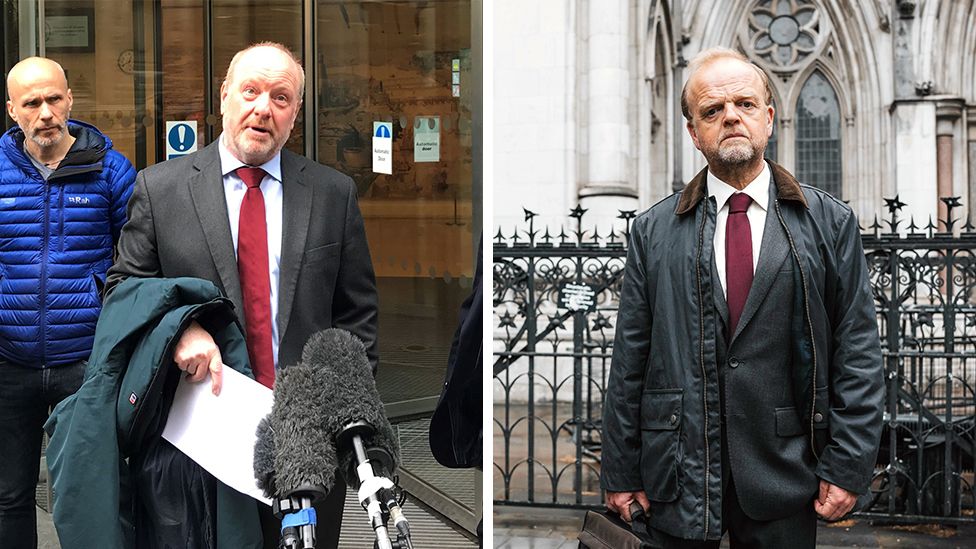
At a meeting in a garden centre tea room in Shrewsbury, he told Nick Wallis he had been contacted by a whistleblower from Fujitsu – who knew the truth about Horizon and remote access.
That man was Richard Roll, who had worked for Fujitsu on the Post Office’s Horizon computer system in the early 2000s.
Mr Bates wanted Panorama to take on the story, so Nick introduced the whistleblower to the programme team.
For the 2015 programme, he told Panorama reporter John Sweeney on camera how a team of Fujitsu staff had remote access to branch accounts and could make changes to them without the sub-postmasters’ knowledge.
It was explosive testimony that could call into question the convictions of more than 700 sub-postmasters prosecuted on the basis of Horizon evidence, as the denial of the possibility of remote access underpinned the Post Office’s legal position.
The Post Office was going to fight hard to stop the story from coming out – its misinformation campaign ramped up a gear.
‘Enormous regret’
Panorama journalists Matt Bardo and Tim Robinson were invited to Post Office HQ for an on-the-record briefing about the Horizon system.
Network manager Angela van den Bogerd joined PR boss Mark Davies and another senior manager, Patrick Bourke.
Ms van den Bogerd insisted nobody could change the sub-postmasters’ accounts without their knowledge.
She said any alterations “would leave a footprint. And that’s the important bit.”
Matt Bardo asked: “So in sum, it is not now and never has been possible for anybody from Post Office or Fujitsu to interfere with transactions, without the clear knowledge of the sub-postmaster?”
Mr Bourke said: “It is 100% true to say we can’t change, alter, modify, existing transaction data, so the integrity is 100% preserved.”
“And that’s true now and has been for the duration of the system?” Mr Bardo asked. “Yeah,” said Ms van den Bogerd.
That wasn’t true. Not then, and not for the duration of the system.
Since then, the Post Office has been forced to accept that Fujitsu staff could access and change accounts without the sub-postmasters’ knowledge.
One of the Post Office’s lawyers suggested in 2019 that Angela van den Bogerd and her colleagues had denied remote access was possible because they did not know at the time. He told the High Court: “It is a matter of enormous regret that the senior managers who dealt with Panorama were not aware that remote access to Horizon was possible.”
But documents Panorama obtained for a follow-up programme in 2020 show the Post Office had known it was possible for years.

A report by consultants Ernst and Young sent to Post Office directors in 2011 warned that Fujitsu staff had “unrestricted access” to sub-postmasters’ accounts, that “may lead to the processing of unauthorised or erroneous transactions”.
The misleading on-the-record briefing was just the first step in the Post Office’s onslaught to frustrate the 2015 Panorama investigation.
When it learned the names of experts Panorama was interviewing, lawyers and senior managers sent them intimidating letters.
Ian Henderson, from the independent forensic accountants Second Sight, had uncovered other evidence of miscarriages of justice at the Post Office. He was warned he did not have the legal expertise to comment on prosecutions and the Post Office threatened to sue him.
“If your statements go as far as to harm Post Office’s reputation then we may have to take even more serious action in order to protect our brand,” he was told. “For the avoidance of doubt, Post Office does not condone you speaking to Panorama and all our legal rights are fully reserved.”
To protect the whistleblower from similar correspondence, the Panorama team did not tell the Post Office Richard Roll’s name. Instead, the journalists said they had spoken to a Fujitsu insider, and outlined the allegations he was making.
Smears and false claims
From the Post Office’s response, it was clear that the whistleblower’s evidence which would be featured in the film was of particular concern.
PR boss Mark Davies fired off complaints to ever more senior managers at the BBC, and expensive external lawyers were hired with public money to send letters threatening to sue Panorama.
The programme team received hundreds of pages of correspondence and reports from the Post Office and their lawyers – but none of the paperwork admitted remote access was possible.
At the time, Mr Davies told Panorama “there is overwhelming evidence that the losses complained of were caused by user actions, including deliberate dishonest conduct”.
The Post Office’s lobbying did secure them a further meeting, this time an off-the-record briefing with the programme’s then-editor. Such meetings are viewed with suspicion by many investigative journalists as they can be used as a tactic to hamper inquiries and publication.
So it proved in this case. The Post Office took the opportunity to smear some of the sub-postmasters Panorama was planning to feature in its programme, hinting at potential motives to steal from the tills.
In one case, it falsely claimed it had documents showing a postmaster was guilty of theft. But it said it would only show them to the programme team if they promised not to share them with anyone else – which meant Panorama would not even be able to discuss them with the postmaster who had been accused.
Panorama refused. The team reviewed all the available evidence, which delayed the broadcast. But nothing was found that cast doubt on the sub-postmasters’ stories and the film aired in August 2015.
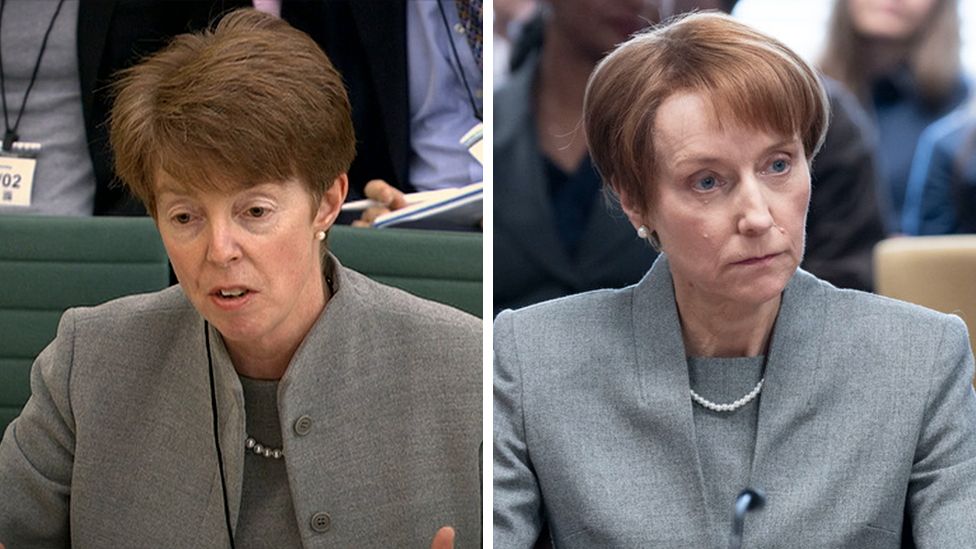
It can often be a struggle to get a Panorama to air. It’s not unusual for big companies and wealthy individuals to mount intensive legal and lobbying efforts to protect their reputations. But for the programme team, this was a battle like few others – and it was a government-owned institution that was waging the war.
The Post Office had failed to stop Richard Roll’s story being told, but it still sought to reduce its impact.
After the programme aired, the Post Office immediately published a statement on its website that said it would be complaining to the BBC about the “unsubstantiated allegations that continue to be made”.
Richard Roll’s allegations were not picked up by the rest of the media and his testimony did not spark the national outrage that has followed ITV’s drama.
Post Office CEO Paula Vennells reported back to the government body which owns the Post Office that “the programme contained no new information and received almost no pick-up from other media”. Mrs Vennells made no mention of the new information provided by the whistleblower.
But all was not lost.

Panorama from 2015 – Trouble at the Post Office
The Post Office has prosecuted dozens of postmasters after their computers showed that money had gone missing. Reporter John Sweeney meets a whistleblower who says there were problems with the computer system. And he investigates claims that the Post Office charged some postmasters with theft even when the evidence didn’t stack up.
Watch now on BBC iPlayer (UK Only)

The programme had an impact on one important viewer, which would prove to be a pivotal moment in the story.
Lawyer Patrick Green KC immediately realised the significance of Richard Roll’s testimony.
The barrister went on to lead the postmasters’ legal case that showed Horizon could be to blame for unexpected shortfalls.
Panorama’s whistleblower appeared as a witness at the High Court in March 2019 and his account played a key part in discrediting the Post Office’s insistence that remote access to the branch accounts was not possible.
Mr Green later told Panorama how important the 2015 programme had been to their victory.
He said: “I’m not sure that this litigation would’ve happened as it did had Panorama not made that programme.”
The postmasters’ victory over the Post Office at the High Court was the turning of the legal tide and led to the overturning of convictions at the Court of Appeal.
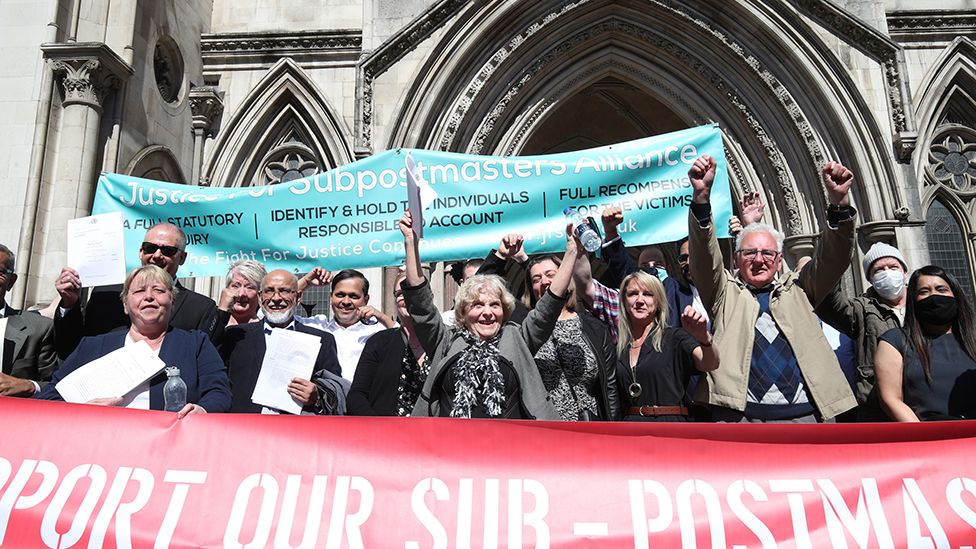
Lawyers for Mark Davies told Panorama he had acted at all times entirely in good faith and that his statements had been based on the information he was given at the time.
“Our client was doing his job… to ensure that any coverage of this matter was fair and accurate,” they said.
And Paula Vennells now says: “I am truly sorry for the devastation caused to the sub-postmasters and their families, whose lives were torn apart by being wrongly accused and wrongly prosecuted as a result of the Horizon system.”
But for years, the Post Office tried to suppress crucial evidence.
The Post Office knew in 2015 that there were bugs and errors in Horizon. It knew that remote access was possible. And it knew some of its convictions were unsafe.
The evidence in Panorama’s 2015 film was there for the government to see too.
But it took several trials, more than 90 overturned convictions and a TV drama for the Post Office scandal to get the attention it has long deserved.
Tony Blair was warned Horizon IT system could be flawed, documents show
Related Topics

By Helen Catt
Political correspondent
Sir Tony Blair was warned the Horizon IT system at the centre of the Post Office scandal could be flawed before it was rolled out, a document shows.
A handwritten note from the then-Labour PM, published by the public inquiry on Friday, suggests he raised concerns after being warned the system was “possibly unreliable”.
But he said he gave it the go-ahead after being reassured by others.
Among them was Peter Mandelson, who was then his trade and industry secretary.
In a letter dated 10 December 1998, Lord Mandelson said he believed the “only sensible choice” was to proceed with Horizon.
He warned that cancelling the contract would cause “political fallout” from post office closures and damage relations with Fujitsu, which he described as a major investor in the UK.
The letter, and the submission to Sir Tony, were both previously shown in hearings at the inquiry, which was launched in 2021, but have now been published in full.
There was no indication at this stage that the Horizon software would lead to wrongful accusations of theft but there were concerns about its reliability and ballooning cost.
In 1998 Horizon was being developed by a firm called ICL, owned by Fujitsu, as a way of paying welfare benefits through Post Office counters using a swipe card.
Ultimately this element of the project was dropped and the system was rolled out in 1999 for tasks like accounting and stocktaking instead.
More than 900 workers were prosecuted after the faulty software wrongly made it look like money was missing.
- Why were hundreds of Post Office workers prosecuted?
- Fujitsu won Foreign Office contract despite concerns
The Horizon project, which was launched under John Major’s Conservative government, was running more than two years behind schedule by 1998.
The project was referred up to Sir Tony to decide if it should continue.
‘Hugely expensive’
A submission sent to the then-prime minister on 9 December 1998 by a special adviser at Downing Street, Geoff Mulgan, described the system as “increasingly flawed”.
Mr Mulgan warned that “in the long-run” it would “prove unsatisfactory” and described it as “hugely expensive, inflexible, inappropriate and possibly unreliable”.
Mr Blair jotted a handwritten note on the document that asked for a “clear view” on its reliability.
On 14 December 1998, his private secretary Sir Jeremy Heywood wrote to Mr Mulgan to say that the prime minister’s “clear preference would be to avoid cancelling the project”.
Witness statements given by other former Labour ministers, including Alistair Darling and Stephen Byers, previously set out how the government came up with a number of options to save the ailing scheme.
In his own witness statement, given to the inquiry in 2022, Sir Tony pointed to a letter from Lord Mandelson written on 10 December 1998 as an example of the reassurance he had received.
In the letter, Lord Mandelson said “the basic development work has been thoroughly evaluated by independent experts who have pronounced it viable, robust and of a design which should accommodate future technological developments”.
‘Naturally concerned’
No former minister has said in their evidence to the inquiry that they knew of specific problems which led to sub-postmasters being wrongly accused of theft.
Lord Mandelson’s letter also warned that if the government cancelled the contract “our relations with Fujitsu, a major inward investor into the UK over the past decade, would be severely damaged, as would the credibility” of Private Finance Initiatives or PFIs – then a new method of funding major projects.
In September 1998, Fujitsu announced it was closing a semiconductor plant in Sir Tony’s Sedgefield constituency in County Durham, with the loss of 600 jobs.
In his witness statement, Sir Tony said he was “naturally concerned” about the impact of the closure and it was mentioned by him in passing in a letter to the chairman of Fujitsu. However, he said he did not recall this being relevant to the matters being considered by the inquiry.
Lord Mandelson’s letter, which was sent to the then Chief Secretary to the Treasury Stephen Byers and copied to the prime minister, also reflected concerns the system was vital for generating the footfall needed to keep post offices open.
He wrote that “the damage to the confidence of sub-postmasters and the knock-on effect of network closures”, which he said would come from cancelling Horizon, “will produce political fallout, no matter how carefully we try to handle it”.
Lord Mandelson’s office has been approached for comment.
A spokesperson for Sir Tony said: “As the documents show, and make completely clear, Mr Blair took the issue very seriously. His response to the Mulgan note, and in other interactions, was to raise the issue of the viability and reliability of the end project as this was his overarching concern. He subsequently received these reassurances.
“It is now clear that the Horizon product was seriously flawed, leading to tragic and completely unacceptable consequences, and he has deep sympathy with all those affected.”
Related Topics
Scrapped HS2 route blights Staffordshire villages, residents say

By Matt Weigold
BBC Radio Stoke
Residents on part of route of the axed HS2 northern leg believe it has caused long-term damage to their communities.
Phil Robinson said his mother sold her bungalow in Madeley, Staffordshire, on what was expected to become phase 2a of the line.
He claimed it was now “uninhabitable”, while other homes in the village had been taken over by squatters.
The government said it was “continuing to develop a clear programme for selling land no longer needed”.
Fred Smith, who lived in nearby Whitmore, said others residents who did not sell their properties for HS2 had become “imprisoned in their own homes” because they could not now sell.
The planned high-speed rail route from Birmingham to Manchester would have gone through Staffordshire and Cheshire, but that section of the line was cancelled by the government last autumn.
The bungalow belonging to Mr Robinson’s mother was one of about 50 bought by the government around Madeley in 2017 to make way for the line.
Mr Robinson said: “When my mother was living down here on her own I came down every day.
“My dad loved it down here. It’s a beautiful place, but it will be uninhabitable now.”
He said he would not want the home back and would refuse any offer to sell it to him because the money was needed to pay for his mother’s care home.

Mr Smith said the route would have taken the railway line through the end of his garden and added: “We were going to be effectively sitting on a tunnel.”
He did not have to sell his home and said the cancellation of the northern section of the line had “come as some relief”.
Mr Robinson said he was also aware of empty homes with squatters in them and knew several people in his village who were forced to sell.
But he said: “There have been a number of people almost imprisoned in their own homes because they can’t sell them and they couldn’t get the price they needed.
“There are a number of really, really sad stories.”
A spokesperson for the Department for Transport said: “We’re continuing to develop a clear programme for selling land no longer needed for Phase 2 of HS2, ensuring our approach provides value for the taxpayer and fully engages with the people and communities affected.”
January 11th 2024
I didn’t know about Horizon prosecutions, says Keir Starmer
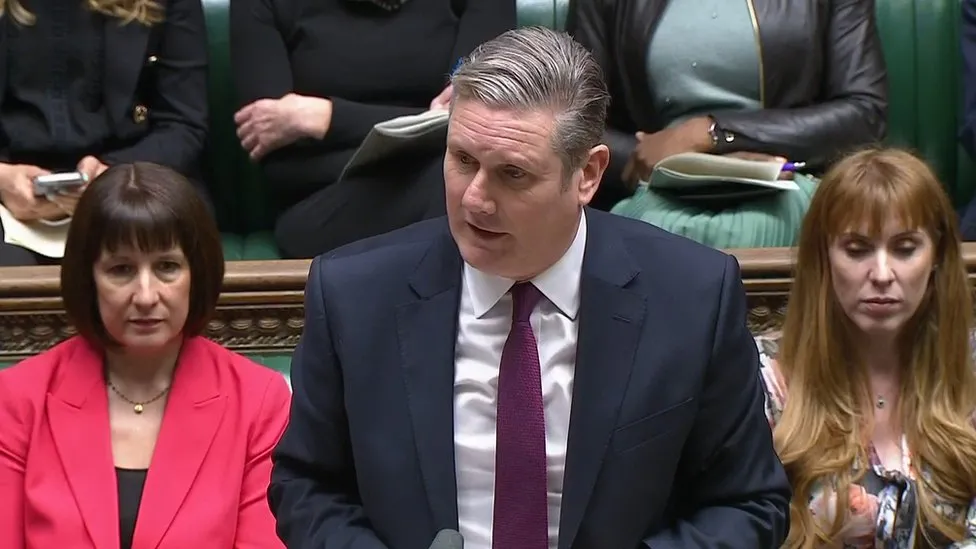
By Chas Geiger
Political reporter
Sir Keir Starmer says he wasn’t aware of the three Horizon cases brought against sub-postmasters by the Crown Prosecution Service when he led it.
The Labour leader was director of public prosecutions from 2008 to 2013.
Asked by the BBC if he should have been more curious, he said the CPS handled four million cases in that period.
Politicians with responsibility for the Post Office over the past 20 years have been criticised amid the fallout surrounding the scandal.
One prosecution on the basis of information from the Post Office’s faulty Horizon IT system resulted in a conviction for theft and a 21-month sentence; another in convictions for theft and fraud.
In a BBC interview, Sir Keir said that, while he was head of the CPS, he had 7,000 staff.
He said the idea the head of the organisation would have been curious about all the prosecutions being handled was “unreal”.
- Postmasters could see convictions quashed this year
- Call for mass appeal to quash Post Office convictions
- Why were hundreds of Post Office workers prosecuted?
“I didn’t see these particular cases. I don’t even know yet what they were about, whether they come within the cohort that is of concern,” he added.
Earlier, Labour’s shadow health secretary Wes Streeting said: “No case of a prosecution of a postmaster came across Keir Starmer’s desk as director of public prosecutions.”
He added: “Frankly, I think it’s appalling that the Conservatives have chosen to try and sling mud at their political opponents, whether that’s Keir Starmer in the Labour Party or Ed Davey in the Liberal Democrat Party, rather than say ‘hang on a minute, this is a grave injustice, let’s sort it out’.
“Instead of the mud-slinging, I’d urge the government to get on with the job… to get justice for these postmasters, fair compensation for these postmasters, as quickly as possible.”
Between 1999 and 2015, the vast majority of prosecutions of hundreds of sub-postmasters, when faults with the Horizon system wrongly made it appear that money had gone missing, were conducted by the Post Office itself, rather than the CPS.
‘Deep regret’
There were more than 900 convictions. Only 93 have been overturned so far.
Under plans set out by the government on Wednesday, legislation will be introduced to overturn these convictions, with affected sub-postmasters being asked to sign a declaration that they committed no offence, so they can then claim compensation.
In the past 10 days, Sir Ed Davey has come under repeated fire from a number of Tory MPs over his time as postal affairs minister between 2010 and 2012, in the coalition government.
In May 2010, he refused to meet former sub-postmaster Alan Bates, who led the campaign to expose the Post Office scandal, saying he did not believe it “would serve any useful purpose”.
He did meet Mr Bates in October 2010 – and the Lib Dems say he was the first postal affairs minister to hold such a meeting since campaigners began pressing for talks in 2003.
However, the Lib Dem leader has said he “deeply regrets not realising that the Post Office was lying to him”, and not asking executives “tougher questions”.
The Lib Dems said: “The scandal took place over many years from 1999, during which time different governments and ministers from all parties were in post.”
Related Topics
- Post Office investigator denies ‘mafia’ behaviour
- Published20 minutes ago
Bully Boy Britain
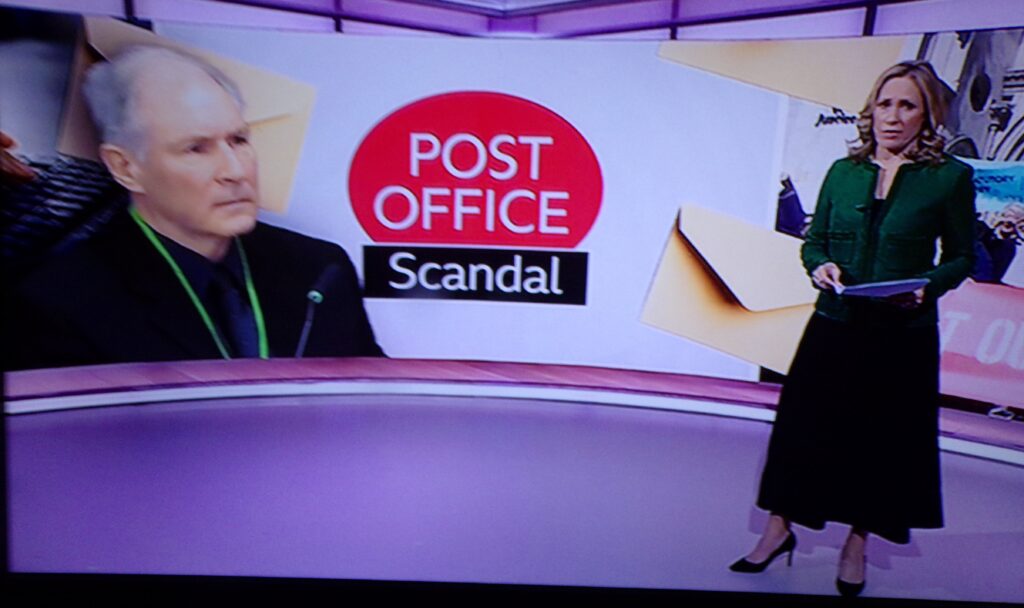
R J Cook.
Two more Scottish convictions quashed
Two more convictions in Scotland relating to the Horizon Post Office scandal have been overturned.
Sub-postmistress Judith Smith pled guilty to a charge of fraud at Selkirk Sheriff Court in 2009, while sub-postmaster Colin Smith admitted a charge of embezzlement at Dunfermline Sheriff Court in 2013.
Their convictions were later identified as potentially unsafe by the Scottish Criminal Cases Review Commission, and have been quashed before their appeals were due to be heard in court tomorrow.
A total of four Scottish convictions have now been overturned.Read more about these links.
What happened at the inquiry this afternoon?
As the inquiry wraps up for the day, let’s run through some of the main points that were put to Stephen Bradshaw, a former Post Office investigator:
- Inquiry counsel Julian Blake asked Bradshaw if he should have looked further into claims there were issues with the Horizon IT system. Bradshaw insisted his role was to gather evidence and pass it on to solicitors
- Throughout the hearing, Bradshaw insisted he was only “a liaison” and deflected much of the responsibility for key decisions to the lawyers representing the Post Office – Cartwright King
- Lawyers representing the victims at the heart of the scandal had the opportunity to put some questions to Bradshaw. Edward Henry KC, representing former sub-postmistress Janet Skinner, put it to Bradshaw that he and his team were “drenched in information that Horizon wasn’t working”, to which Bradshaw accepted that the information “came through”
- Christopher Jacobs, a lawyer representing former sub-postmistress Shazia Saddiq, told Bradshaw he had “hounded” her and others but Bradshaw denied this
- Jacobs said 49 of the 156 sub-postmasters he represents said they were told by the Post Office that they were the only one being investigated and 61 were threatened with prosecution. Bradshaw insisted he’d “never threatened anyone with prosecution” and categorically denied telling postmasters or postmistresses “that they were the only one”
Posted at 17:2517:25
The convictions and costs of the Post Office scandal
Hundreds wrongly convicted in the Post Office scandal could have their names cleared, after emergency laws were announced to “swiftly exonerate and compensate victims”.
There were more than 900 convictions linked to the scandal over 16 years, with only 93 so far being overturned.
Buzz of excitement as proceedings end for the day

Sam Hancock
Live reporter at the Post Office inquiry
Rounding off today’s hearing was Tim Moloney KC – he represents, among others, Della Robinson who sits beside him today.
A former sub-postmistress at Dukinfield Post Office in Cheshire, Robinson was convicted in 2013 of false accounting.
Moloney suggests there was a time, after Stephen Bradshaw formally interviewed Robinson many years ago, that he and others were aware she hadn’t taken the money.
Robinson nodded along as her lawyer spoke, at times smiling and looking at her partner, Michael, sat beside her. But Bradshaw denied this ever happened, saying “I wouldn’t say anything like that”.
When Chair Sir Wyn Williams calls today’s proceedings to an end, there’s a buzz of excitement in the room.
Some of the sub-postmasters and postmistresses talk to their legal teams, journalists – like me – tap furiously at their keyboards, and before long the room empties entirely. One thing’s for sure, though – interest in this scandal isn’t going away anytime soon.
Posted at 17:1217:12
Bradshaw ‘told victim he knew she hadn’t taken the money’

Tim Moloney KC, who represents 73 sub-postmasters and mistresses – all of whom were convicted but later had their convictions overturned, brings up the case of Della Robinson.
Robinson, sitting beside him, was a sub-postmistress at Dukinfield Post Office in Cheshire. She was convicted in 2013 of false accounting.
Moloney says Bradshaw interviewed Robinson who said errors were the result of using Horizon.
But after the interview, Moloney says Bradshaw spoke to Robinson and her partner in an empty canteen and told her off the record “we know you haven’t taken the money but worst case scenario is you’ll be prosecuted.”
Bradshaw denies saying this, adding: “I wouldn’t say anything like that because it’s not my decision.”
Woman in wheelchair ‘left shaken by Bradshaw’s treatment of her’

BBCCopyright: BBC
Christopher Jacobs, a lawyer acting on behalf of Rita Threlfall, says Threlfall uses a wheelchair and, when she met Bradshaw to be interviewed in 2010, she asked for a chair and never received one, so she had to sit on stairs.
The interview was upstairs, without proper access for a wheelchair, Jacobs continues, and Threlfall was placed in a “tiny parcel lift”.
In response to Threlfall’s account, Bradshaw says the chances of being given a chair in a Royal Mail delivery office are “slim”.
He also says: “It wasn’t a small tiny parcel lift, it was a designated wheelchair lift.”
Jacobs refutes this and says “Rita would want me to say you’re not telling the truth.”
Bradshaw says he has a photohraph of the lift. Sir Wyn Williams says this can be submitted formally and he can consider the evidence and also run it past Threlfall.
Jacobs says Threlfall was “shaken by the experience” and now has “crippling anxiety and depression which arises, in large part, from the way you treated her”.
He says Threlfall is watching today but is “too traumatised to give evidence to this inquiry”.
Bradshaw denies hounding victims

Sam Hancock
Live reporter at the Post Office inquiry
When I spoke to Shazia Saddiq earlier, she told me her story and described how she had received repeated and threatening phone calls from Stephen Bradshaw, which included the use of offensive language.
She told me Bradshaw once called her a bitch, which her statement to the inquiry says her husband heard as the phone was on loudspeaker.
When Saddiq’s lawyer Christopher Jacobs asks Bradshaw about this, he says this isn’t true and that he’d never use such a word.
Put to him that he was lying and had “hounded” Saddiq and others, Bradshaw says “no I didn’t”.
As her lawyer speaks, Saddiq nods along and looks directly in Bradshaw’s direction. She told me earlier she had wanted to make eye contact with him all day, but had struggled. “He won’t look at me,” she said.
Posted at 16:4316:43
Bradshaw denies telling sub-postmasters they were ‘the only one’ with issues

Post Office inquiryCopyright: Post Office inquiry
Up next is Christopher Jacobs from Howe and Co, who represents 156 sub-postmasters and postmistresses – 49 of whom said they were told by the Post Office that they were the only one being investigated, and 61 were threatened with prosecution.
He brings up Jacqueline McDonald (whose case Julian Blake brought up earlier today) who had said Bradshaw had told her she was the only one being prosecuted.
What McDonald said about you is pretty standard practice for how the Post Office dealt with these sub-postmasters and postmistresses, isn’t it? Jacobs asks.
“I’ve never threatened anyone with prosecution,” says Bradshaw.
He said it was “completely wrong” if people from the Post Office told sub-postmasters or postmistresses that they were the only one. “I can categorically say I have never said that.”
Wimbledon: Electric double-decker bus catches fire during rush hour
Watch: Electric double-decker bus bursts into flames in London
By James W Kelly
BBC News
An electric double-decker bus caught fire during the morning rush hour in south-west London.
Emergency services were called to Wimbledon Hill Road/Alwyne Road in Wimbledon shortly after 07:20 GMT.
Transport for London (TfL) said the bus was quickly evacuated, and the Met Police said no injuries were reported. The force declared a critical incident.
Max Pashley, a local resident, told City A.M.: “We heard a huge bang. We were terrified.”
Tom Cunnington, TfL’s head of bus business development, said: “Safety is our top priority and we are working with the operator, London General, and the bus manufacturer, Switch, to investigate what happened.”
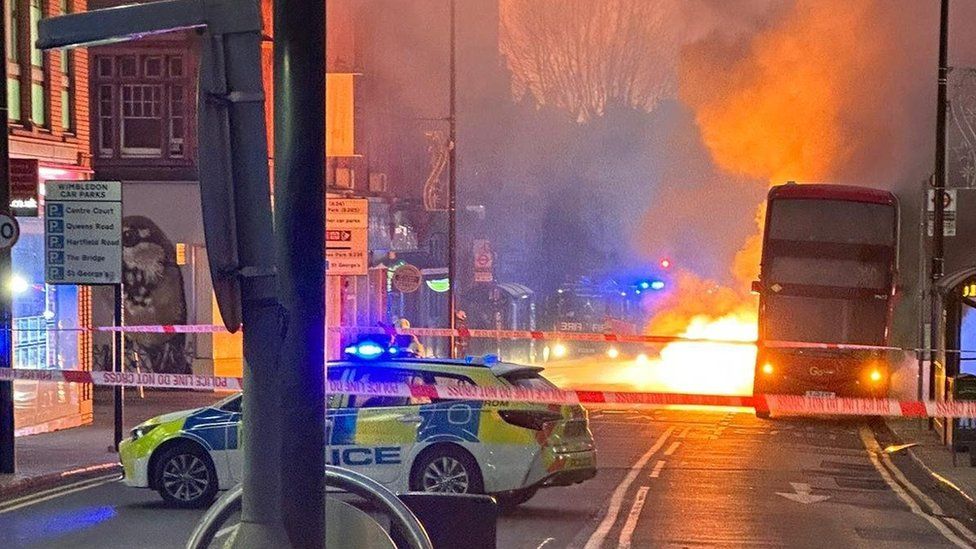
Road closures and cordons are in place and are expected to be for some time.
A Met Police spokesperson said: “We thank the local community for their patience and co-operation as emergency services work at the scene.”
People have been advised to avoid the area.

Listen to the best of BBC Radio London on Sounds and follow BBC London on Facebook, X and Instagram. Send your story ideas to hello.bbclondon@bbc.co.uk
Related Topics
- Buses catch fire at town centre transport depot
- Published22 May 2022

From other local news sites
The Black Comedy Of British Democracy.

| The election year dawns – and immigration is a key battleground We trust this newsletter reaches you in good health, and it’s not too late to extend our warm wishes for a happy and healthy New Year! In 2024, we stand at a crucial juncture in the ongoing struggle to regain control of our borders. This week, Nigel Farage is weighing his comeback to frontline politics. No, we are not going to boo or cheer. Any politician embracing policies that will lead to lower immigration is fine by us. If Mr. Farage can influence the debate in that direction, more grease to his elbow. We have never been party-political and take great care to guard our independence. Our central concern remains the massive level of migration. In 2022 this was three times what it was in 2010. All politicians should be as concerned about this as we, along with nearly 60% of the voting public, are. Whether Mr. Farage stages a political comeback or not, one thing is certain: the matter of legal and illegal migration is swiftly becoming a key focal point of the upcoming general election. Since 2020, the Conservatives have consistently broken their electoral promises, encouraging unrestricted immigration and abandoning fundamental controls. Despite pledging a ‘points-based system’ to control and reduce numbers, in reality, the points-based system boosted immigration rather than curtail it. This included… abolishing the annual cap on non-EU workers. opening overseas recruitment to lower-skilled jobs, including migrant care workers. removing the Resident Labour Market Test, the requirement that jobs should first be advertised in the UK. lowering the general salary threshold from £30,000 to £25,600. outsourcing student admissions to British universities; and allowing international students to remain in the UK for up to two years after graduating. Before rolling out the post-Brexit immigration plan, Conservative ministers vowed to turn the UK into a ‘magnet for the best and brightest,’ promising fewer lower-skilled workers and an overall drop in numbers. But the reality is starkly different, with net migration skyrocketing from 219,000 in 2019 to a staggering 745,000 in 2022. Labour has been vocal about restricting both legal and illegal immigration, with Darren Jones MP, the shadow chief secretary to the Treasury, expressing the party’s intention to bring net migration back to 200,000. Forgive us for doubting that Labour will do any such thing. Their proposals thus far are little different from those of the Tories. There is no firm commitment to cap the number of visas. While their proposals on how they would deal with illegal immigration, such as a ‘deal’ with the EU on illegal migrants and abandoning the Rwanda scheme, will very likely result in much higher levels of illegal immigration. Indeed, internal party dynamics could push for an increase in immigration levels. |
| In other news, the Home Office claims to have cleared the 92,000 ‘legacy’ asylum backlog, boasting a whopping 112,000 processed cases. But wait, before you applaud, a closer inspection reveals that the trick is not nearly as impressive as they’d like us to believe. Out of the 112,000 asylum cases dealt with in 2023, only 77,019 received what they call ‘substantive’ decisions – essentially the verdict on whether an asylum claim is accepted or rejected. The rest fall under the umbrella of non-substantive decisions, a murky category including void, suspended, or withdrawn claims. The asylum decision grant rate for 2023 stands at 67%, a tad lower than previous years but still notably high. To put it in perspective, France witnessed a seven-percentage-point drop in its asylum approval rate from 2016 to 2021, falling from 32% to 25%. Meanwhile, the UK, with its 67% rate, seems to be in a league of its own. Breaking down the 77,019 substantive decisions, we find that 51,469 were granted asylum, while 25,550 were rejected. Migration Watch UK Chairman Alp Mehmet didn’t mince his words, stating, “The government is playing fast and loose with the figures. The public will not be fooled by smoke and mirrors.” The Home Office’s grand illusion may have shifted some paperwork around, giving the benefit of the doubt to thousands, but the real question remains – has anything been done to deter future migrants from trying every means possible to reach the UK, even if it involves a perilous journey in a small boat? We doubt it. In fact, we would go so far as to say, it may well have the opposite effect. |
| Thank you for your support! In the last seven months, our ‘Cut Immigration’ campaign has reached millions nationwide. Nearly 84,000 people have signed our petition urging the government to limit net migration to under 100,000 per year. Out-of-control, mass immigration (legal and illegal) is straining public services, housing, and the environment, while also impacting the fabric and nature of our society. We have been heartened by the reaction to the petition, which has reached millions of people but we now feel that the time has come to bring it to a close and have written to all those who signed it to thank them and invite them to sign up to this newsletter. While we’ve fought for a tougher immigration system and won a turnaround on weak salary thresholds, the fight isn’t over. Holding the government to account for its abysmal immigration record is non-negotiable. The overwhelming support we’ve received during this campaign tells us people are fed up to the back teeth and want radical, across-the-board changes. |
 |
| Migration Watch relies entirely on the generosity of our supporters who fund our work. If you would like to help us with our efforts, please click here to donate. |
| Sebastian Milbank, the Telegraph – Britain has a moral duty to turn away refugees ‘Though improved patrolling of our waters and vastly more help from France are needed, neither is a replacement for removing the perverse incentive structure created by our present policies. Those who enter the country illegally must be ineligible for refugee status, and should be deported on an automatic basis, not to the middle of Africa, but back to their countries of origin.’ We also liked: Rakib Ehsan, Spiked – The UK’s asylum system is a dangerous joke Tom Jones, CapX – Stop the student visa racket |
| MIGRATION WATCH IN THE MEDIA |
| This week we have been quoted by the Independent on the government ‘playing fast and loose’ with its claims about reducing the migration backlog. Our Chairman Alp Mehmet said: ‘The Home Office may have moved a few papers from the pending to the out-tray by giving thousands the benefit of the doubt but they have not done anything to dissuade other migrants from getting to the UK by whatever means they can, including in a small boat.’ Our comments were also covered by Yahoo News, the Argus, the Guernsey Press, Bracknell News, the Yorkshire Post, Grampian Online, the Lancashire Telegraph and Perspective magazine. Alp was also quoted in The Sun in an article on the soaring numbers of failed asylum seekers who have been able to sneak back into the UK and then been allowed to stay after making a second claim: ‘Such reversals of earlier decisions are baffling. All we can assume is that failed applicants and their legal representatives learn the lessons of previous failures and modify their claims accordingly. No wonder we are now seen as a gullible, soft touch. And the poor old, put-upon taxpayer foots the bill.’ This story, along with Alp’s response, was also covered by the Daily Express. You can read the full article here. Elsewhere, our Executive Director Dr. Mike Jones was invited onto Sky News to discuss immigration challenges in the upcoming year. Watch the interview below. |
| Following the release of our paper on ‘safe and legal routes’ for asylum seekers, Alp was quoted in the Daily Express on Labour’s ‘absurd’ plan to allow refugees to claim asylum at UK embassies across the world: ‘Labour’s absurd scheme to open up UK embassies abroad to asylum claims poses an even greater threat to the integrity of the system and would undermine border control even more gravely. This is because any UK office overseas that was charged with considering applications would likely be flooded with them. Indeed, it is likely that foreign governments would refuse to agree to their establishment lest those who failed should remain on their territory.’ This paper, along with Alp’s comments, was also covered by the Daily Mail. Read on here. On Monday, Mike discussed loopholes in the student visa system on GB News with Martin Daubney after new restrictions on student dependants were introduced. Watch the interview below. |
| In an article for the Daily Mail, Alp commented on the case of a Sudanese ISIS fanatic who secured UK citizenship despite being flagged up by the security services. Alp’s verdict on the outcome was strongly critical: ‘Either our immigration judges are totally gullible or they derive a perverse pleasure from siding with chancers, crooks and terrorists, and putting their interests before those of the British people. If terrorists are to roam freely among us, we have a right to know who they are and what harm they could potentially do.’ Our comments were also covered by the Daily Express, London Loves Business and Breitbart. Migration Watch was again quoted in the Daily Mail on the issuing of ‘mysterious’ transport stamps that accidentally let migrants stay in the country: ‘Alp Mehmet, chairman of Migration Watch UK, which campaigns for tougher border controls, said: ‘We don’t know how many people may have wrongly benefited from this serious systemic failure resulting from shocking unprofessionalism. There’s no excuse for officials, it seems repeatedly, making such far-reaching mistakes.’ The Daily Express also referenced Alp in connection to the same story. Read on here. |
| MAKE YOUR VOICE HEARD |
| For many voters deeply troubled by soaring immigration levels, the willingness to forgive past shortcomings was rooted in the hope that this time, the Conservative Party meant business. However, a closer look at the official figures over the past few years exposes a harsh reality – the Conservative Party leadership never truly embraced a tough stance on immigration. If the government’s broken promises have left you as incensed as we are, we urge you to voice your concerns by writing to your Member of Parliament. |
| We wouldn’t be able to continue this work without the help of our supporters. If you would like to donate, please click the button below. Our supporters are all as concerned about the future of our country as we are. Some have been kind enough to remember us in their will. If you wish to consider leaving a bequest to Migration Watch UK, or wish to discuss anything else, do please get in touch. Our email is: admin@migrationwatchuk.org |
January 10th 2024
Post Office scandal: Hundreds of victims to have convictions overturned
By Sean Seddon & George Wright
BBC News
Hundreds wrongly convicted in the Post Office scandal could have their names cleared this year, after emergency laws were announced to “swiftly exonerate and compensate victims”.
Postal affairs minister Kevin Hollinrake said that hundreds fell victim to a “brutal and arbitrary exercise of power”.
There were more than 900 convictions linked to the scandal over 16 years.
But only 93 of these convictions have since been overturned.
Between 1999 and 2015, the Post Office prosecuted hundreds of sub-postmasters and mistresses based on the faulty Horizon IT system.
Former sub-postmaster Alan Bates – who inspired the recent ITV drama Mr Bates vs the Post Office – told the BBC it was “another positive step forward”.
However, he said “the devil is in the detail, and we’ve yet to see that”.
Prime Minister Rishi Sunak told the House of Commons that those previously convicted in England and Wales would be cleared of wrongdoing and compensated under a new law.
The Scottish government also announced similar plans for those convicted in Scotland, which has a separate legal system.
Downing Street said its aim was to complete the process of overturning the convictions of those affected by the end of 2024.
The prime minister’s spokesman said the government intends to “introduce the legislation within weeks” and is “confident it will be well-supported”.
Speaking in the Commons after the prime minister, Mr Hollinrake said evidence that emerged from the ongoing public inquiry into the scandal suggested the Post Office acted with “incompetence and malevolence”.
He described the decision to overturn the convictions through an Act of Parliament as “unprecedented” and said it had not been taken lightly, given its potential ramifications on the legal system.
Mr Hollinrake said the move applying to England and Wales “raises important constitutional issues” around the independence of the courts, which are normally the authority that would overturn a conviction.
https://emp.bbc.co.uk/emp/SMPj/2.51.0/iframe.htmlMedia caption,
Watch: Former sub-postmasters and sub-postmistresses talk to BBC Breakfast
The minister also accepted the new law would risk seeing people who were genuinely guilty of a crime pardoned – though the government estimates that to be a very small proportion of the total number affected.
Asked by the BBC’s PM programme why it had taken a TV drama to inspire action on a problem known about for over a decade, Mr Hollinrake said the show released this year had moved the public as well as people in government.
“We are people ourselves of course. We watch TV ourselves and see this stuff, and we and other people within government realise this is a situation we’ve got to resolve,” he said.
While the full detail of the law has not been published, Downing Street said it would amount to a blanket overturning of convictions tied to the faulty Horizon IT system.
But the Department for Business told the BBC convictions would not be lifted until former sub-postmasters and postmistresses signed a declaration that they had not committed any crime.
Mr Hollinrake said by signing the document, they will become eligible for the compensation payment of £600,000 already available to people who have cleared their names via the courts.
The declaration is designed to prevent “guilty people walking away with hundreds of thousands of pounds of public money”, he said, adding: “Anyone falsely signing this will be subject for prosecution for fraud.”
The government has also confirmed it will:
- introduce a one-off £75,000 payment for the 555 ex-postmasters whose group court case, led by Alan Bates, helped to expose the injustice
- review whether people whose convictions were upheld after an appeal can also be overturned by the new law
- work with administrations in Scotland and Northern Ireland to ensure sub-postmasters in those nations can also be cleared

More on the Post Office scandal
- Why were hundreds of Post Office workers prosecuted?
- Can scheme to quash Post Office convictions work?
- How Post Office drama shone light on scandal
- ‘I carried the shame – I refuse to carry it any longer’
- The village where Post Office scandal battle began

January 9th 2024
| In depth: ‘It’s a real breakthrough moment’ |
 |
| At its heart, this extraordinary saga is about a group of workers who lost their jobs and their reputations – and in some cases served prison time – because their employer wrongly accused them of theft or fraud. You can read Mark Sweney’s useful primer on the story here. But it is also about accountability for an apparent cover-up even after the Post Office realised it was in the wrong, and how the story is yet to be resolved for so many victims.Postmasters may be thrilled that the ITV drama Mr Bates vs The Post Office (starring Toby Jones, above) has brought the story back to the centre of public and political attention. But they might also question why it took a fictionalised version of their story to do so when the reality was bleak enough.In an opinion piece today, Gaby Hinsliff reflects on why the wheels of justice have turned so slowly. “The most dangerous period for campaigners can be after they’ve won the long-fought victory,” she writes. “In a world with too many newer injustices, the bureaucratic grind of actually getting what was promised is easily overlooked.”How the ITV drama has changed thingsIn her review last week of Mr Bates vs The Post Office, Rebecca Nicholson wrote: “The Post Office scandal has been so long-running that it can feel as if the staggering injustice at the heart of it all has been lost in the dense forest of the details. This makes it human again.”On the phone yesterday, solicitor Neil Hudgell – who has already helped 73 former post office operators clear their names – reflected on the “absolute bedlam and madness” of renewed attention to the story.At least 60 of those affected have died awaiting compensation. “Of course it’s regrettable if the penny hasn’t dropped for some people before now,” Hudgell said. “We’re focused on the here and now, mapping out the best possible route to closure for our clients. The drama has condensed a period of 20 years into four hours in a way that the British public’s psyche can grasp what’s gone on. So it’s a real breakthrough moment.”New victims come forwardLast week, Hudgell told the BBC that about 50 new potential victims of the scandal had contacted him. By yesterday, he said, the figure stood at about 100. “Quite a lot of them say that the drama has helped them find the courage to come forward – seeing the wave of sympathy that’s been generated,” he said.Many of the new enquiries are from those who may not have been convicted but suffered devastating consequences all the same. “There are people who have lost their incomes or their homes,” he said. “It’s hard to know the overall scale of that. And one of the sad features is that quite a few of them are people looking for redress for loved ones who have since died.”There are stories of people who have faced great hardship or personal cost because of an injustice visited on a family member – but there is no provision for compensation for family members in the existing schemes. Hudgell said that there was considerable support for a change to include families.“There are suicides of spouses, miscarriages, admissions to psychiatric care. One guy I spoke to previously said, ‘I went to prison, I got it easy – I could hide in my cell, but my wife had to face the wrath of the community.’ Each of these stories on its own is a tragedy.”Changes to the processOn Sunday, Rishi Sunak said that he was considering a proposal to exonerate the sub-postmasters en masse by act of parliament.“I think that that’s a big step that needs proper consideration,” said Hudgell. “The more pragmatic and realistic step is to take the appeal process out of the hands of the Post Office, and hand it to the Crown Prosecution Service.”The Post Office’s role in the appeals process derives from the fact that it had the power to bring prosecutions itself: “While they’re using independent counsel and there has been an enhanced level of scrutiny of the process, if these prosecutions had been brought today, it would have been the CPS handling them. They [the CPS] have the independence to do this.”The government is also understood to be considering blocking the Post Office from challenging appeals, allowing operators to appeal en masse. And minister Kevin Hollinrake said yesterday that the Post Office’s role in private prosecutions will now be under review.Accountability at the Post Office |
 |
| There have never been any prosecutions of the Post Office, Fujitsu, or members of their staff – a fact that has caused anger among some victims and campaigners. But the Metropolitan police now says that the Post Office is under criminal investigation over “potential fraud offences” of perjury and perverting the course of justice.Two people have been interviewed under caution as part of that process, but there have been no arrests. Two witnesses for Fujitsu in the trials are also under investigation.“My clients are not vindictive,” said Hudgell. “But they are very anxious to see proper accountability. It’s noticeable in the process of the inquiry that successive Post Office witnesses never accept culpability. We need to know who made decisions around prosecution strategies, and who decided, for example, to tell sub-postmasters that they were the only ones having issues with the Horizon system.”As one of the affected Post Office operators, Hughie Noel Thomas, wrote in his memoir: “With no mention anywhere else that any other sub-postmaster had been implicated in the same way as I had been, it all seemed completely hopeless.”Short of prosecutions, there is now a growing campaign for former chief executive Paula Vennells, who ran the Post Office while it was denying that there were any problems with the Horizon system, to lose her CBE. Yesterday, the government said Rishi Sunak would “strongly support” a review by the honours forfeiture committee.What happens nextThe current phase of the inquiry, which is focused on actions taken against sub-postmasters, ends in February. The final two phases, focused on areas including responses to the scandal and how Horizon was monitored, could hear evidence from senior Post Office and Fujitsu staff, potentially including Vennells. The whole process is expected to conclude before the end of 2024.Meanwhile, some have argued that the delays should prompt a serious reconsideration of how major miscarriages of justice with large numbers of victims are considered, and see inquiries radically speeded up.Hudgell is unpersuaded of that case, and argues instead that it is right that the compensation process proceed as quickly as possible in parallel to the inquiry.“We have to get to a proper and rigorous outcome,” he said. “The bottom line is that this is an incredibly difficult job – an evolving story playing out in a very public way, in the context of a national institution whose reputation has been broken, but which is churning out millions of documents. It is really difficult to contemplate any way it could be funnelled into one cohesive single process. Some of my clients have waited 20 years – they will tolerate another year.” |
 |
| What else we’ve been reading |
 |
| Patrick Butler’s piece about Kids Company founder Camila Batmanghelidjh, who died last week, is a meticulous and fascinating account of her very public disgrace, and much less noticed exoneration. “She hid the pain very well,” her brother Bobby says. “She knew she was collateral damage in a play happening elsewhere.” Archie You’ve seen the winners of the Golden Globes – now get the analysis. Catherine Shoard guides us through 10 things we learned from the awards, including whether Barbie’s buzz is bust, the charm of The Holdovers, and surprise snubs in Los Angeles. Matthew Pearce, newsletters team Luke Harding tells the remarkable story of Oleksandr Ivantsov, a Ukrainian soldier who fled the Azovstal steelworks after Russia’s seizure of Mariupol and somehow survived. “I put the probability of success at 1 in 1,000,” Ivantsov says. “Everyone thought I was mad.” Archie Economist Carsten Jung makes the case for boosting economic growth through public investment. He argues that investing in green spending in particular will make the economy more sustainable, as both Labour and Conservatives “fixate on distracting debates on inflation”. Matthew Ramy Youssef broke new ground with his eponymous TV show, and now he’s moving on to film. Steve Rose spoke to the comedian and actor about his first big movie role in Poor Things, filming in Palestine and hanging out with Taylor Swift. Matthew |
Education | Student loans in England will cost the government an extra £11bn a year – equivalent to 16% of all schools spending in England – because of higher interest rates increasing the cost of borrowing, new analysis suggests. The Institute for Fiscal Studies says that a spike in rates paid by the government means that it will now lose money even on loans that are repaid in full.
January 8th 2024
Deaf As A Post
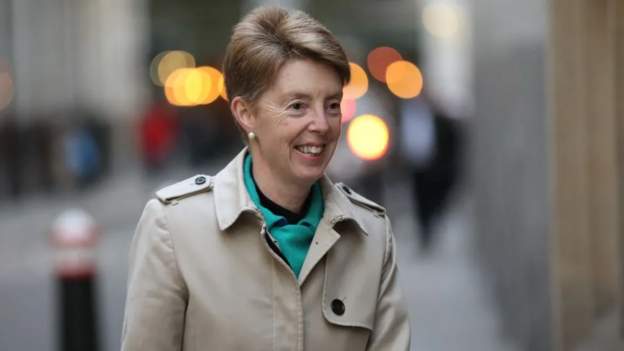
- Rishi Sunak would “strongly support” the honours committee if it chose to look into revoking the CBE of the former Post Office boss
- The comments from No 10 come as calls grow for Paula Vennells to lose the honour in the wake of the Horizon scandal
- Earlier, the prime minister said the government “will do everything we can to make this right for all those affected”
- Former minister David Davis has called for sub-postmasters and mistresses involved in the scandal to be exonerated, saying they should be able to submit a “mass appeal”
- Meanwhile, Justice Secretary Alex Chalk is due to meet Post Office minister Kevin Hollinrake this afternoon
- Between 1999 and 2015, the Post Office prosecuted 736 sub-postmasters and mistresses based on information from a computer system called Horizon
- More than 700 branch managers were given criminal convictions when the faulty software made it look as though money was missing from their sites – 93 of these convictions have been overturned
How the Post Office scandal developed today
We’ll shortly be wrapping up our live coverage of the Post Office Horizon software scandal, recently brought into focusd by an ITV drama series.
Here’s how the story developed today:
- Prime minister Rishi Sunak defended the government’s response to the scandal, but voiced his support for speeding up the compensation process for wrongfully convicted sub-postmasters
- His office said the PM would also support the Honours Forfeiture Committee if it decided to look at revoking former Post Office boss Paula Vennells’s CBE
- The comments from the PM’s spokesman come after an online petition calling for Vennells to lose her honour reached more than one million signatures
- Labour leader Sir Keir Starmer said it was his belief that all sub-postmaster convictions should be revisited
- We heard from some exonerated sub-postmasters and mistresses who told nightmarish stories of wrongfully being found guilty of fraud, some of whom spent time in prison, became bankrupt or lost their homes as a result
- There have been calls for a mass appeal pathway to exonerations, from First Minister of Scotland Humza Yousef and ex-minister David Davis among others
- Post Office minister Kevin Hollinrake met with Justice Secretary Alex Chalk to discuss ways of speeding up compensation for wrongful convictions, but details of their meeting haven’t been made public
- Hollinrake later gave a statement to the House of Commons, vowing the government’s full commitment to justice for those wrongfully convicted
Watch: ‘Justice for the victims is my highest priority’
Video content
https://emp.bbc.co.uk/emp/SMPj/2.51.0/iframe.htmlVideo caption: Watch: Minister promises to compensate people caught up in Horizon IT scandalWatch: Minister promises to compensate people caught up in Horizon IT scandal
Kevin Hollinrake, the Post Office minister, told the House of Commons that justice for the victims of the Horizon IT scandal is his highest priority.
“We have a clear moral duty to right these wrongs to the best of our ability” he said.
The government is providing funding for compensation, he said, but the taxpayer alone would not foot the bill.
Mr Bates: the unlikely local hero of the Post Office scandal
Alan Bates a former sub postmaster whose story portrayed in the recent ITV drama, told the BBC he believed a “resolution” to the scandal was “closer”.
“But we still have to keep the pressure on and we have got to push people and we’ve got to get the whole thing moving and keep the momentum,” he said.
Bates said the years it had taken to get to this point had been “frustrating”, but added the ITV show had enabled a “broader audience” to understand what happened.
He said he thought the heightened political attention would build momentum and “hopefully bring speedy resolution, certainly to all those who are still waiting for their financial redress in all of this, which has been so lacking throughout many, many years in their lives”.
“The group has lost 60 or 70 people since we started all this. People need to get on with lives, they need to be able to draw a line under it – they will never forget it, but they have got to be able to get on and unfortunately they do need money to keep them going.
“This money is only what they are owed. This is money to put them back in a position what they would have been had Post Office not done what they did to them.”
“The most important thing is for government to make sure that this financial redress goes through at speed to get it there as soon as possible, not wait, not spend money with lawyers time and time again… get the money out to people now,” he added.
Bates described his experience in the days since the drama aired had been “bananas”.
People asking why it took an ITV drama to bring it into focus
The wheels of government are turning in an attempt to speed up the appeals process for hundreds of sub-postmasters caught up in the Horizon IT scandal.
A sense of urgency in Parliament, which some might suggest has been absent over the 25 years since this scandal was first reported.
Today’s statement in the House of Commons sounded like something of a holding position.
It is entirely understandable that government needs to consult with the judiciary about the measures it puts in place – lives have been ruined and legal precedents are at stake.
But while the Business and Trade minister insisted the Post Office scandal has been his “highest priority” since he took on the role 15 months ago, many are still asking why it took an ITV drama for the case to receive such focus.
‘Heads have to roll’ – Gwynne
Andrew Gwynne, the Labour MP for Denton and Reddish pays tribute to his constituent Della Robinson who was a sub-postmistress at Dukinfield Post Office. She was convicted in 2013 of false accounting.
“It has been quashed as part of the 555 but she lost everything. She lost her shop, she lost her home, she lost her friends and she lost her reputation.
“Heads have to roll because people were in the know at Fujitsu and at the Post Office and lives were destroyed.”
Gwynne adds: “A daughter of Denton, Paula Vennells really ought to do the right thing and hand back her CBE.”
Convicted postmasters have ‘understandable collapse of trust’
Dame Maria Miller puts it to Hollinrake that many sub-postmasters who had criminal convictions are refusing to come forward because it would mean taking part in further legal processes, and they have experienced an “understandable collapse of trust in the Post Office and judicial systems”.
Can convictions based on Horizon data be quashed given what we now know, without victims having to endure further legal proceedings, she asks.
Hollinrake acknowledges many are not coming forward.
“Ideally, we would like a process that does not require a convicted sub-postmasters to come forward,” he says, and shares his hopes that there will be developments on this in the coming days.
Patel asks for scrutiny of Horizon software company
Dame Priti Patel asks Hollinrake what scrutiny is occurring over the actions and culpability of Fujitsu, the company behind the Horizon software.
Hollinrake says anybody who is responsible, corporation or individual, should be held to account over the scandal.
The public inquiry should be allowed to run its course, he says, and then blame can be assigned on the findings of the inquiry, and further action taken.
Posted at 19:5219:52
‘Good news in coming days’ promises Hollinrake

The chair of the Business and Trade select committee Liam Byrne, said “justice delayed is justice denied”.
“85% of the convictions have still not been overturned yet it was last spring that the select committee warned that the process was rolling much too slowly and made recommendations for speeding it up.
“Many of those recommendations were rejected, yet tonight the minister has told the house that only now the Lord Chancellor is exploring ways of speeding things up.”
Byrne asks for a time frame “for delivering justice to those who have been unfairly convicted?”
“Can those affected expect justice this year or must they wait for many more to have passed away?”
Hollinrake replies saying “most convictions haven’t come forward and that is exactly why we are making this statement today.”
“Yes absolutely we want to see these issues resolved. We do require victims to bring forward claims and applications to overturn convictions.
“I hope to have good news in the coming days.”
MP proposes restrictions be placed on Post Office
Sir David Davis notes the work to provide justice so far, but suggests some restrictions he believes the government should place on the Post Office going forward.
These suggestions include the Post Office being prevented from challenging victims’ appeals and stripping away its right to police its own cases.
In reply, Hollinrake says that while some of these matters are outside of the government’s control due to the separation of powers, he says “yes” to some of the recommendations and invites Sir David to a meeting to discuss further.
Art can tackle justice – MP praises ITV drama

Jonathan Reynolds, the shadow secretary of state for business and trade, describes the Horizon Post Office failure as “a scandal we have been responding to for some time”.
He says he welcomes the way the ITV drama “has brought the story to a wider audience and serves as a powerful reminder of the way art can be used to tackle justice.”
Reynolds pays tribute to the MPs who have worked to get justice but says there’s a lot more to do.
He describes the Horizon scandal as one of the “miscarriages of justice in British history” and something which robbed people of their lives and liberty.
“The Post Office prosecuted innocent people which no amount of compensation can alleviate.”
He added: “Justice must be served to those workers and their families and that is why Labour has called for all sub-postmasters to be exonerated in full.”
The government will leave ‘no stone unturned’ in pursuing justice – Hollinrake
Hollinrake, the Post Office minister, goes on to announce that retired High Court judge Sir Gary Hickinbottom will chair an independent panel to oversee any disputes relating to compensation for sub-postmasters whose convictions have been overturned.
He runs through some of the figures of compensation paid so far, but says this is not just about compensation, it’s about restoration “of people’s good names and the public’s trust in the postal system and in the justice system”.
Therefore, it is only right that we get to the bottom of what went wrong, who knew what and when, he says, adding that while the scale of the problem is immense, the government is ready to tackle it and “leave no stone unturned in pursuit of justice.”
He then pays tribute to the postmasters who have died since the scandal came to light.
“We stand united not just in memory of those who have suffered but in shared purpose to ensure such a tragedy can never and will never happen again,” he concludes.
‘We need to look at the way private prosecutions were undertaken’
There is great concern about the role of the Post Office in prosecuting these cases, Hollinrake says, noting the Post Office “quite rightly” decided to stop undertaking private prosecutions against sub-postmasters in 2015.
“If we are to make sure a scandal like this can never happen again, we need to look at the way private prosecutions like these have been undertaken,” Hollinrake says.
Any private company can pursue private prosecutions, not just the Post Office, and this is something to be reflected upon by the justice secretary, and a report will come “in due course”
Government working on options for resolving convictions

Kevin Hollinrake continues by saying that getting justice has been his “highest priority as minister” and that it should not be the taxpayer alone who “picks up the tab”.
He says the government has devised options for resolving outstanding criminal convictions for sub-postmasters affected by the Horizon scandal “with much more pace”
He adds that 93 convictions have been overturned, saying: “When we talk about compensation we have to remember the lives of these families have been ruined forever.
“The government recognises we have a high moral duty to right these wrongs.”
He adds: “(The justice secretary) will quite rightly need to speak to senior figures in the judiciary about these options before we put them forward.
Quote Message: But I am confident that we should be able to implement measures which address the concerns expressed by the advisory board, and I hope the government shall be able to announce these proposals to the House very shortly.”
But I am confident that we should be able to implement measures which address the concerns expressed by the advisory board, and I hope the government shall be able to announce these proposals to the House very shortly.”
We want to see justice done, says minister

BBCCopyright: BBC
Kevin Hollinrake, the Post Office minister, tells the House of Commons the Horizon scandal is “one of the greatest miscarriages of justice in our nation’s history”.
He says he is “pleased” the ITV drama Mr Bates vs The Post Office has brought understanding of the scandal to a much broader audience, adding that the drama has “reinforced our zeal for seeing justice done as quickly as possible”.
Hollinrake says the public inquiry is doing great work in exposing what went wrong, and says 64% of people affected have been compensated.
This is not just a matter of getting justice for those wrongly convicted, he says, overturning their convictions is also key.
“All us on these benches and across the house are unified in our desire to see justice done,” he says.
Statement on Post Office scandal happening now
Post Office minister Kevin Hollinrake MP is now speaking about the scandal in the House of Commons.
We’ll bring you details of what he says as it happens.
There’s no easy way for the government to resolve this
Dominic Casciani
Home and legal correspondent
The scale of the Post Office scandal means that there are no easy and quick solutions for the government.
Ministers could advise the King to grant Royal Pardons, once reserved for the condemned as they faced the gallows.
But these would be largely symbolic acts because the government can’t, at the stroke of a pen, quash a conviction. That’s because the courts are constitutionally independent – and that means a second option could be difficult too.
Parliament could pass an act declaring that all the Horizon convictions be quashed, but that would be an unprecedented meddling in the work of judges – and it would pave the way for politicians to do it again.
The third option is a mass appeal with a crystal clear submission to Court of Appeal judges that the state no longer believes the convictions should stand. There’s a precedent for this – 39 post office cases were overturned in one go in 2021.
But running such a case would not be easy – and it could still take years to resolve.
No-fault evictions: ‘I never thought it would happen to me… until my landlord left a Section 21 notice’
Don’t think it will never happen to you — any tenant can be evicted for no reason
Precious Adesina
Precious Adesina5 days ago
Every week almost 300 Londoners are hit with a Section 21 notice, otherwise known as a ‘no-fault’ eviction, where a tenant is ordered by their landlord to move out of their home for no stated reason.
Up until last autumn, if you had told me that I would one day be one of them I would not have believed you. How naive I was.
After almost a decade of renting in London, moving between house shares every year or two, in 2022 I decided to find a place to rent on my own.
I had read many pieces describing the joy of living alone as a woman and thought I would see if I could afford to live out my Carrie Bradshaw dream of hitting deadlines in my very own shoebox before hitting the town (pub) with my pals.
In April that year I found a studio in Wood Green for £950 per month, including heating and electric bills on the top floor of a building divided into five flats.
I had been paying £615pcm (not including bills) to live with three other people in Crouch End and moving to a less villagey part of Haringey (albeit only a walk away) was the only way I could afford to rent solo.
‘It was harder dealing with a useless landlord alone’
Living alone I felt less lonely than I ever have in my adult life, but having sole responsibility if anything went wrong in the flat and being the only person to deal with the landlords was isolating.
When the boiler broke down and the landlord did not fix it on time there was no one to share the misery of a month without heating with. In a houseshare there was at least the camaraderie of being in it together and sharing the load.
It did not help that this was the first place I had experienced a landlord dragging their feet over basic repairs: at one point I was even told that the mice coming into my flat were “sweet little creatures”.
Nonetheless I stuck it out for over a year and I thought things were looking up when my landlord changed. The new landlord introduced themselves, waxing lyrical about all the positive changes they were about to make in the building.
My flat was falling apart and I was excited about the fresh lick of paint and repairs they were offering. All I needed to do was to sign a new tenancy and agree to a ‘small’ rent increase to £1,100. I negotiated them down to £970 after explaining all the time and money I had invested myself into making my flat a decent place to live.
I waited for the repair works to start — in vain. But I decided to let it go, having patched up and decorated myself and secured only a minimal rent increase.
Just a few months later I received a notice on my door that my rent would increase to £1,100pcm — this time with no option for negotiation.
I called the landlord straight away but they refused to answer and messaged me only to text them. I asked them why they were upping my rent a few months after the first increase and by quite a significant amount despite our initial discussion, especially after no repairs had been done.
After claiming that rent increases are normal, sending me a few emojis, which included a thumbs up, smiley faces and the prayer sign, and calling me “mate,” they blocked me. The next time I left my home, a dreaded Section 21 notice, was placed in front of my door.
What are no-fault evictions?
The Government has pledged to ban this deeply unfair practice but they have faced many hurdles getting the legislation through Parliament and almost five years on from their commitment to reform the rental sector, thousands of Londoners still live in insecure rented homes, with ‘no-fault’ eviction numbers at record highs.
Under current rules, tenants like me have just two months to comply with a Section 21 eviction notice, which can come at any time without warning. 
Shutterstock / Slava Dumchev
Never having heard of anyone I knew being evicted for no reason before and unable to think of anything I had done to deserve it, I initially believed the note was a scam.
Having no way of contacting the landlord or of knowing whether this situation was legitimate, at the height of my anxiety and unable to clear my mind enough to work, one afternoon I decided to cycle to the address on my tenancy.
There I was greeted by baffled tenants wondering why I had shown up at their door unannounced asking for help. It turned out it was not the agency’s business premises address on my rental contract but another tenant’s.
I found another address online and, subsequently, a phone number, but it was for the landlord’s accountant. I also discovered that the landlord owned many other agencies, all addressed to the accountant and with no websites.
I spent hours talking to Citizens’ Advice Bureau, only for them to tell me my situation is so common at the moment there would be little point in fighting it. The stress was making me neglect my work and everyday responsibilities and I discovered that this whole situation was technically legal.
At this point I decided to cut my losses and find somewhere new to live — in less than two months — rather than try to fight the situation.
Record numbers of people are being made homeless
And so, I ended up re-entering possibly the most hostile, competitive and expensive rental market London has ever seen — at least since records began. The now cut throat nature of finding a home to rent in London meant I had to give up on the idea of living by myself, too.
I spent a month scouring online room ads, asking every friend and acquaintance if they knew of any rooms to rent and making an ad for myself on Spareroom that was better than any dating app profile I’ve ever made, although much like my Hinge with no success.
Time was running out and I was beginning to wonder if I would end up having to crash with a friend until I found a place (in technical terms this counts as being homeless) or even move out of London for a while.
As a twenty-something freelance writer with no dependents I was also able to toy with the idea of storing my stuff somewhere and leaving the country altogether for a while.
I’m one of the lucky ones. Not everyone has even these options at their disposal and more and more people are ending up homeless as a result, with the number of children in temporary accommodation at record highs and 1,700 more people street homeless than a year ago.
Just over a week before I needed to leave, my landlord’s agency sent me a letter noting that their mortgage had gone up, which is why they ‘had’ to evict people across several London properties.
They were contacting me to confirm whether I was definitely leaving as planned and whether I needed a “positive reference”. They briefly unblocked my texts to verify this before blocking me again soon after.
In a conversation with one of my neighbours in the building I discovered that others had also been evicted, though one man, who was also living alone, was hoping to fight it.
Another couple up for eviction later informed me that they managed to stay by agreeing to a £230 a month rent increase.
The two remaining households the landlord did not evict included a family who moved in a couple of months ago and a man who had accepted the increase when the landlord had initially asked about it earlier in the year.
My potential catastrophe was averted in the nick of time. With just three weeks to go before I needed to leave my dream home-turned-nightmare I received a message from a local group who had also been suddenly evicted by their landlord.
They had found a new place to share for £700pcm per person but one of their friends had dropped out and they desperately needed a fourth flatmate so as not to lose the property. I met up with them that day, and we shared our horror stories of renting in London before I went home and began packing.
Moving is expensive — the same man with a van I used a year before had doubled in cost. Meanwhile I’ve since seen my former home advertised (with outdated photos and a misleading reference to garden access) for £1,400pcm.
In a way I’ve lucked out. My new rent is lower and my current bedroom is larger than my entire previous flat. Much as I loved living alone, it’s not to be for now.
But the shock and disruption caused me to put my regular life on hold for weeks, with a ripple effect through my work and personal life. I may have been naive in thinking this would never happen to me, having experienced it I’m clearer than ever it should never happen to anyone.
MORE ABOUT
Have your say…
Most Read
- 1 london Fresh ice warning for London as temperatures plummet
- 2 football FA Cup draw in full: Tottenham vs Man City and potential non-league trip for Manchester United
- 3 football Transfer news LIVE! Arsenal earn Onana boost; Dragusin to Tottenham update; Chelsea ponder £10m Dybala bid
- 4 london Tube strikes: Delays for morning rush hour commuters despite last-minute walkout suspension
- 5 football Wigan vs Manchester United LIVE! FA Cup result, full draw, match stream and latest updates today
£250 off per bookings £2,500+ with this TUI discount code15% off first orders over £20 with this ASOS discount code5% off all bookings with this Travelodge discount code20% off everything with The Body Shop discount code15% of all orders with The Perfume Shop birthday discount
January 5th 2024
Ultimate Insider Traiding ; Worth A Read – From F.S West Country Correspondent.
I really don’t know what’s going to happen with Russia/Ukraine/Crimea etc. etc. It’s quite ironic that Russia is seen as the big bad enemy, but is implementing exactly the same undesirable digital slavery schemes that the billionaires of the West are trying to get going. https://off-guardian.org/2024/01/03/moscow-to-prioritize-davos-endorsed-plan-to-cattle-tag-the-planet/
Speaking of which – this from one of the comments on that article. Bit of a long read – sorry. In summary, companies that own shares in a portfolio of companies are able to see sales figs/usage rates before the companies offering those services (the ones they own and all others), because they also own the rights to QR codes and receive all info attached to them and their use. Therefore ultimate insider trading possible.
Worth a read:
In “A Deep Assessment of the Biggest Change in History: Making Our Way Through the Coming Year” Transition Talks presentation on 15th April 2023, by Dr. David Martin, for The Arlington Institute at Berkeley Springs: https://arlingtoninstitute.org/a-deep-assessment-of-the-biggest-change-in-history-making-our-way-through-the-coming-year/, in session 1, from 2 hours, 17 minutes and 23 seconds, to 2 hours, 22 minutes and 52 seconds, Dr. David Martin said:
“But the real technology that most of you don’t know was the real win behind Covid, was a very interesting intellectual property story that most people don’t know about. And that is the QR code. Now a lot of people look at the QR code and they get upset when I say this, but the QR code was the real win of Covid. Okay. And the real win was, if you want to track the behaviour of a person, and by the way, mastercard mastered this a long time ago with point of sale on UPC codes. They actually made sure that they corresponded the UPC codes with your credit card transaction so they could get point of sale profiling. So they could find out whether Kim likes to buy Tide, or likes to buy another form of detergent. They wanted to know whether, you know, she buys a certain kind of produce, or she wants to buy a certain kind of thing, and they used to do something simple. They took the UPC codes, they took the point of sale data and they put it together and said, Kim is likely to be a target for marketing x, y or z. And that was back in the fun days of UPC codes.
But it turns out that thin, thick, thick, thin, thin, thin, thick, thin lines runs out of things that you can put in to it, so we come up with this little cunning thing called the QR code. Those little dots everywhere. And by the way Covid was a beautiful cover to say well we can’t give you a menu at this restaurant, just take your phone and actually geo locate yourselves so we can surveil you. Oh I’m sorry, no I mean don’t use a menu because you could get sick from touching a menu. Because so many of us recall the dark ages, remember? Refuse in the streets, rats eating garbage out of our front kitchens, before the advent of the QR code that kept us from touching those hideous menus that we’ve all died from, by evidence of everyone in this room, and everybody watching this. We all were right on deaths door every time we picked up one of those menus.
Never mind the fact that the Treasury Department has already calculated that it’s something where, I, don’t know, 3-5% of all of the currency that you currently have, was either rolled up to snort coke, and I know you all have contact highs from the ones, and tens and hundreds that are in your wallet, or it was used for other illicit transactions, and so the great news is we all got contact highs from all of the things we did. No of course not.
QR codes were actually developed a long time ago, and what made it interesting is they were public domain by the time Covid happened. Meaning that QR codes are not the intellectual property of anybody. Which is an interesting ‘huh’, because it turns out that they all consolidate through one company. And I hate to break it to you but there’s the shareholders [slide on screen], and the terrible thing is it is so small resolution on this slide you can’t even freaking see what the actual shareholders are. But I am going to tell you the top shareholder in QR codes is a company called Haris Partners [Haris Associates], and that is actually a private equity fund. You should go back and look at who they are. But the company that owns it, is a company called Omron, which is a Japanese company. And if you go back and you look at the provenance of how QR codes were adopted, and why they became ubiquitous, ask yourself a funny question: Why is it that all the information that is actually tracking every movement you make, is actually going through a centrally held Japanese corporation.
By the way sometimes I love to leave questions hanging in an audience where you go, that’s an interesting brick hanging in the sky? I wonder who Omron really is? I wonder who that company really is? And I wonder why Japan is tracking every move you make, while we are talking about China instituting passports and behaviour modification. Why is it that none of us are talking about Japan? Ooh, I wonder if Japan has something to do with why we are talking about China? And I wonder if the Omron Corporation and Haris have anything to do with that? And I wonder if we went down very far in that cap table if we’d go, oh I, don’t know, maybe down to the eighth largest shareholder in the entire cap table and find out that it is, oh that’s right, the ESG company Blackrock. Who has access to every single piece of geo located transactional data of every person who ever uses a QR code. Welcome to the brave new world.
We have a problem with insider trading. Isn’t it interesting that we’ve actually allowed the ultimate insider trading. Where the company that owns the companies that actually are selling us goods and services, that company has the information on how many of the goods and services are being used, before the company that actually reports the sales of those goods and services, knows what they get. Did you hear what I just said? That’s front-running the market. Oh, you mean the whole Covid thing might have been a market manipulation for the privatisation of a front-running capital scam, under the cunning guise of ESG? Yeah that’s exactly what I mean, and there is the evidence, and who owns the evidence.”
F S holds a senior editorial position in publishing.
January 3rd 2024

By Jess Warren
BBC News
A 15-year-old boy has been arrested on suspicion of murdering Harry Pitman, who was fatally stabbed on New Year’s Eve.
Harry, 16, from Haringey, was attacked in Primrose Hill, north London, at about 23:40 GMT on Sunday.
The boy was arrested – along with an 18-year-old man on suspicion of affray – on Tuesday night, the Met said.
Specialist detectives have found there was no indication the attack was racially motivated, the force added.
Det Ch Insp Geoff Grogan, who is leading the investigation, said despite having made the arrests, he was “still very keen to hear from anyone who has footage or information”.
On Sunday, a 16-year-old boy was arrested at the scene on suspicion of murder and later released on bail pending further inquiries.
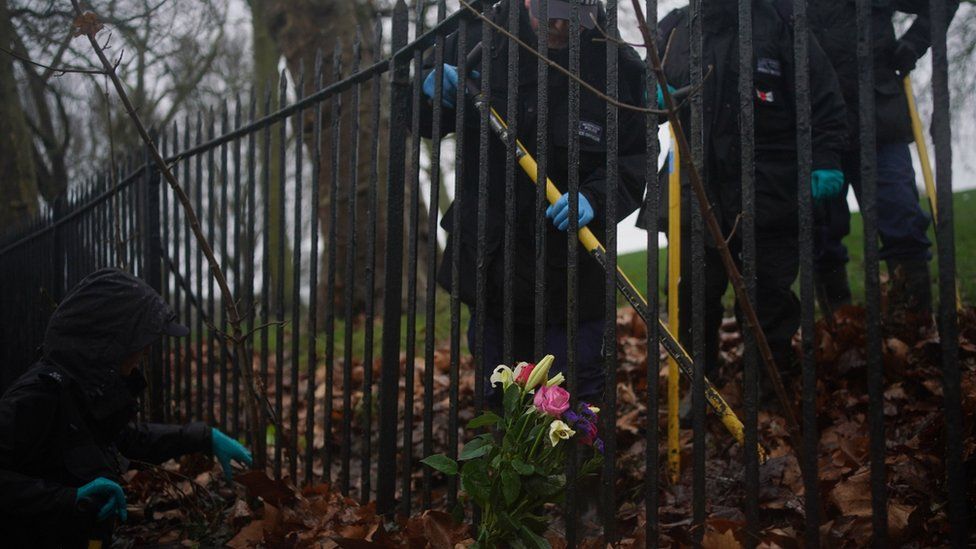
The 15-year-old boy and 18-year-old man arrested on Tuesday remain in custody in central London police stations, the Met said.
“Harry had been with a group of friends near the viewing platform on Primrose Hill where they had gathered to celebrate the new year and watch the firework display,” Det Ch Insp Grogan said.
“It was there that Harry became involved in an altercation that would have devastating consequences.”
Officers provided first aid before paramedics arrived, but despite the efforts of emergency services, Harry died at the scene shortly before midnight, police said.
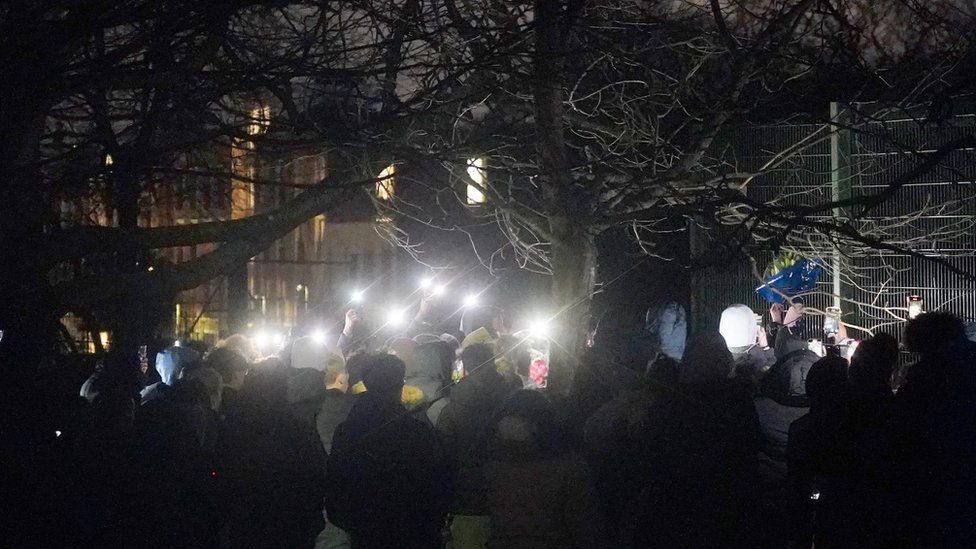
Det Ch Insp Grogan added: “We are aware of speculation, especially on social media, that the attack may have been racially motivated and I can confirm that there is no indication of a racial motive.”
On Tuesday, mourners, including Harry’s mother, brother and sister held a vigil in Downhills Park, near the family home.
Tayla Pitman, Harry’s older sister, had said the family was “devastated”.
London’s independent victims’ commissioner, Claire Waxman, described Harry’s death as “a senseless tragedy”.
She added: “I’m aware that a group of residents has raised concerns with the Royal Parks about a rise in violence and anti-social behaviour in the Primrose Hill area over the last couple of years.”

Ch Sup Andy Carter, leading policing in Camden, said he was “deeply saddened at the needless loss of another young life to knife crime”.
“New Year’s Eve at Primrose Hill is a celebratory event that everyone should have returned safely home from,” he said.
“As a partnership, we take the safety of park users seriously, and we will continue to work with Camden Council and Royal Parks to address local issues.”
He said there would continue to be a “heightened police presence” in the Primrose Hill area in the coming days.

Listen to the best of BBC Radio London on Sounds and follow BBC London on Facebook, X and Instagram. Send your story ideas to hellobbclondon@bbc.co.uk
You Can’t Win With These People – by R J Cook
Comment
It alarms me when senior police officers rush out with statments like this one : Det Ch Insp Grogan added: “We are aware of speculation, especially on social media, that the attack may have been racially motivated and I can confirm that there is no indication of a racial motive.”
This officer cannot reasonably say this at this stage. Whether he wanted to or not, he would be in serious trouble with the political and elite media if he said otherwise. It has leaked into the public domain that the suspects in this appalling murder are black.
Metropolitan Police officers know better than I do that blacks predominate in knife crime as a matter of fact. This problem has increased alarmingly with so much African immigration where gang wars and drugs are not unusual. London’s police were villified for not making the death of Stephen Lawrence a racial issue and paid a high price in political correctness.
The police are obliged to treat any white assault on blacks as racist. They are not allowed to presume racism when it is the other way around because London is a multi racial trendily diverse powder keg. Policing London is a very difficult to put it mildly. The sad reality is that young men are more likely to be victims of violent assault and murder than females of any age.That includes black on black.
Both of my parents were born in North London. I have known the city since the 1950s because it was the only place we went for holidays. I lived, worked and studied there. I experienced the challenges of teaching black boys at Spencer Park Boys School where white social studies and history teachers could not refrain from telling them how they all came from slaves and were still suffering from racism.
That was my experience in the late 1970s. I first saw a black man when I was 5 years old riding on a trolley bus. He wore a suit, tie and trilby hat. I thought I saw the same man the following afternoon while playing with my cousin Ronnie – who bravely became a Metropolitan Policeman- in the street outside his house in Highbury Grove. When I told my cousin the man was following me, being street wise Ronnie laughed. He asked if I thought all black men looked the same. I said I didn’t know because until that day I had never seen any.
The world has changed and London has changed with it. There is a toxic cool black gang culture which police challenge at their peril. It does not do to disrespect a young black man in an altercation and best avoid those situations if you can avoid it . I had to when a terrfying example in a large BMW became threatening over a parking space at Barnet football ground a few years ago. I am not blaming BMW drivers because I was driving a bigger BMW than his. The problem arose because one of his fellow blacks had pulled out and offered me his parking space. The Black BMW man came along and flew into a rage because it was obvious to him that this had been and still was a parking space for a black man. You can’t win with these people and nor can the police.
R J Cook


Be the first to comment on "Death After Life In Police State Britain IX"